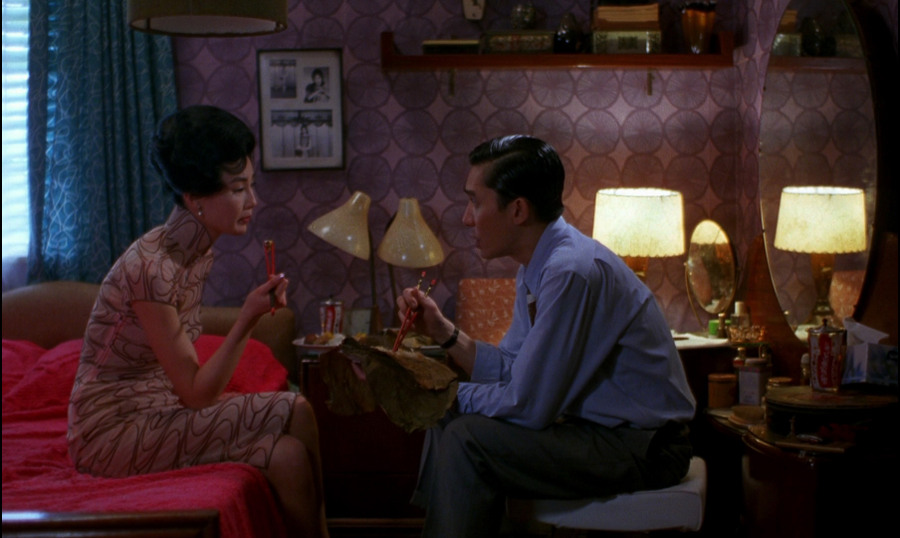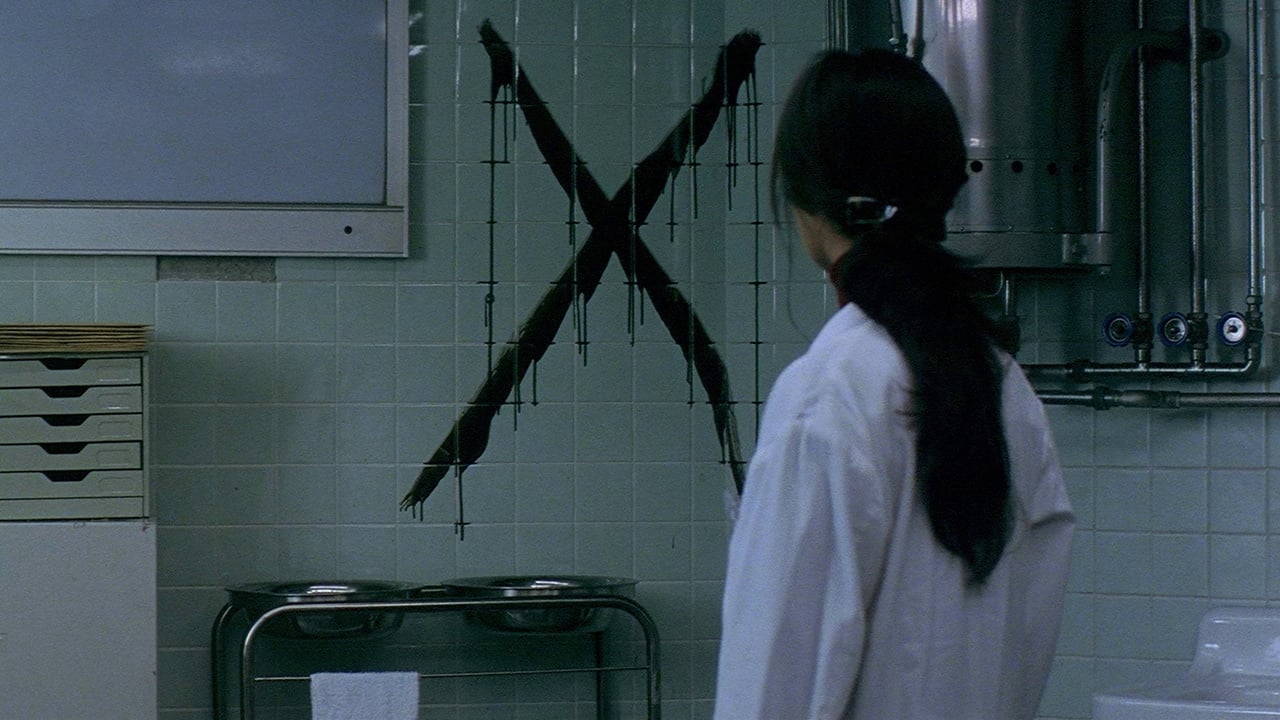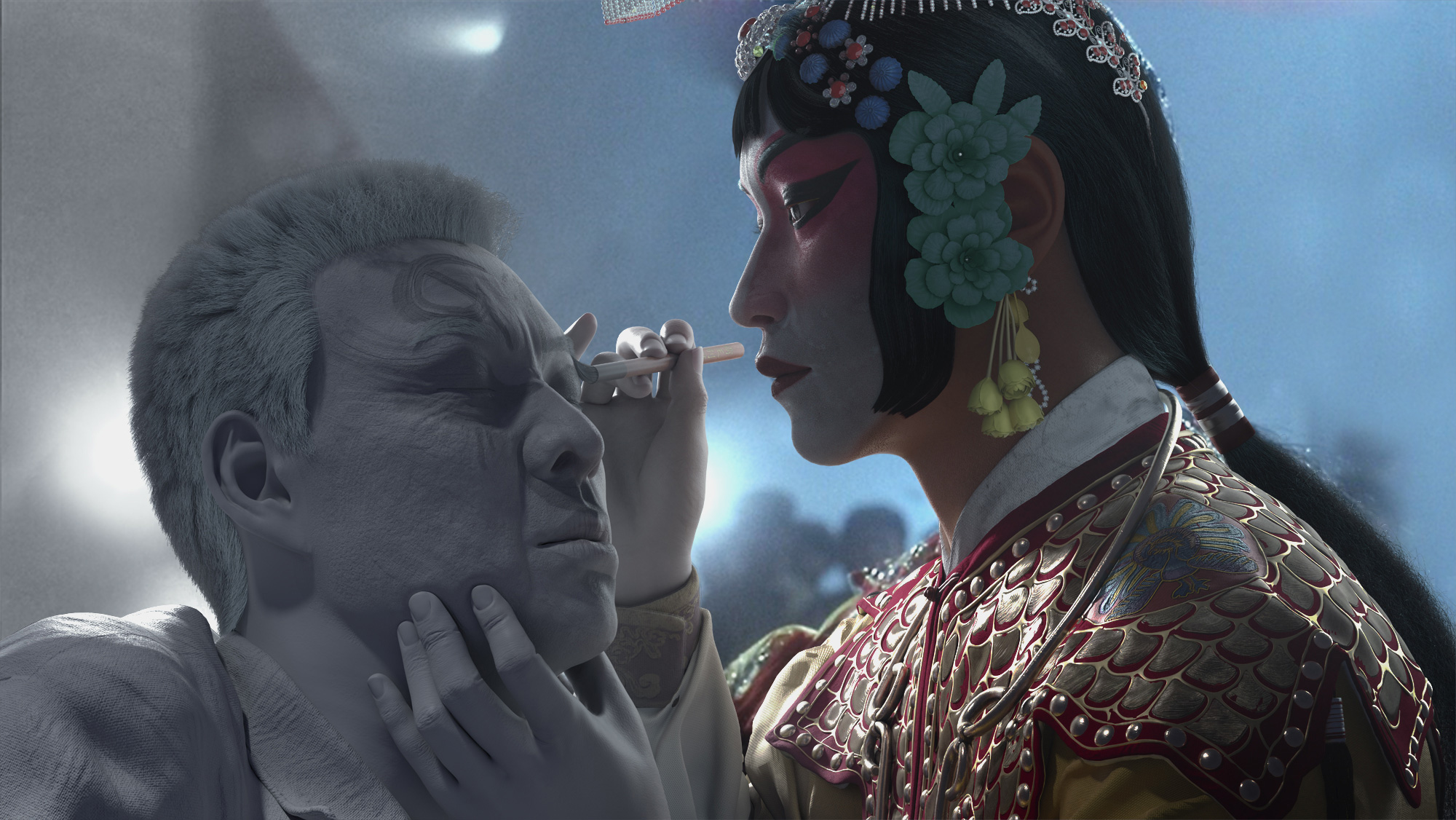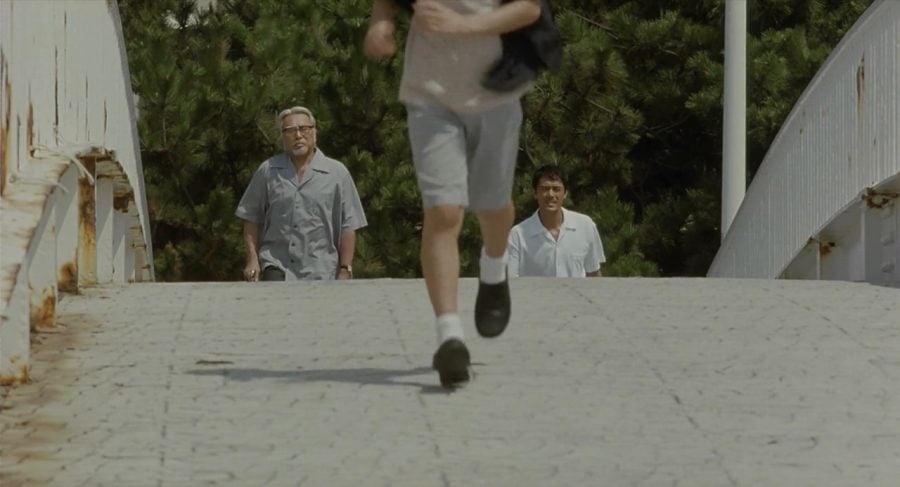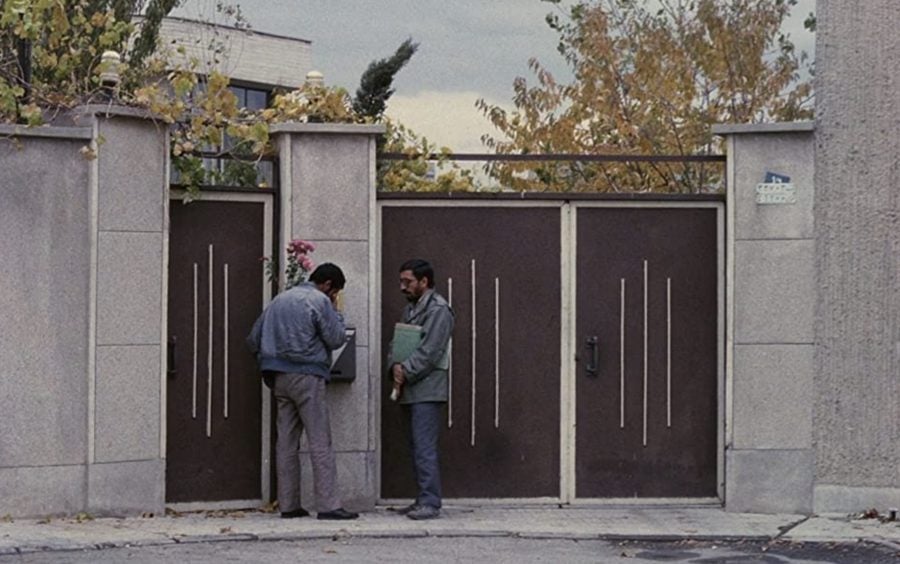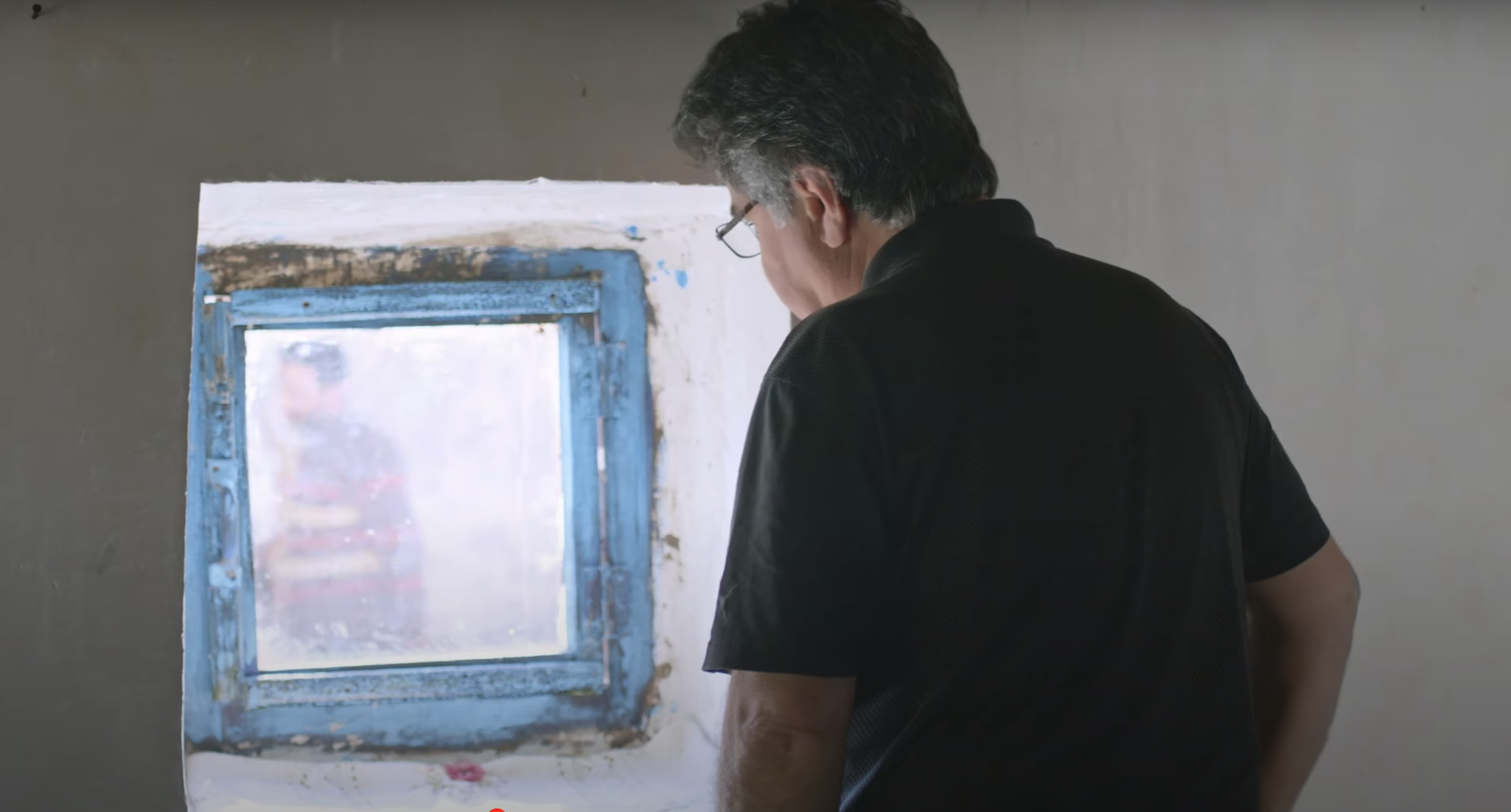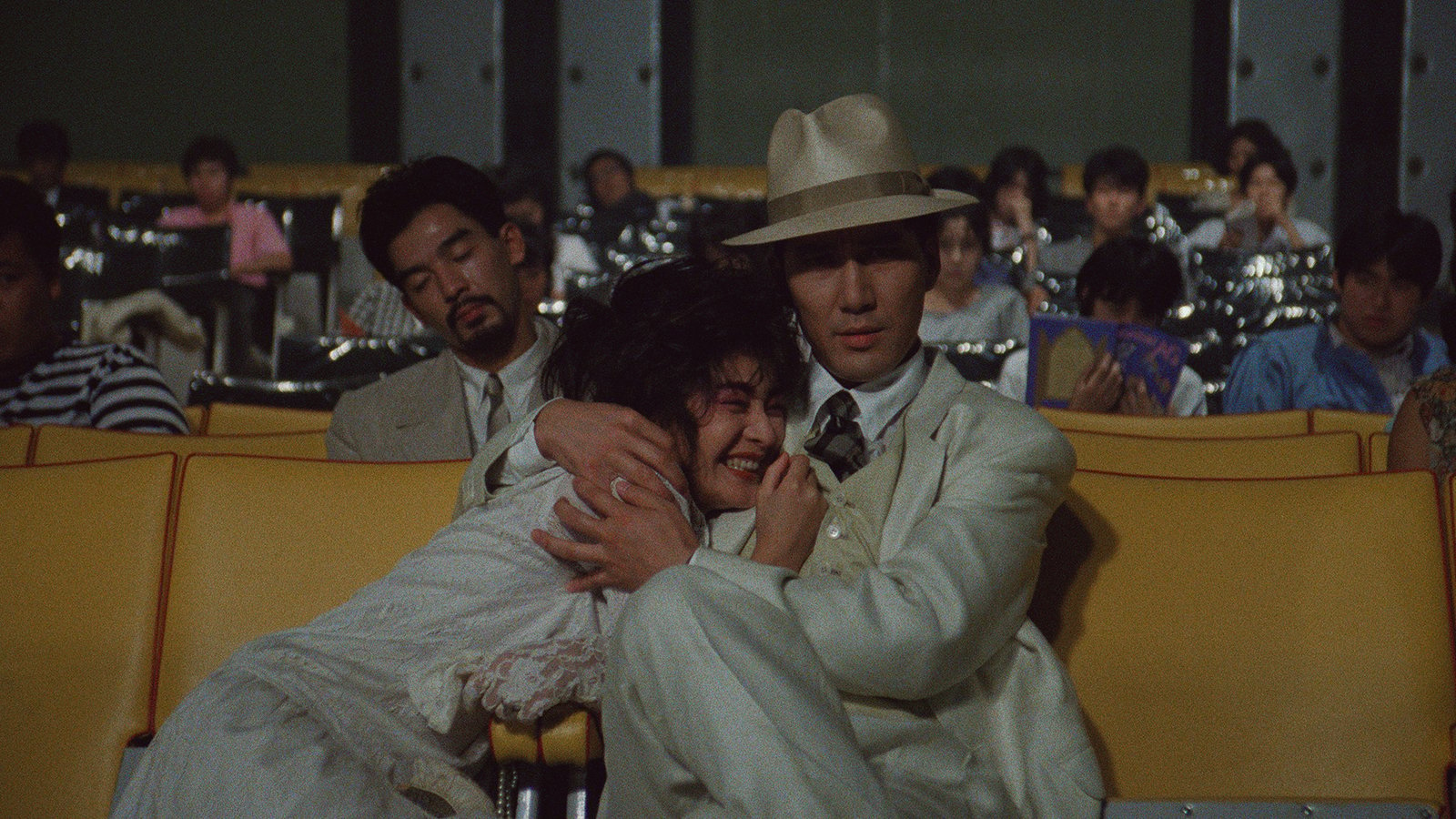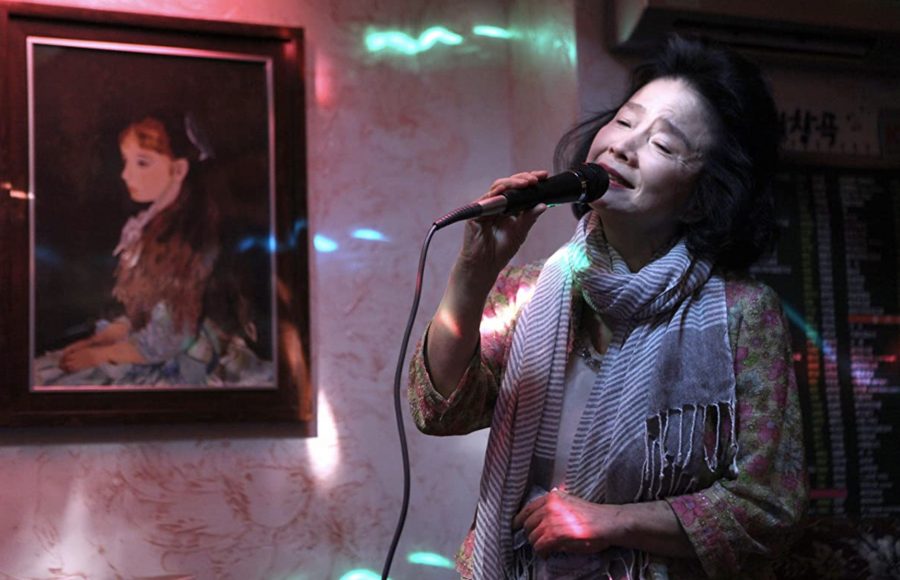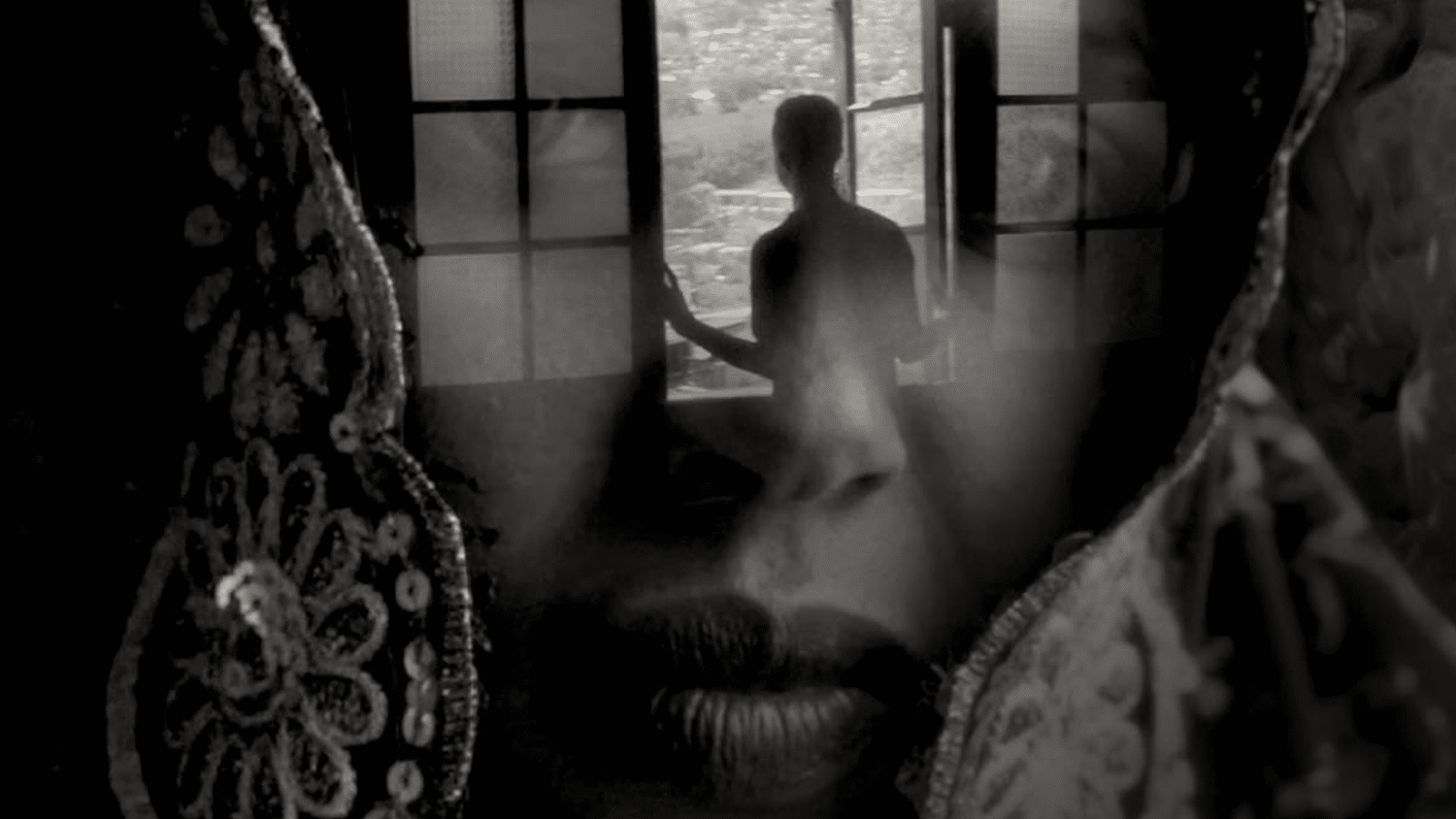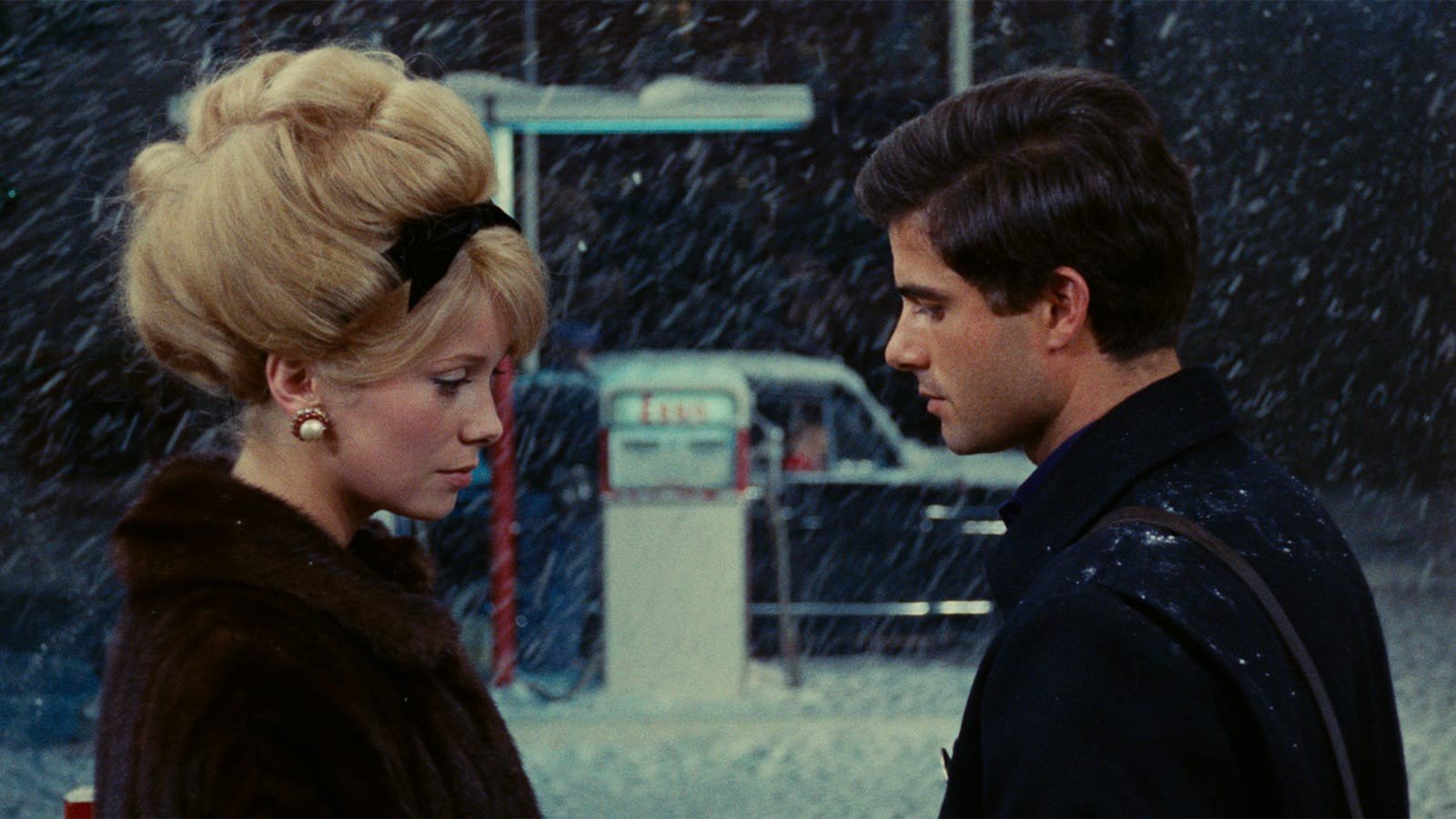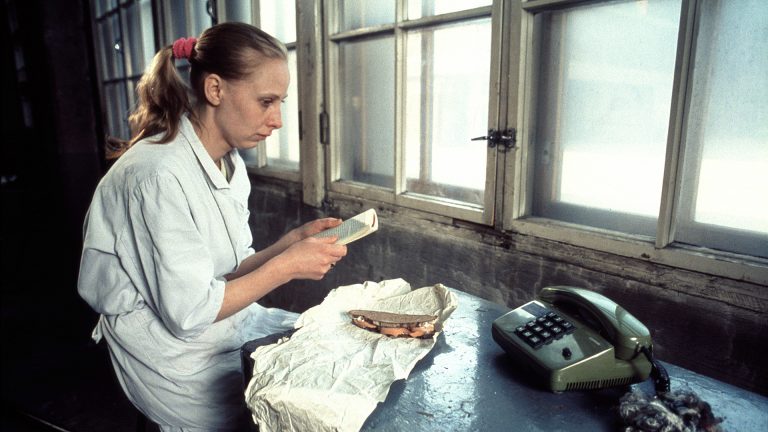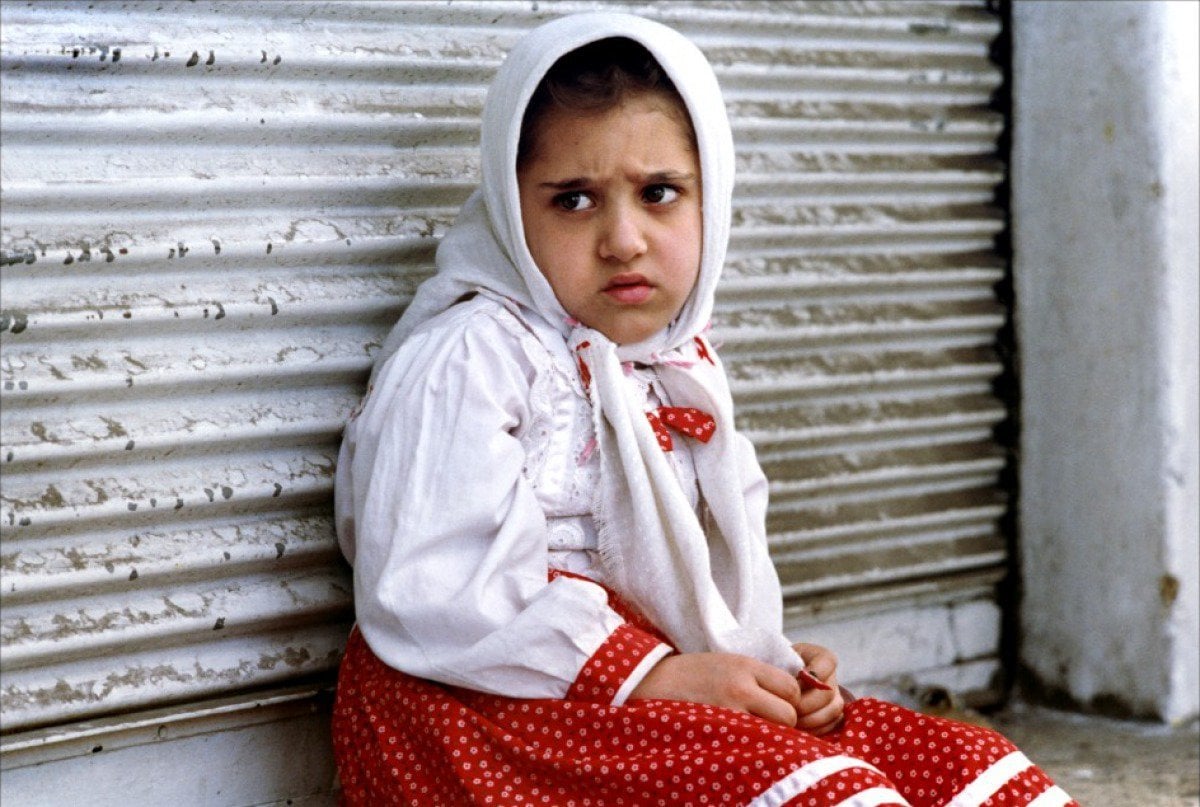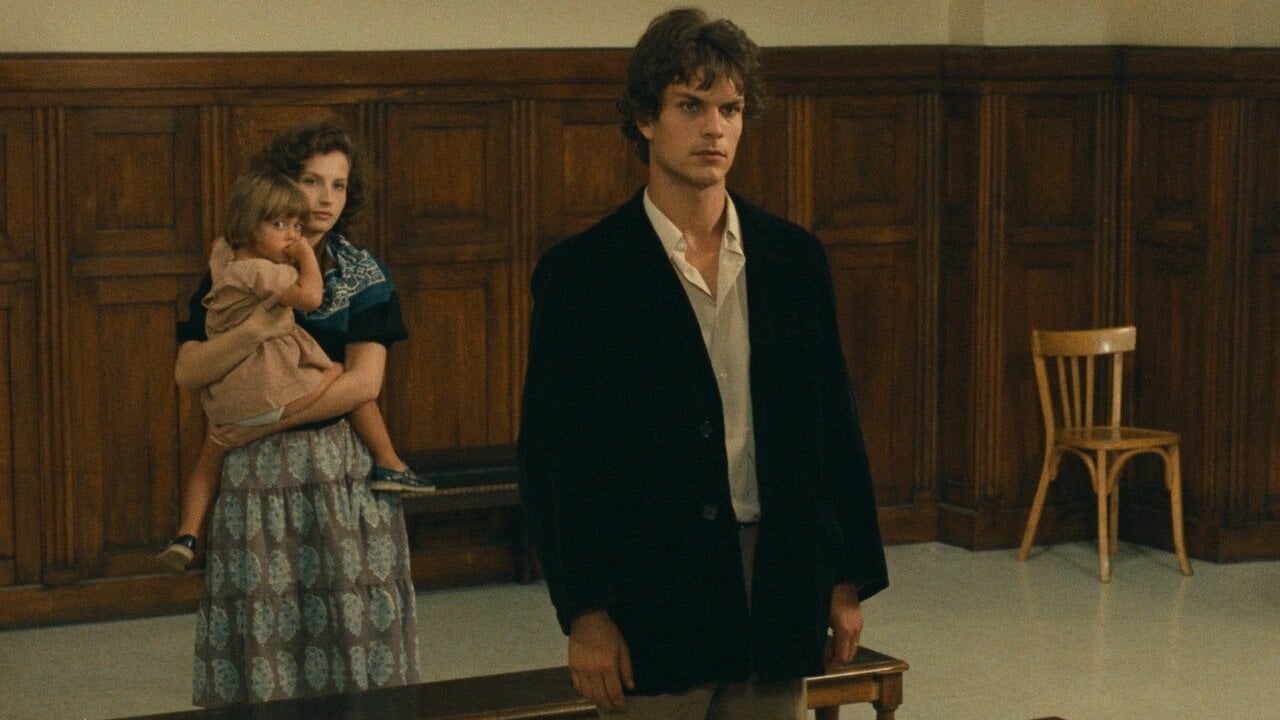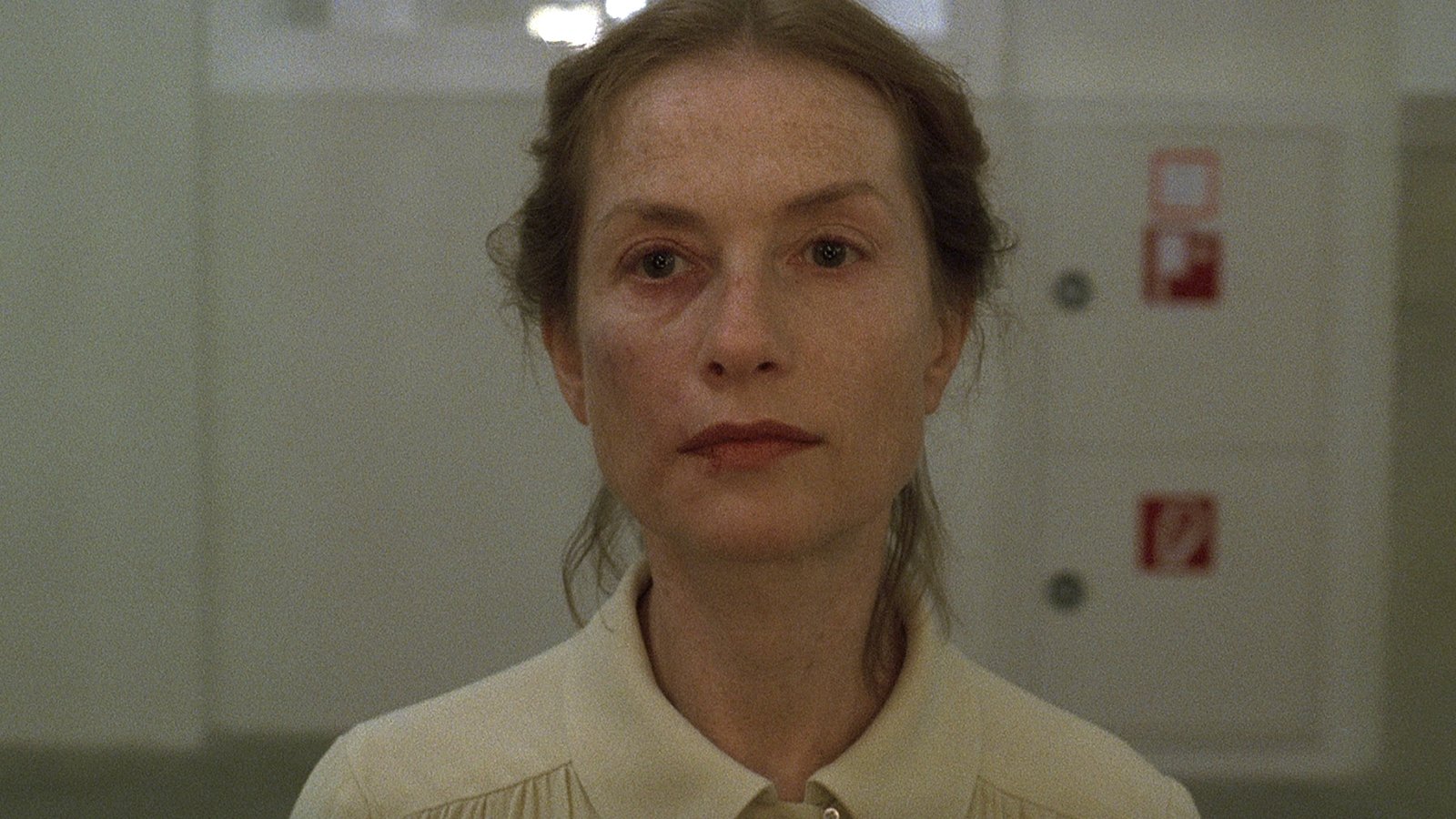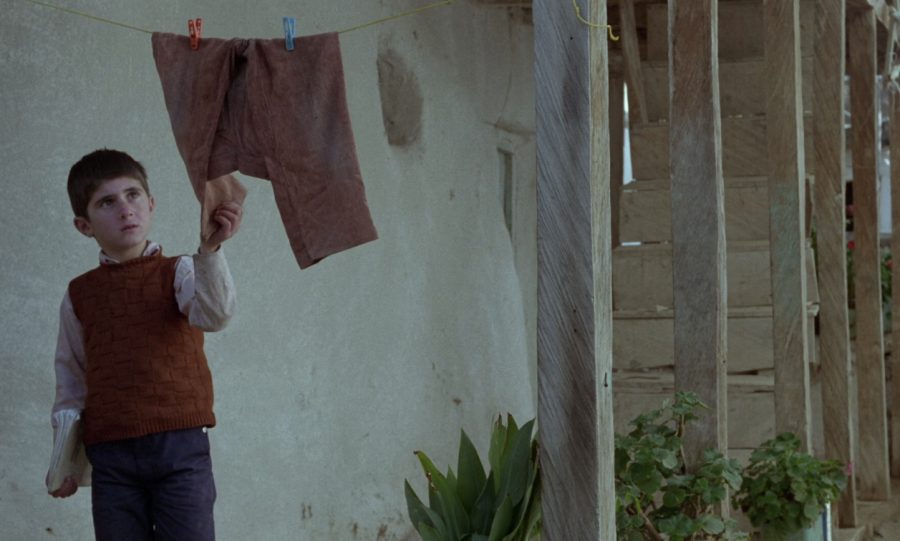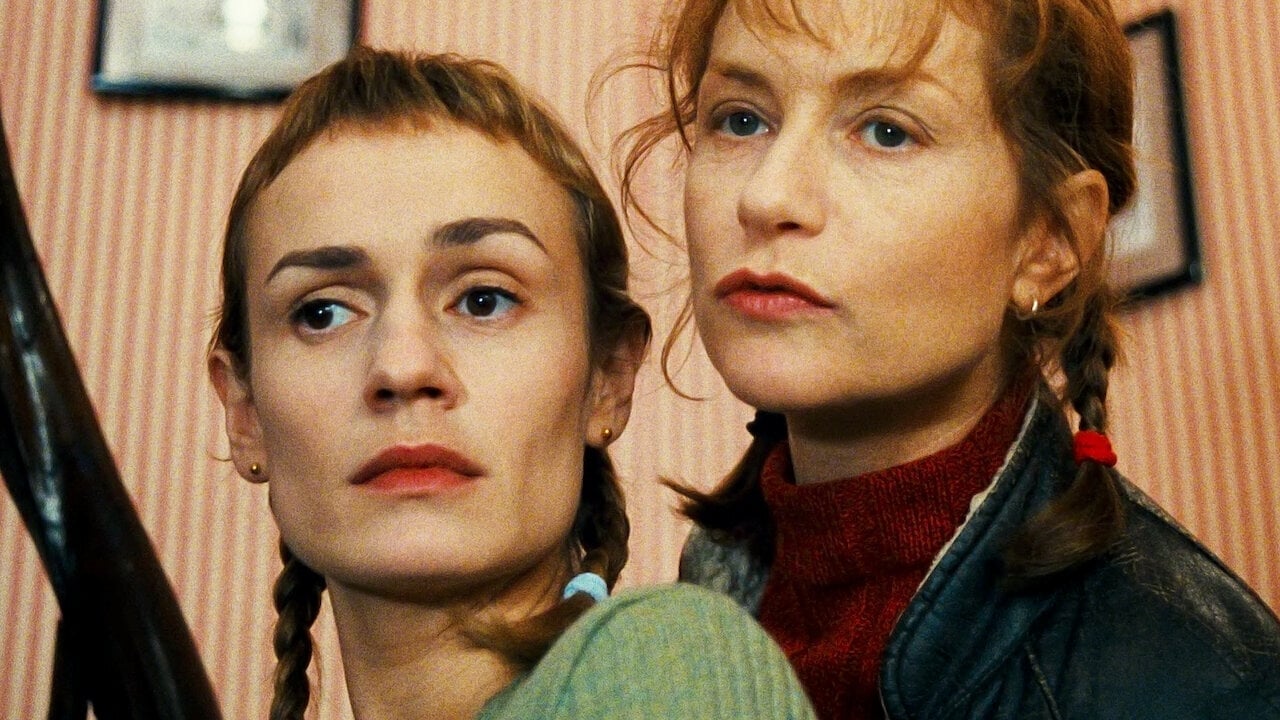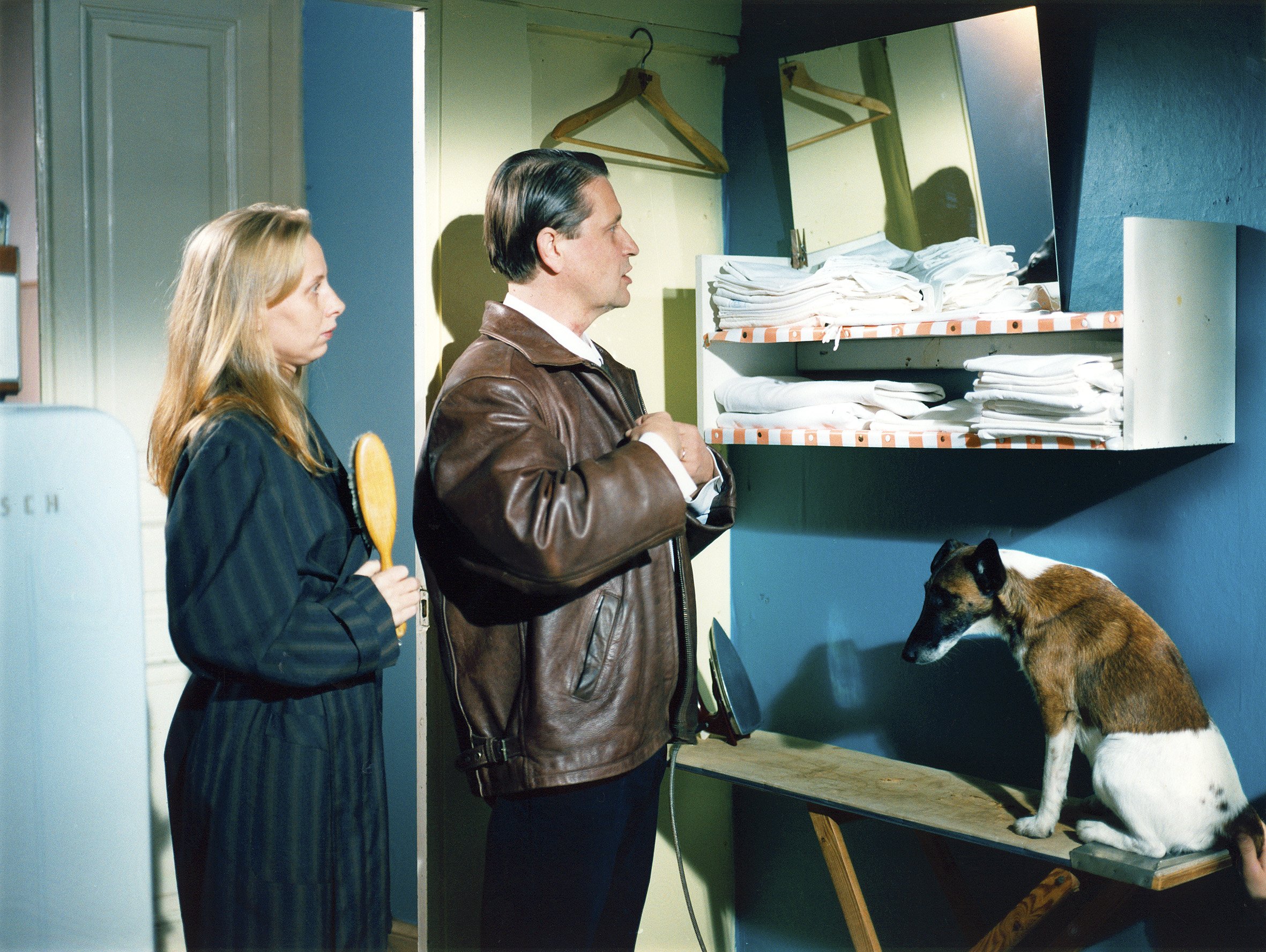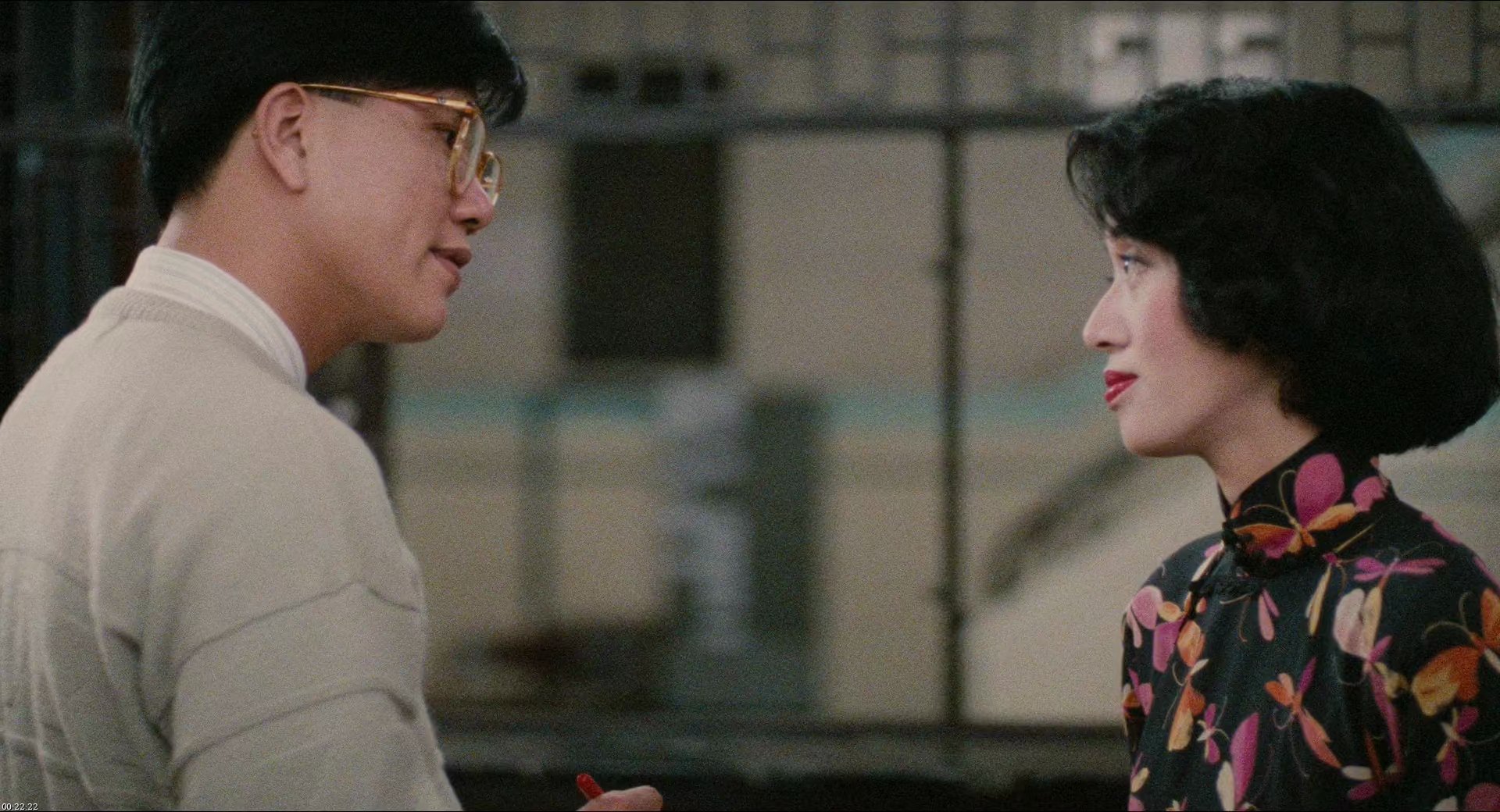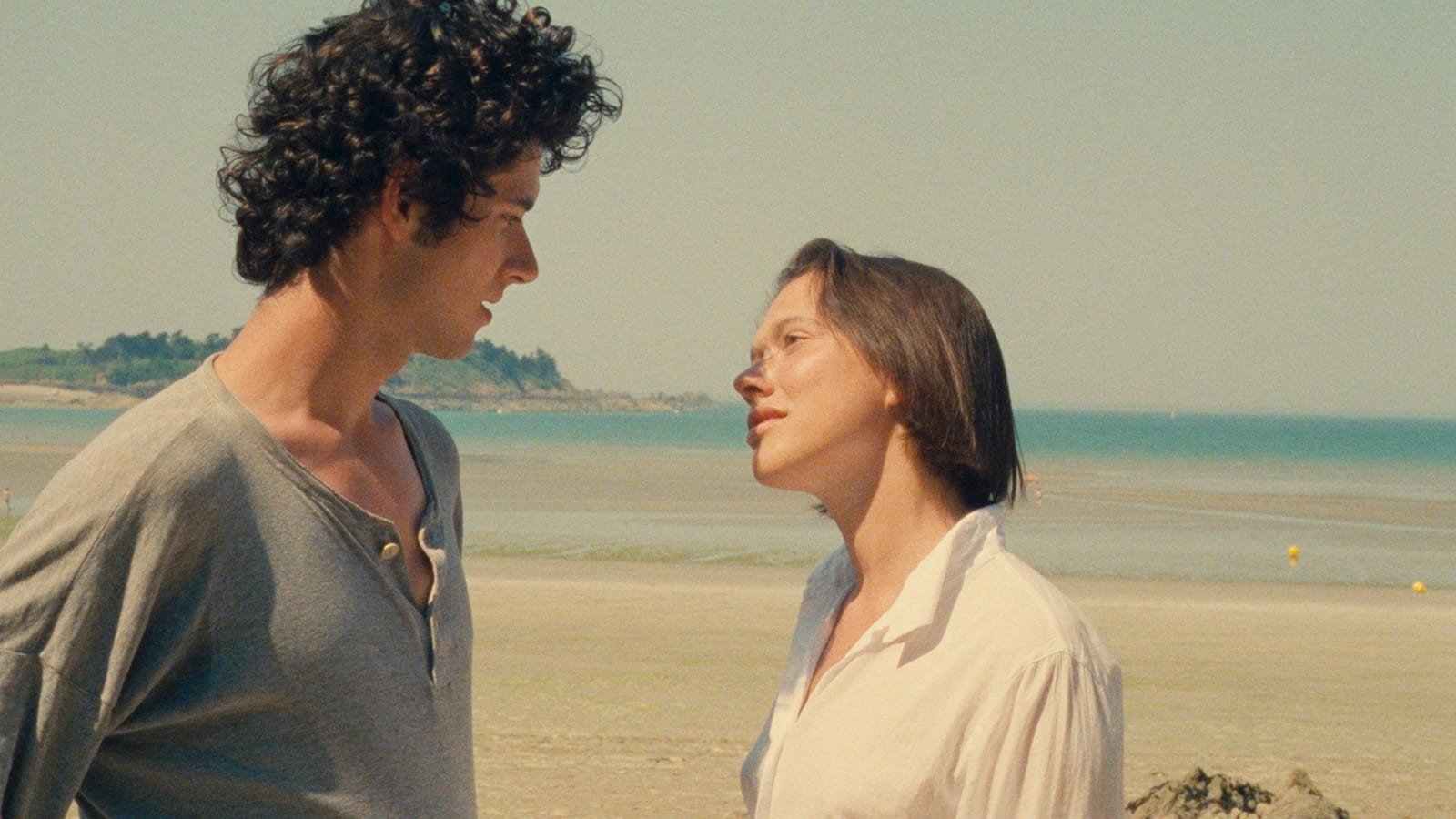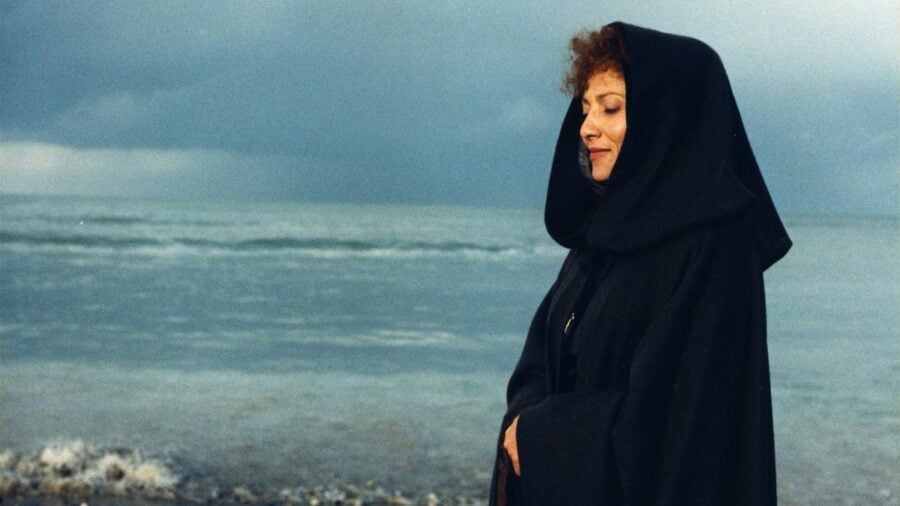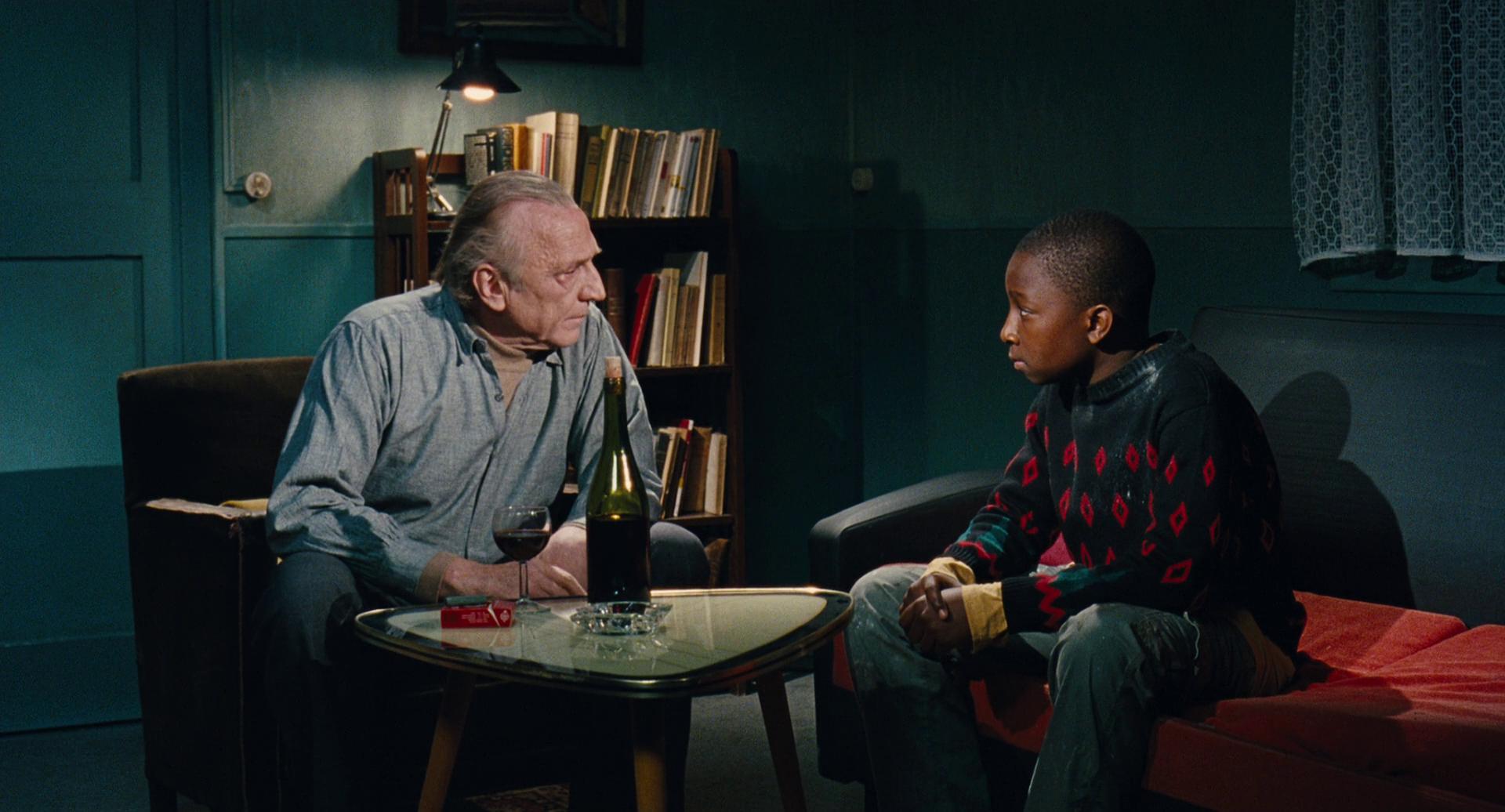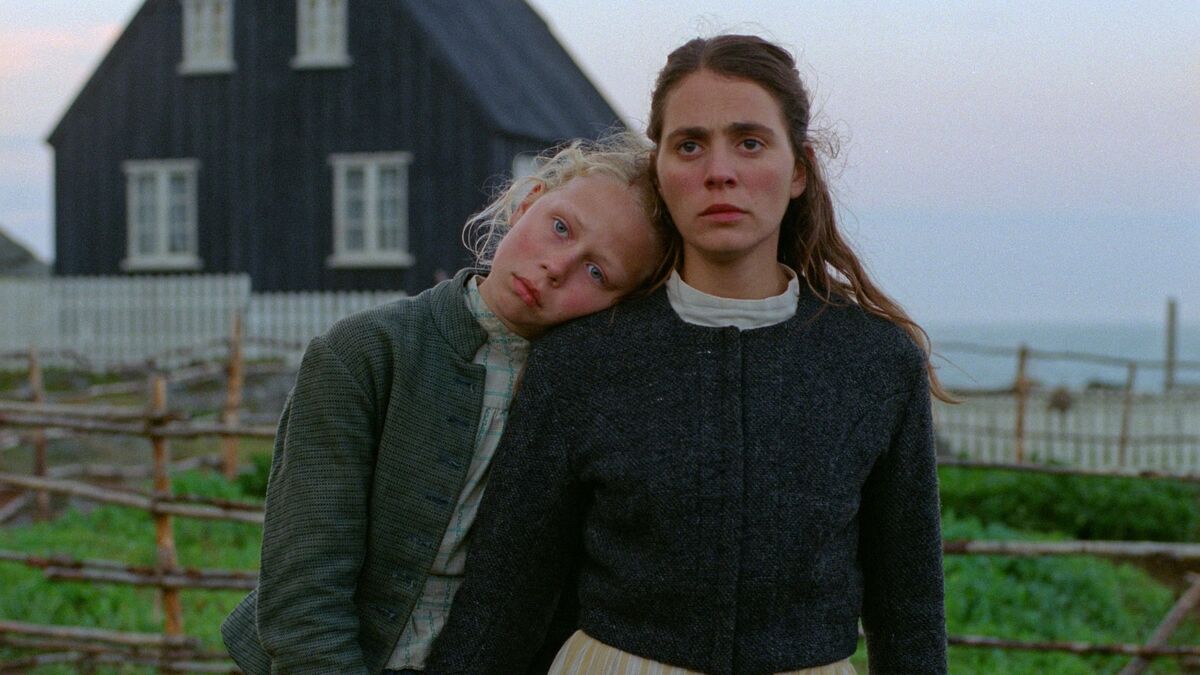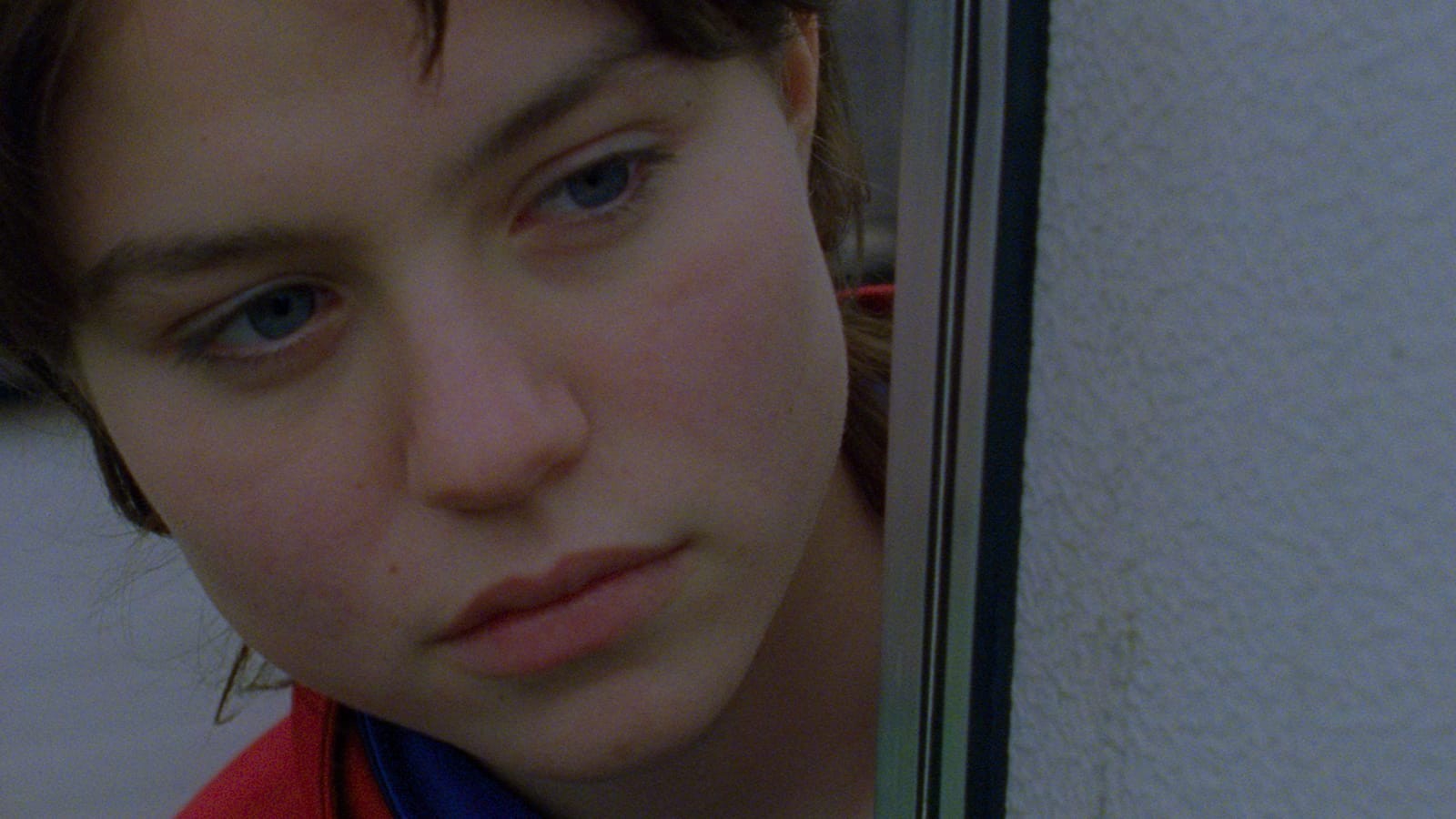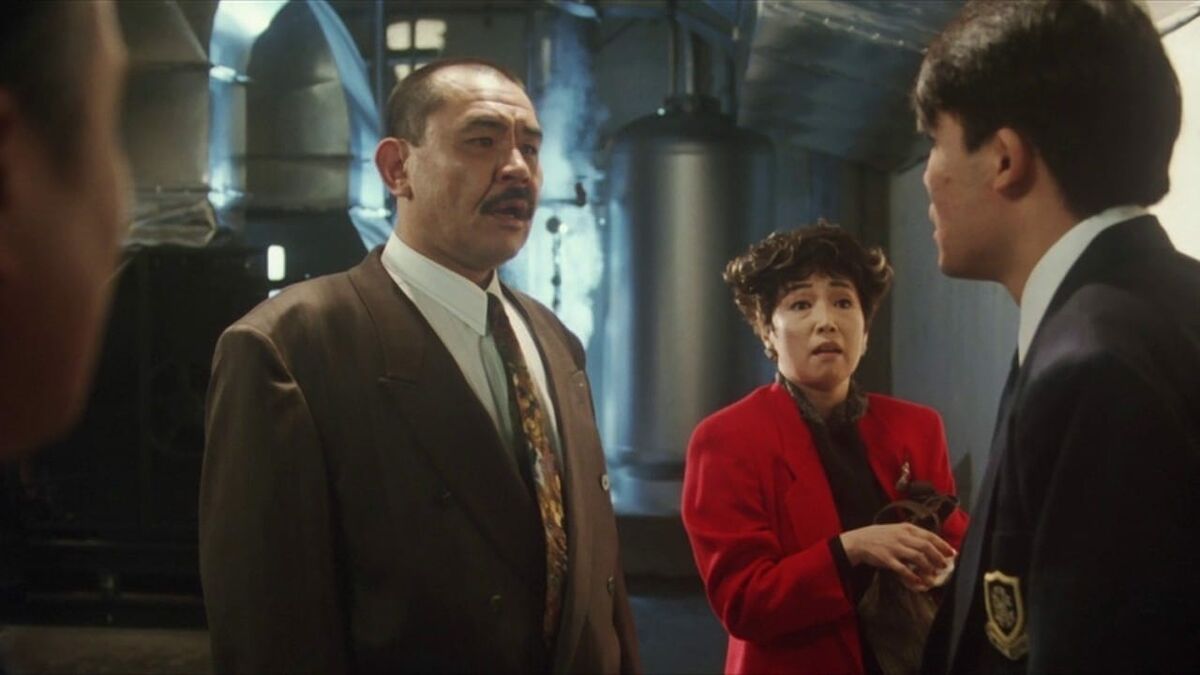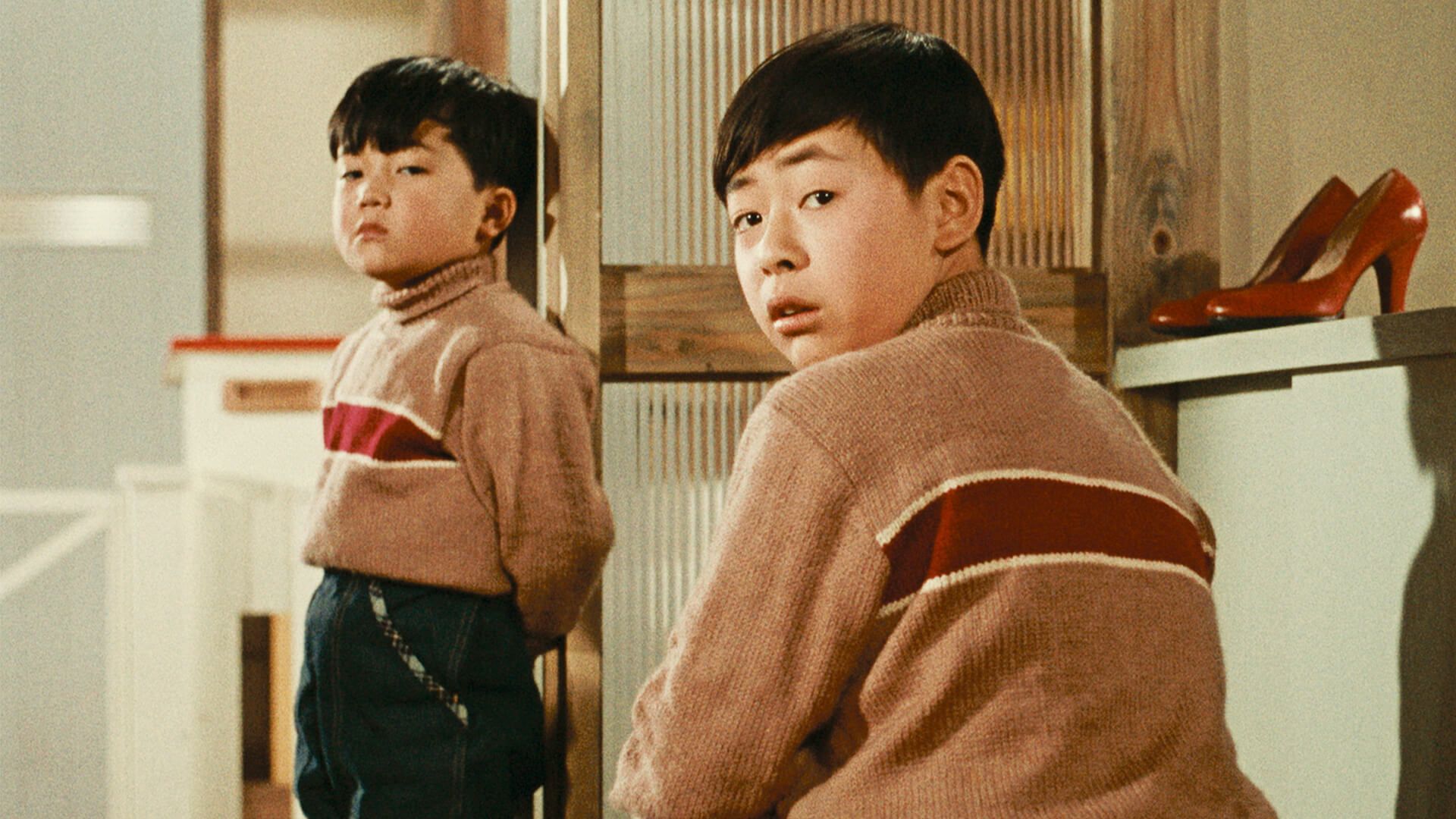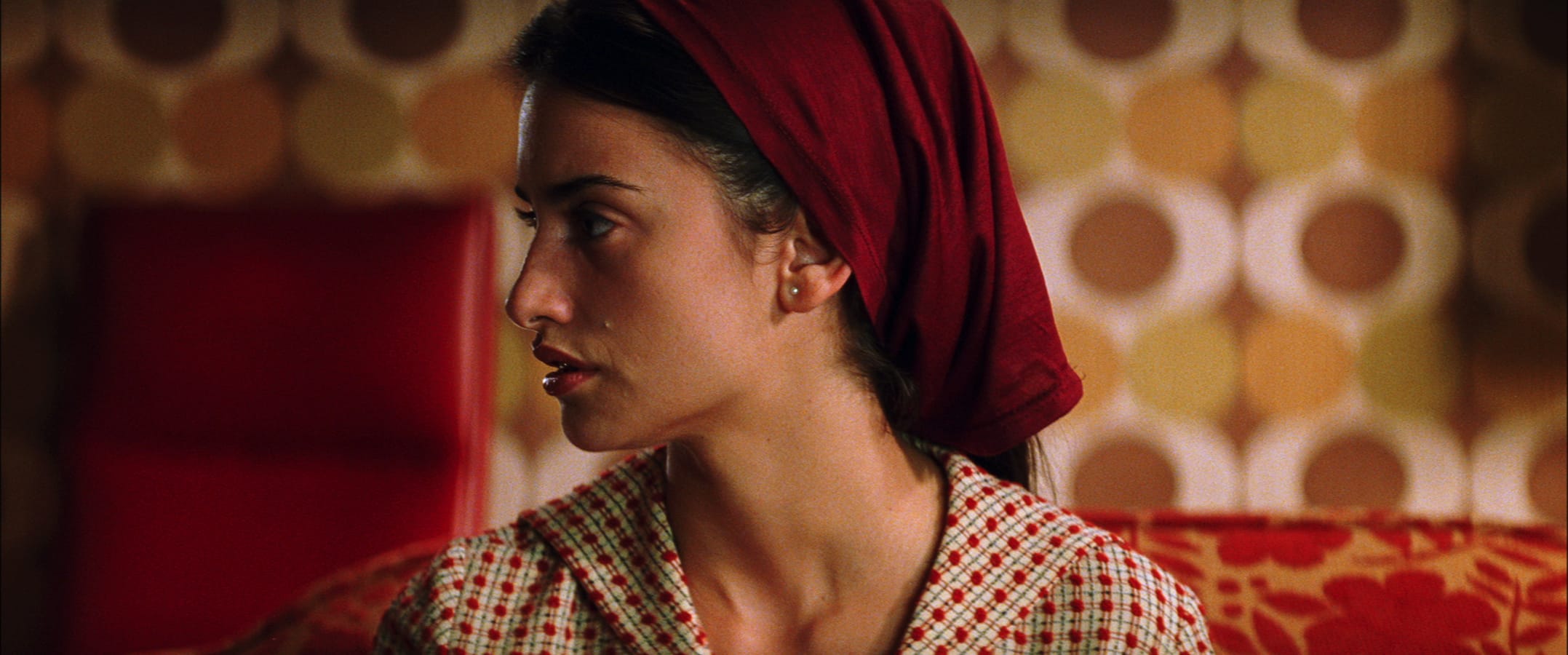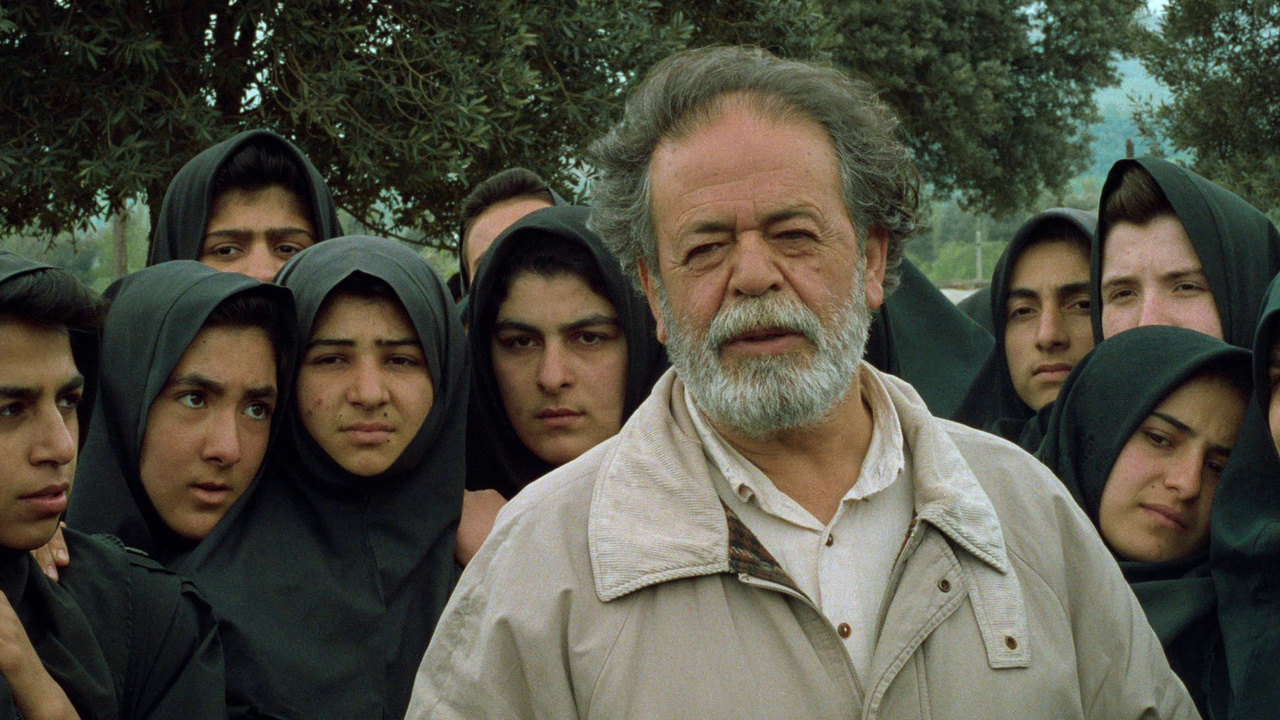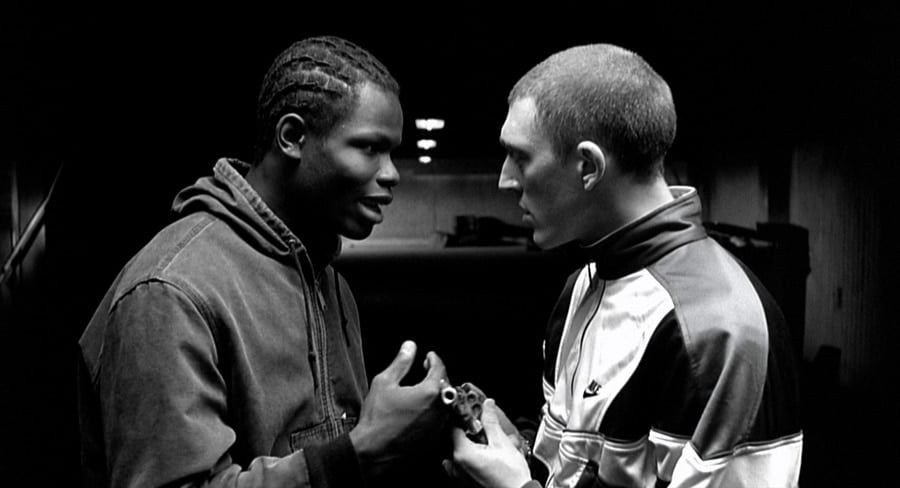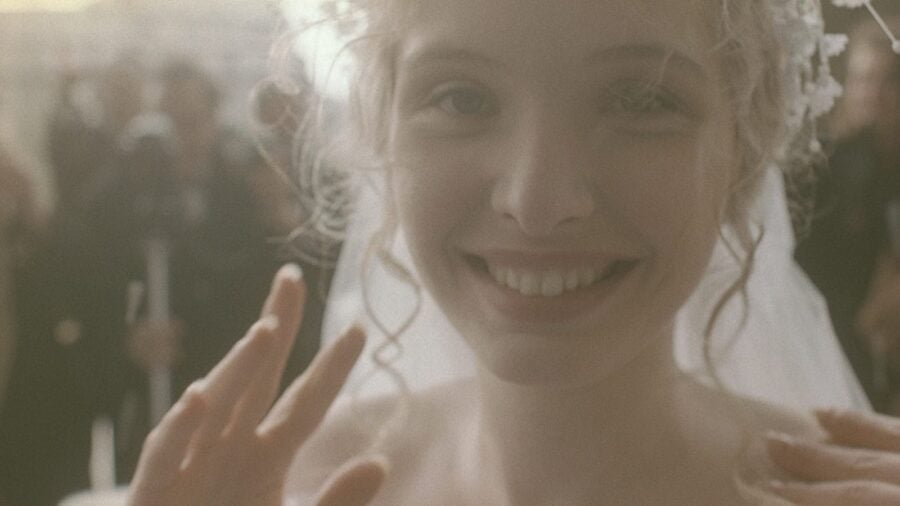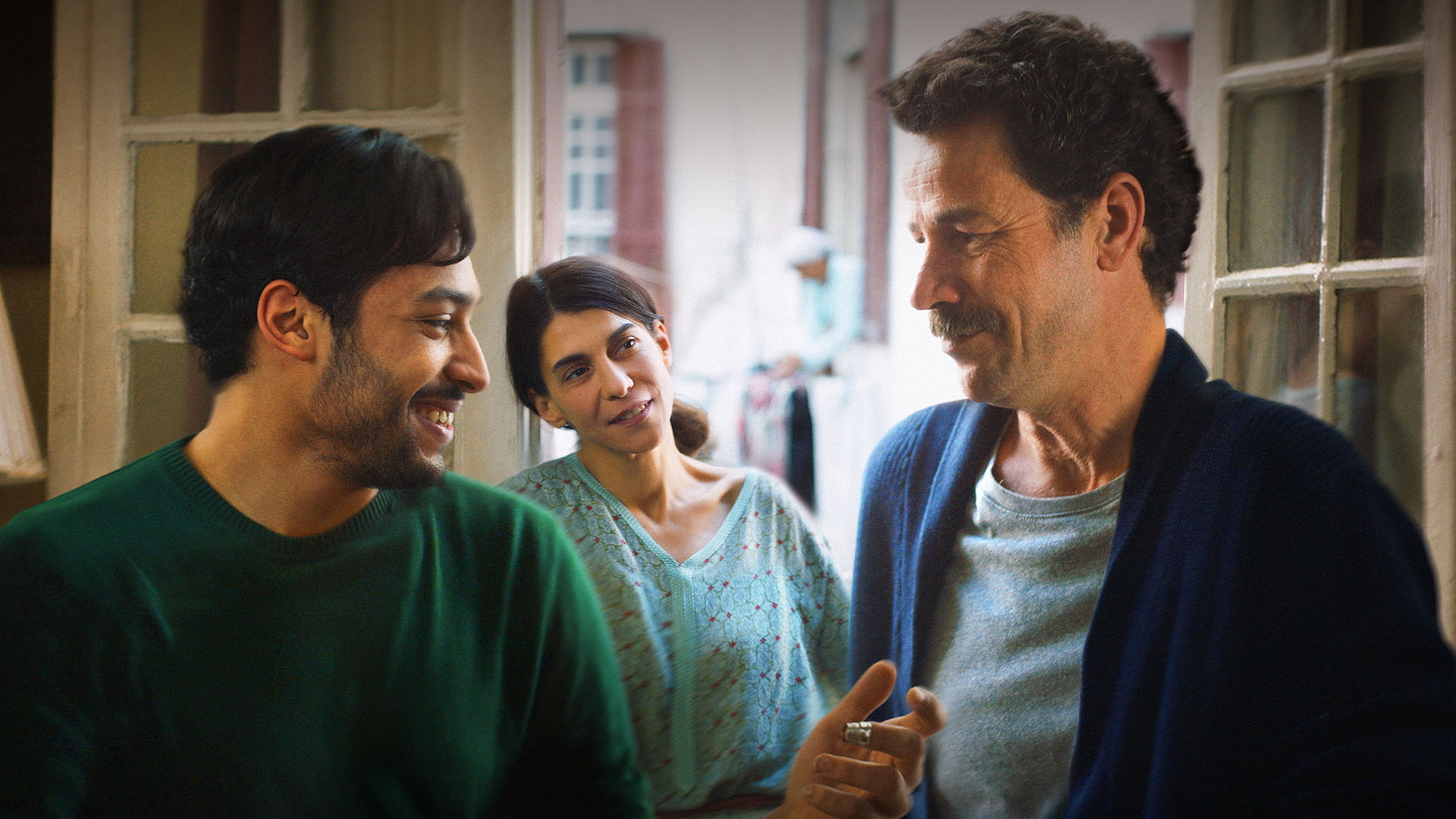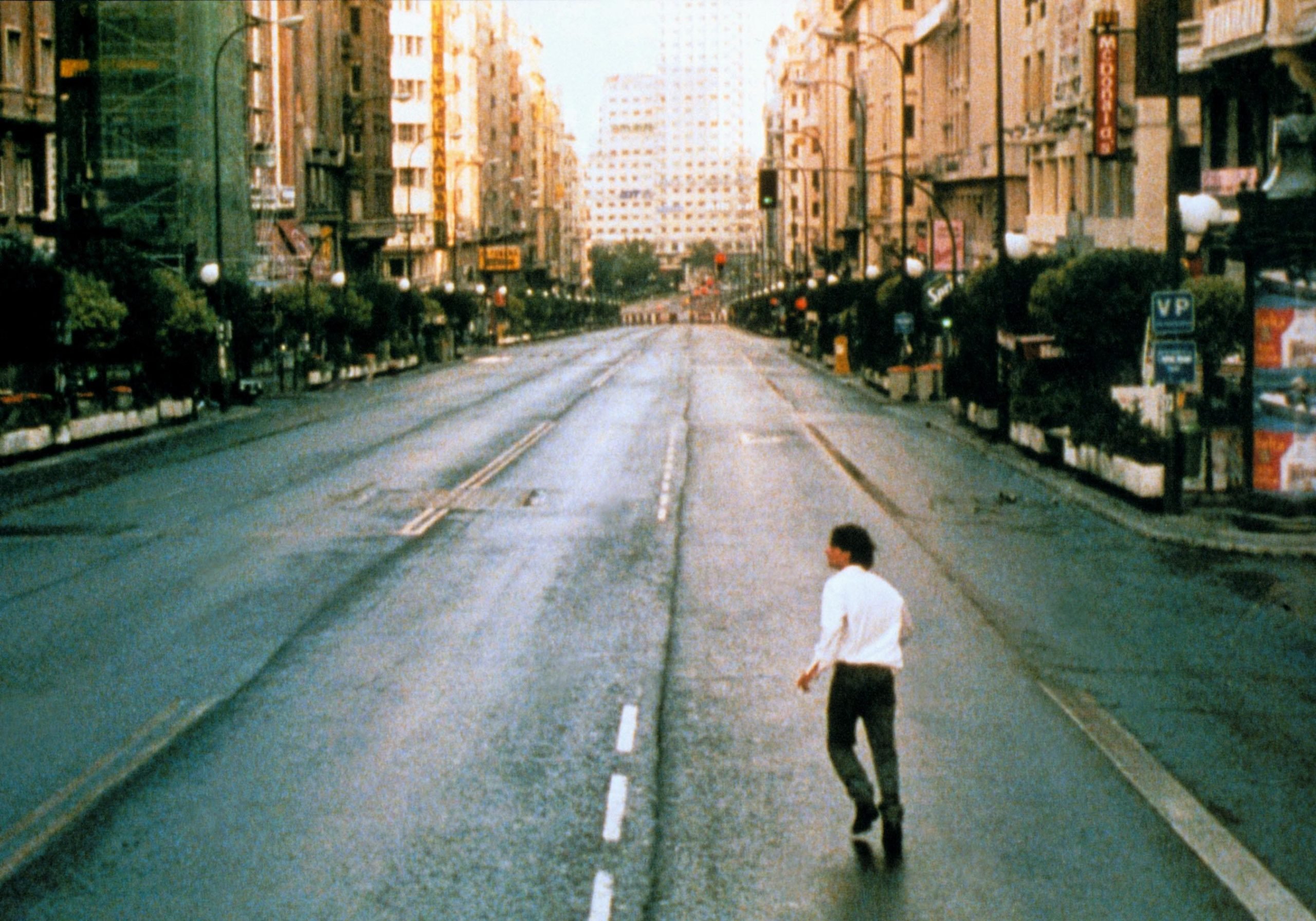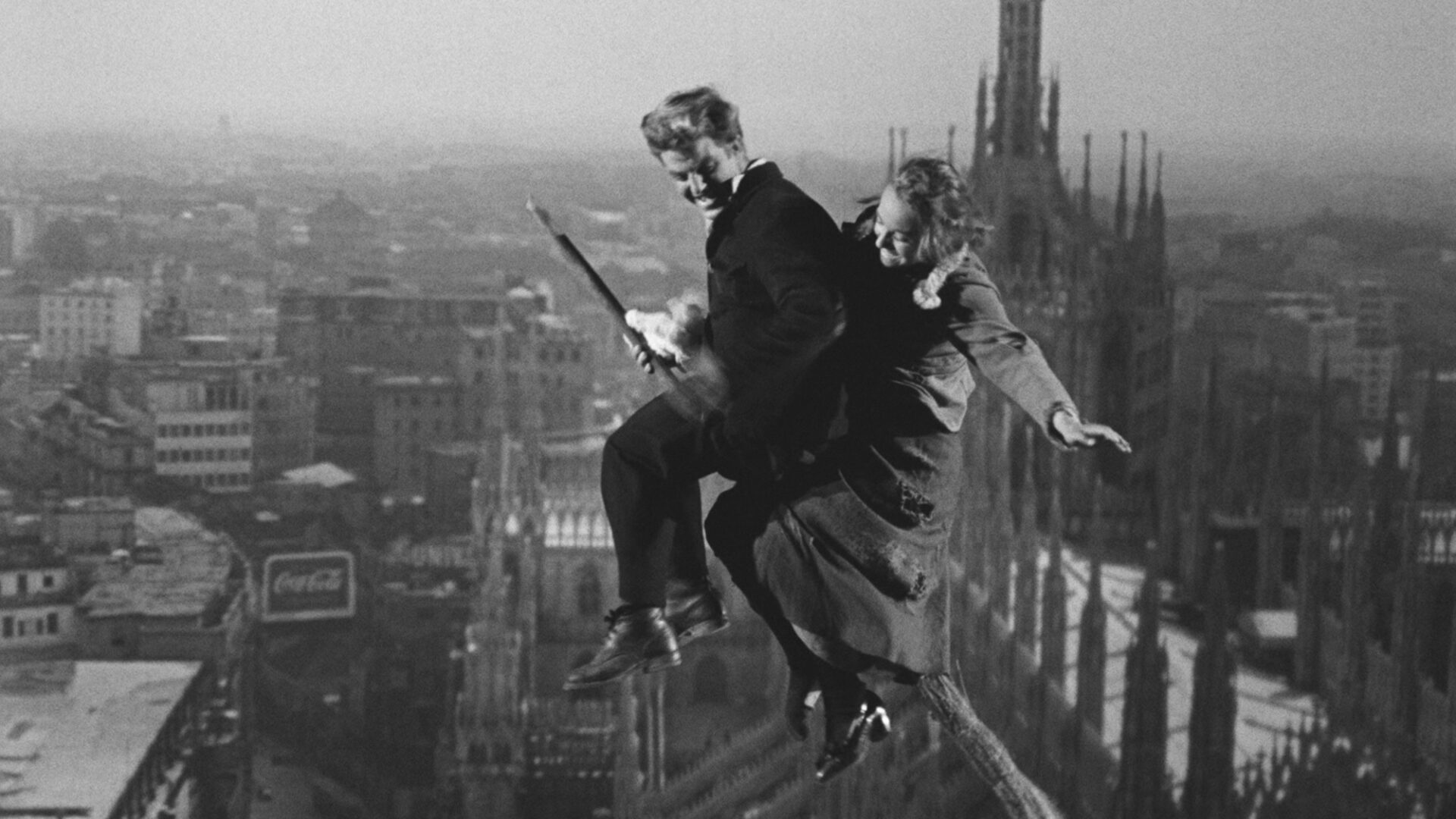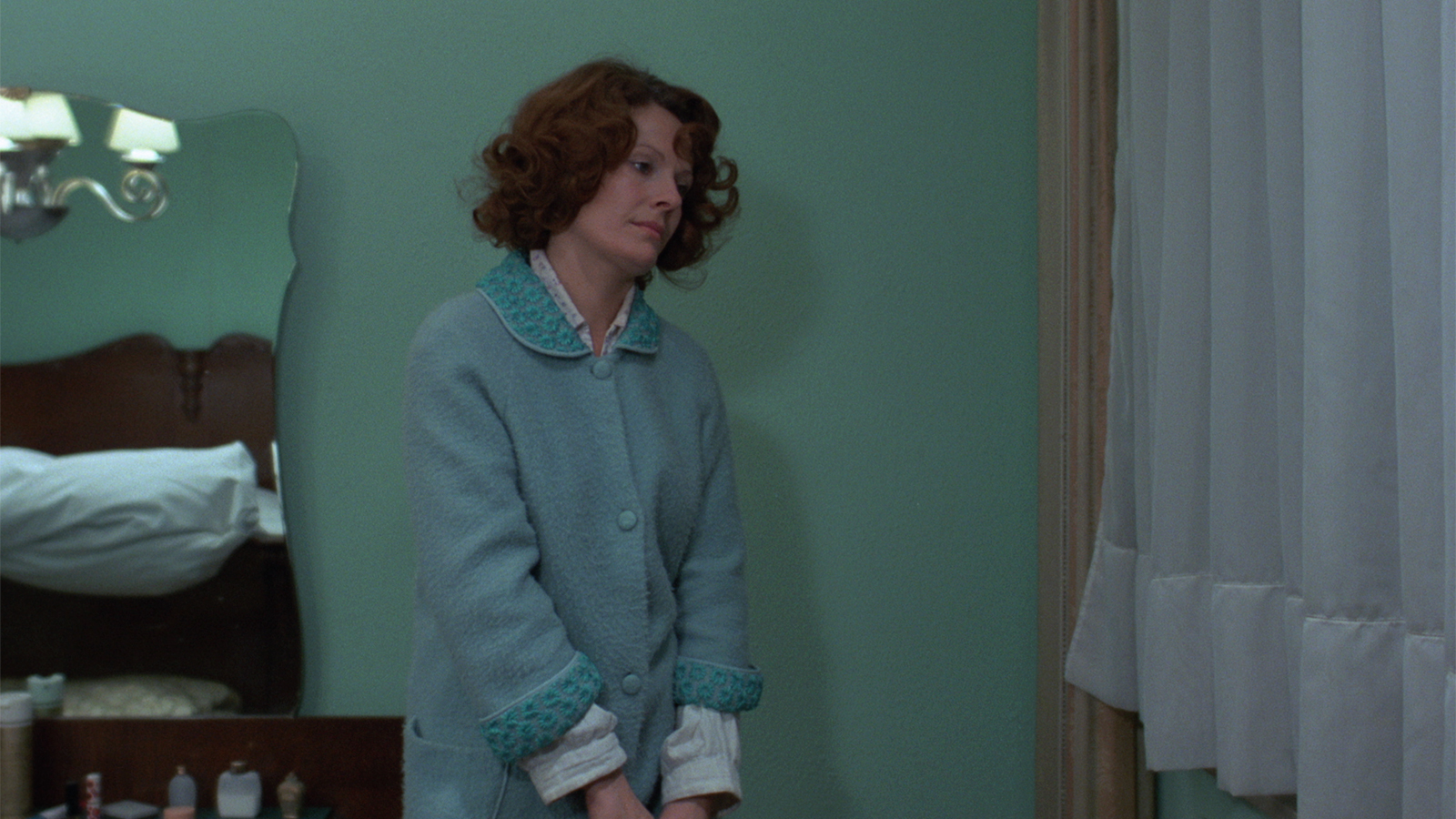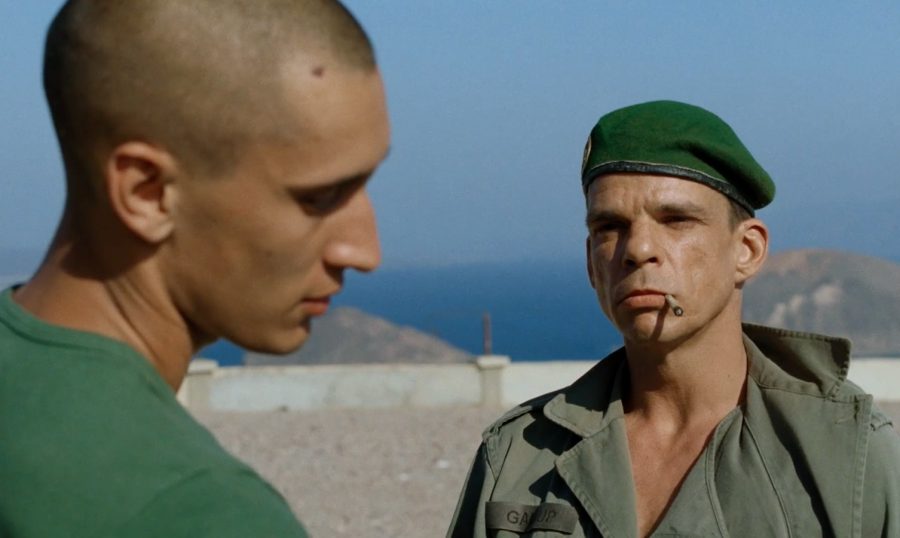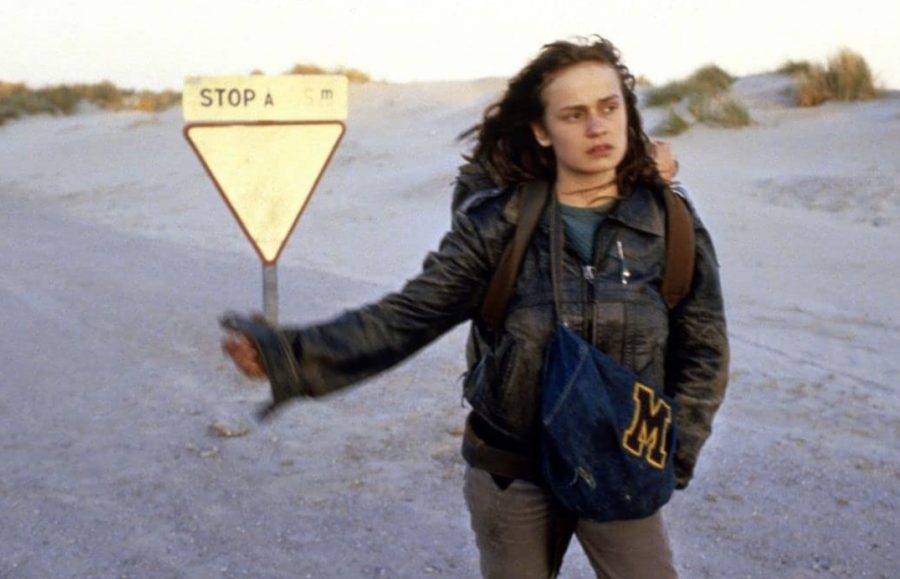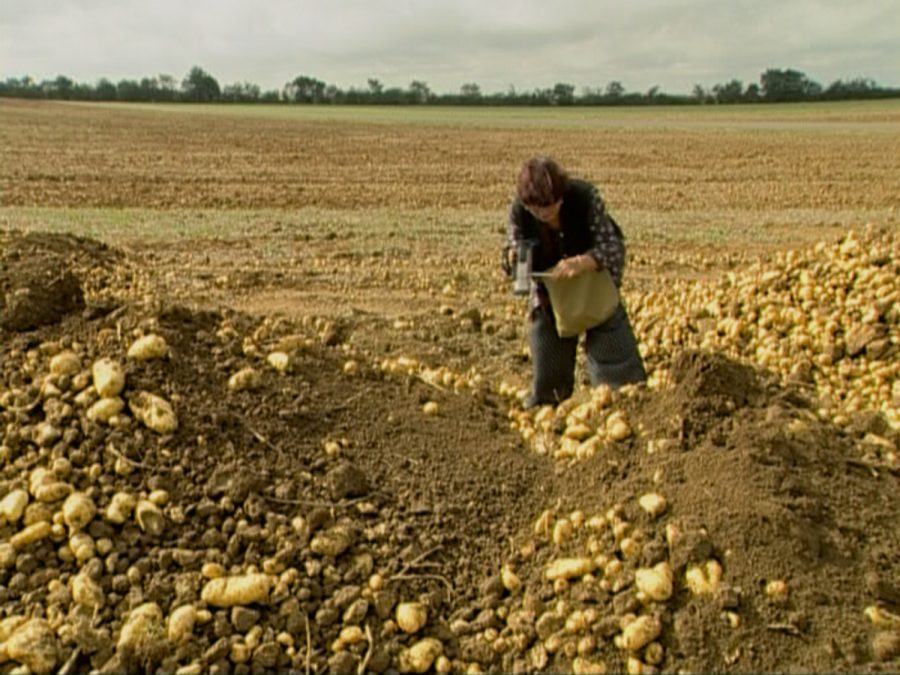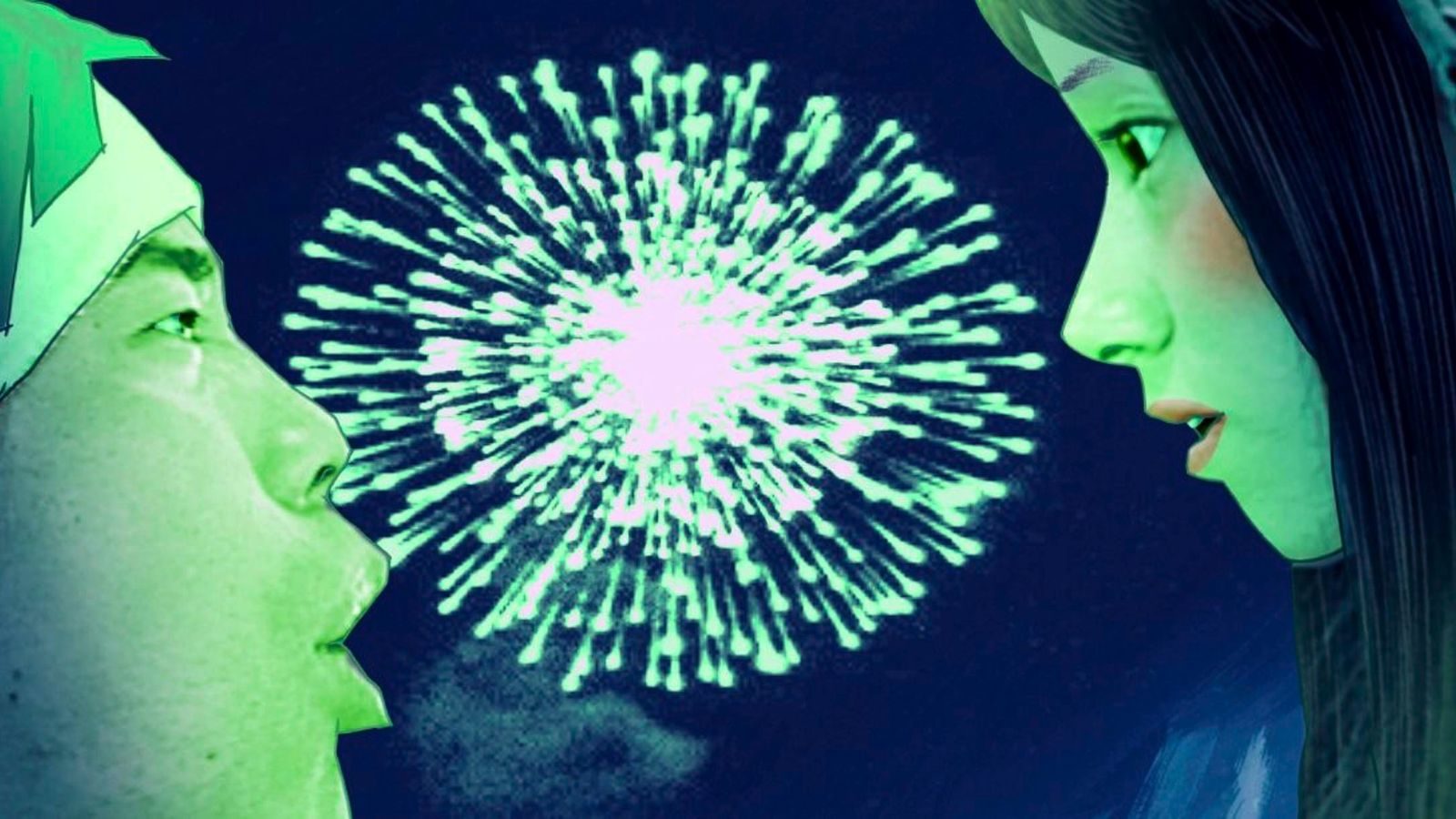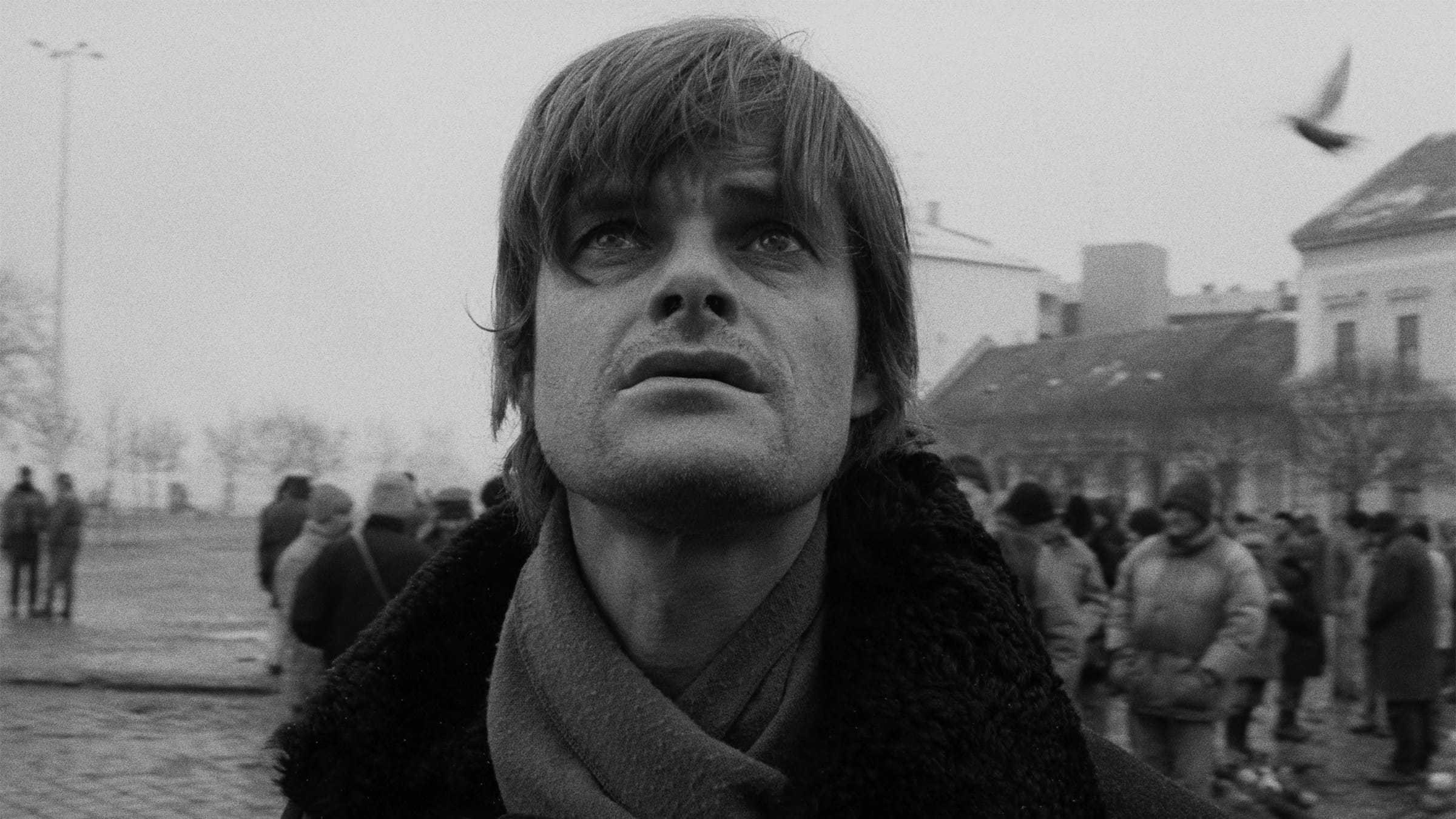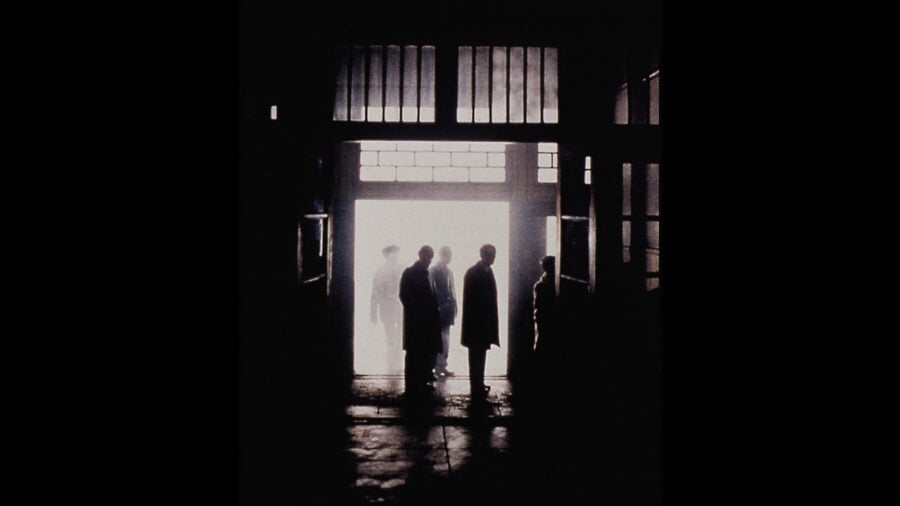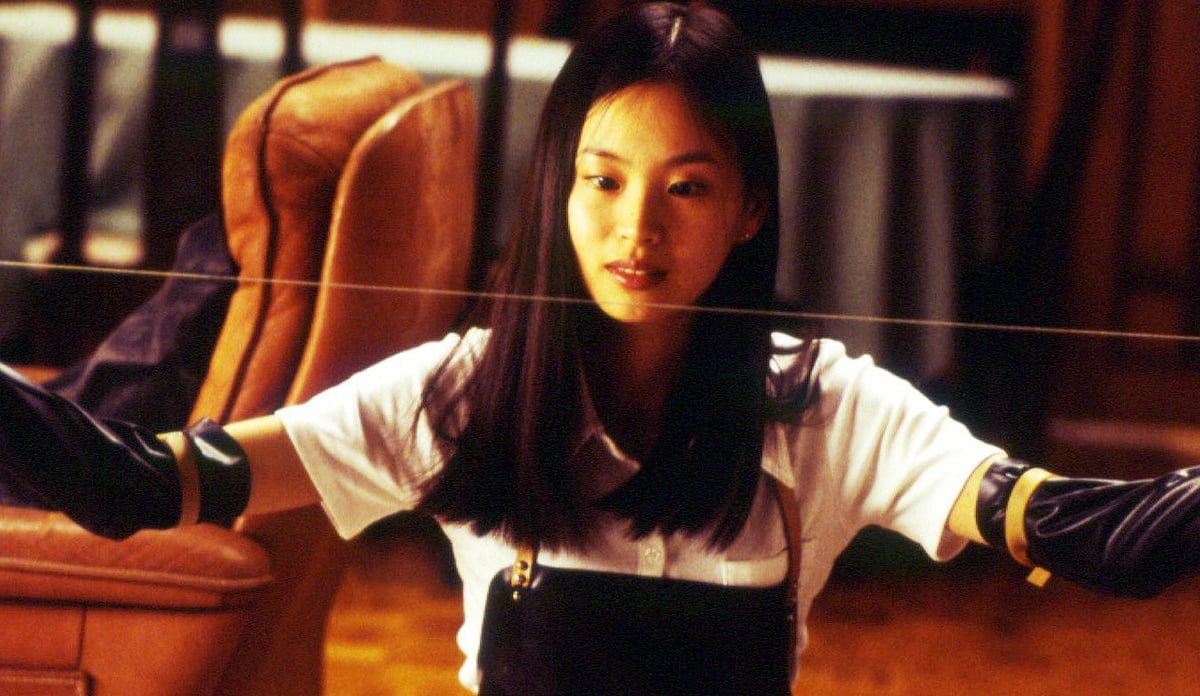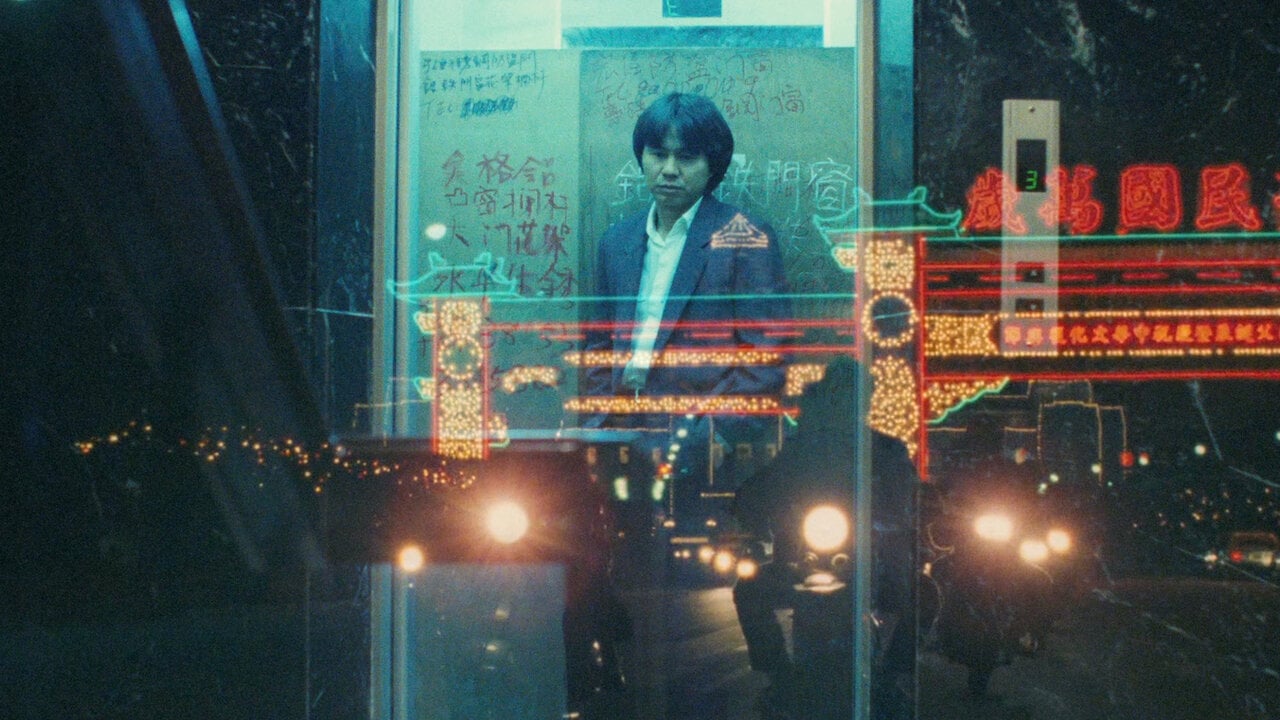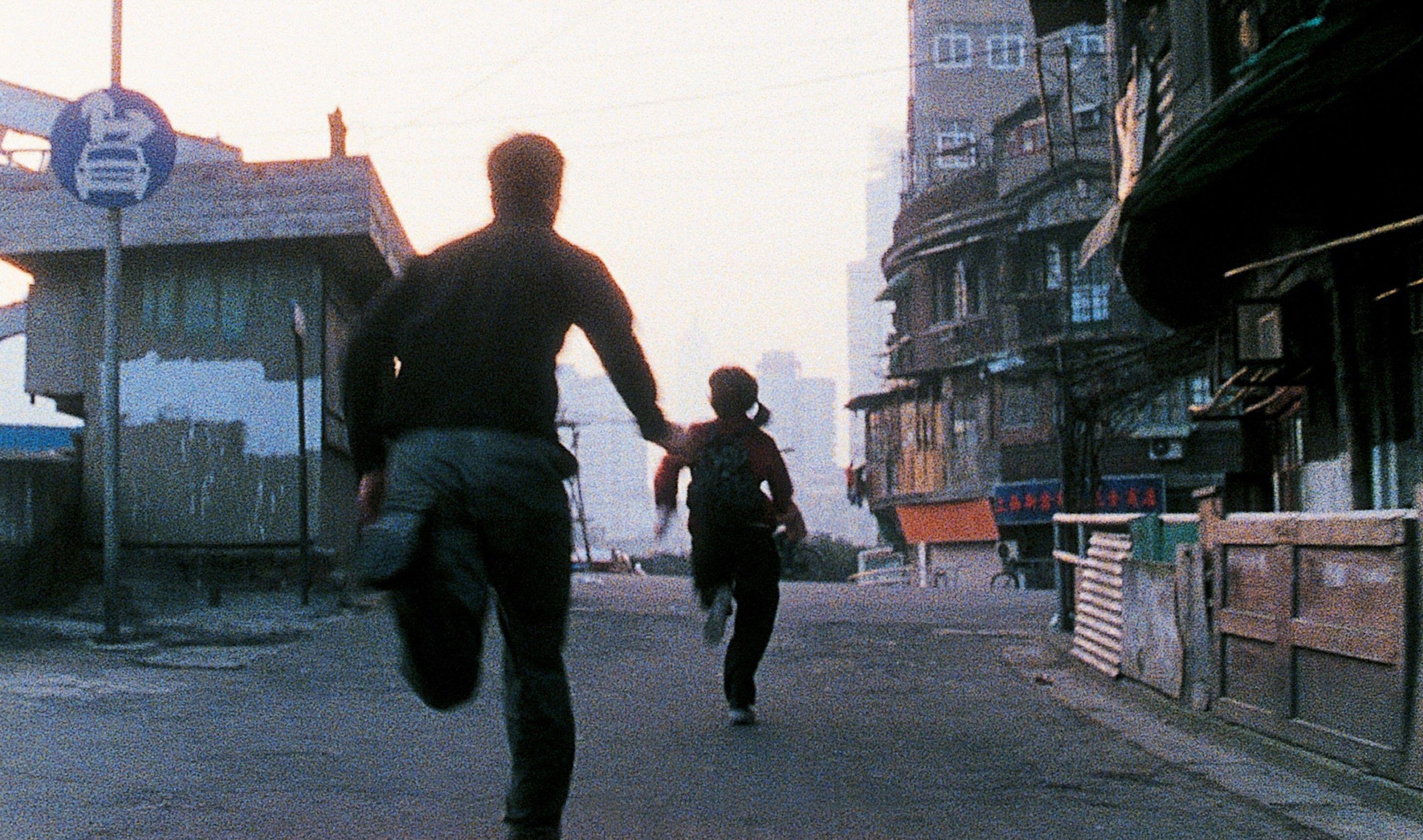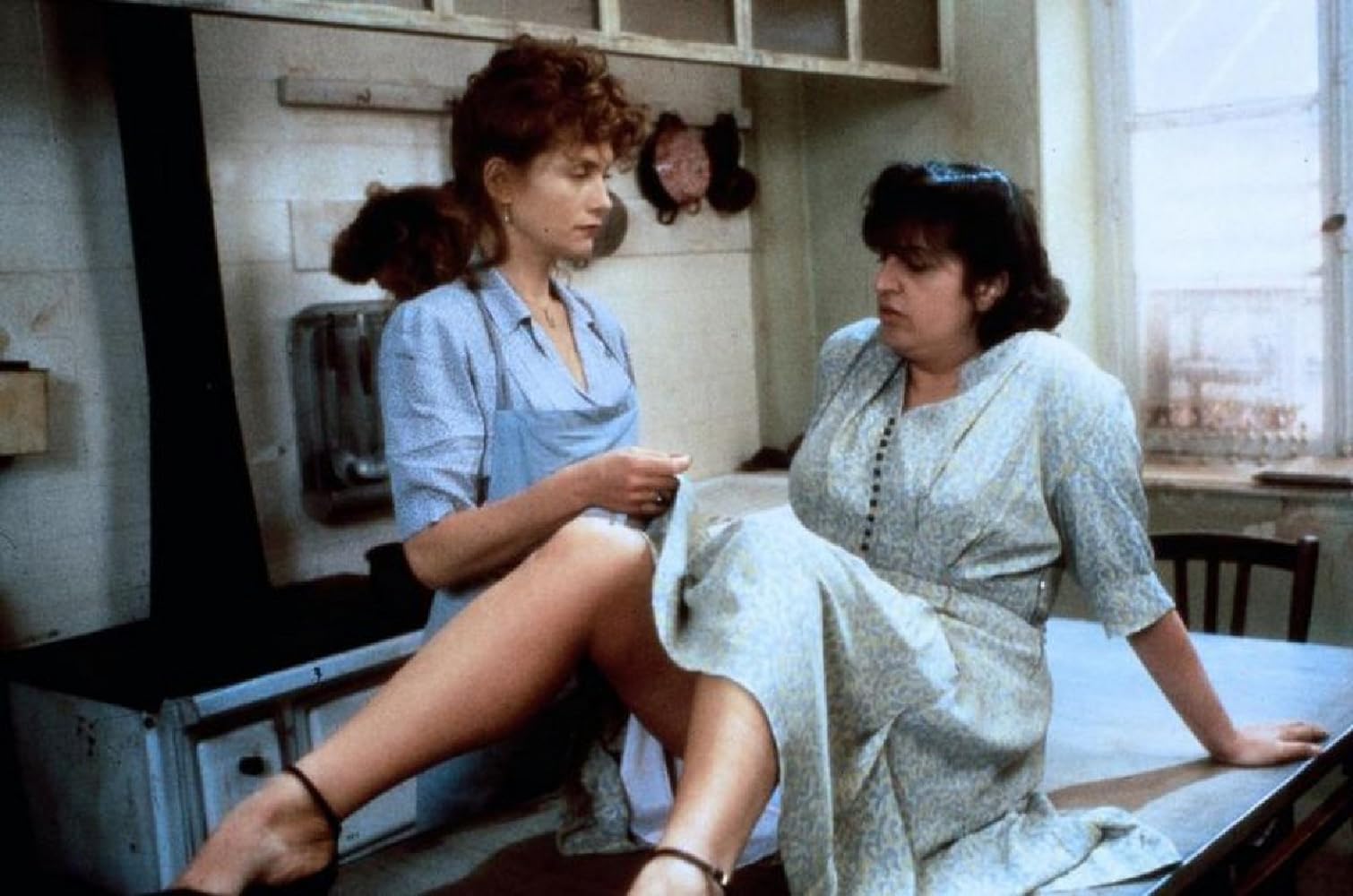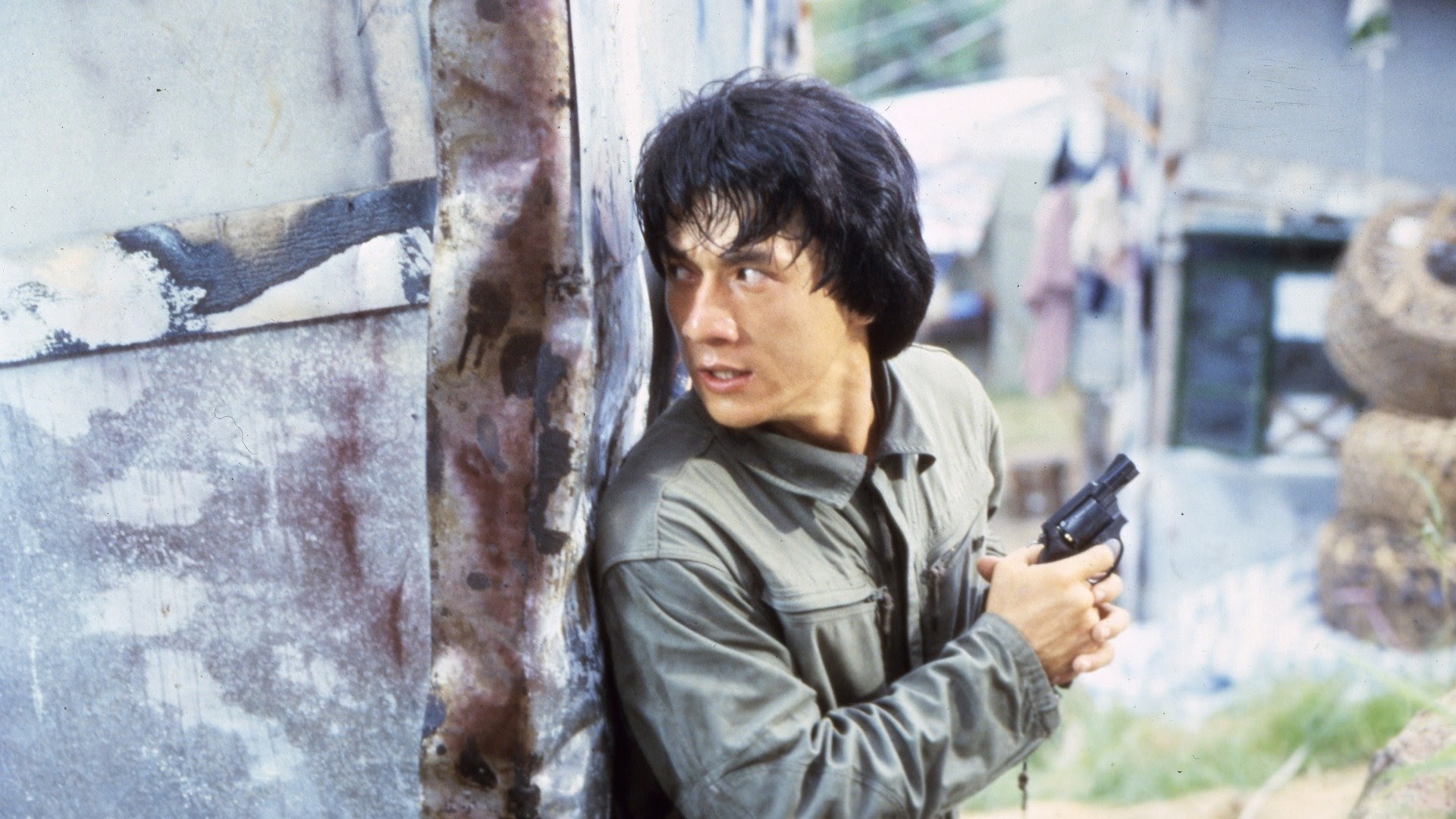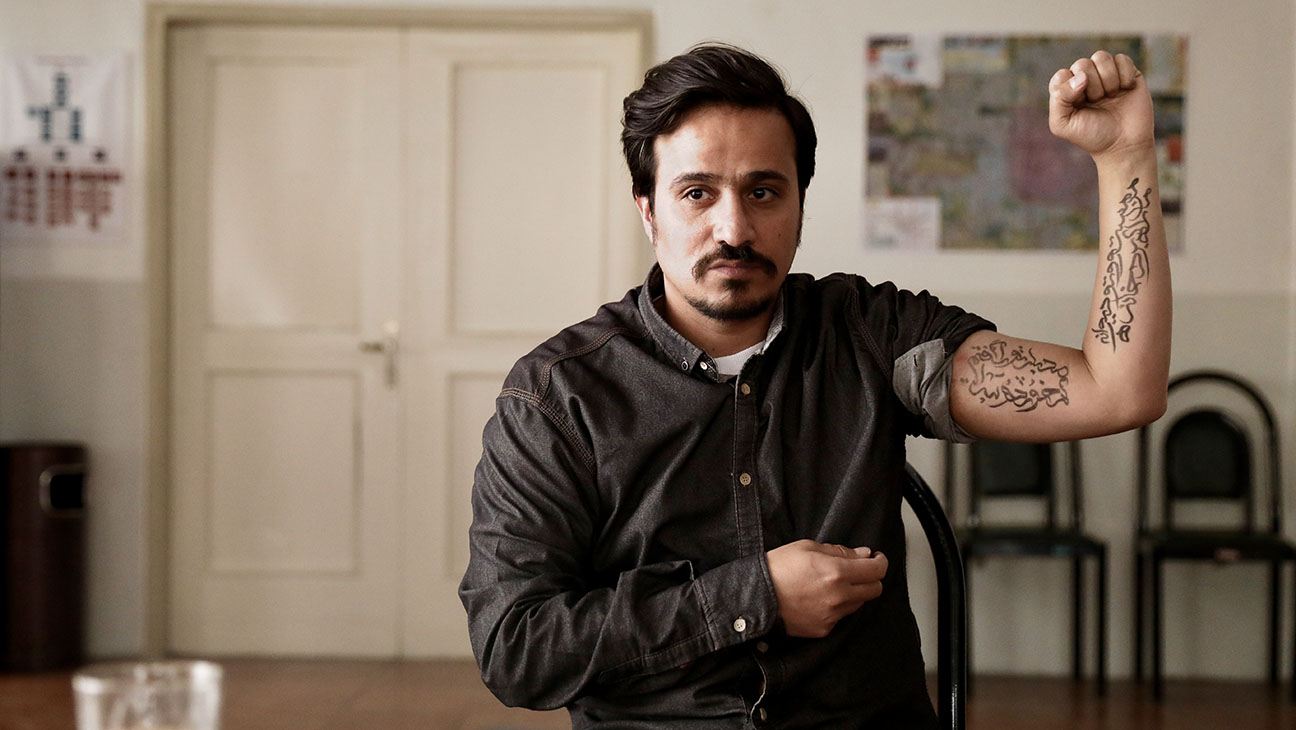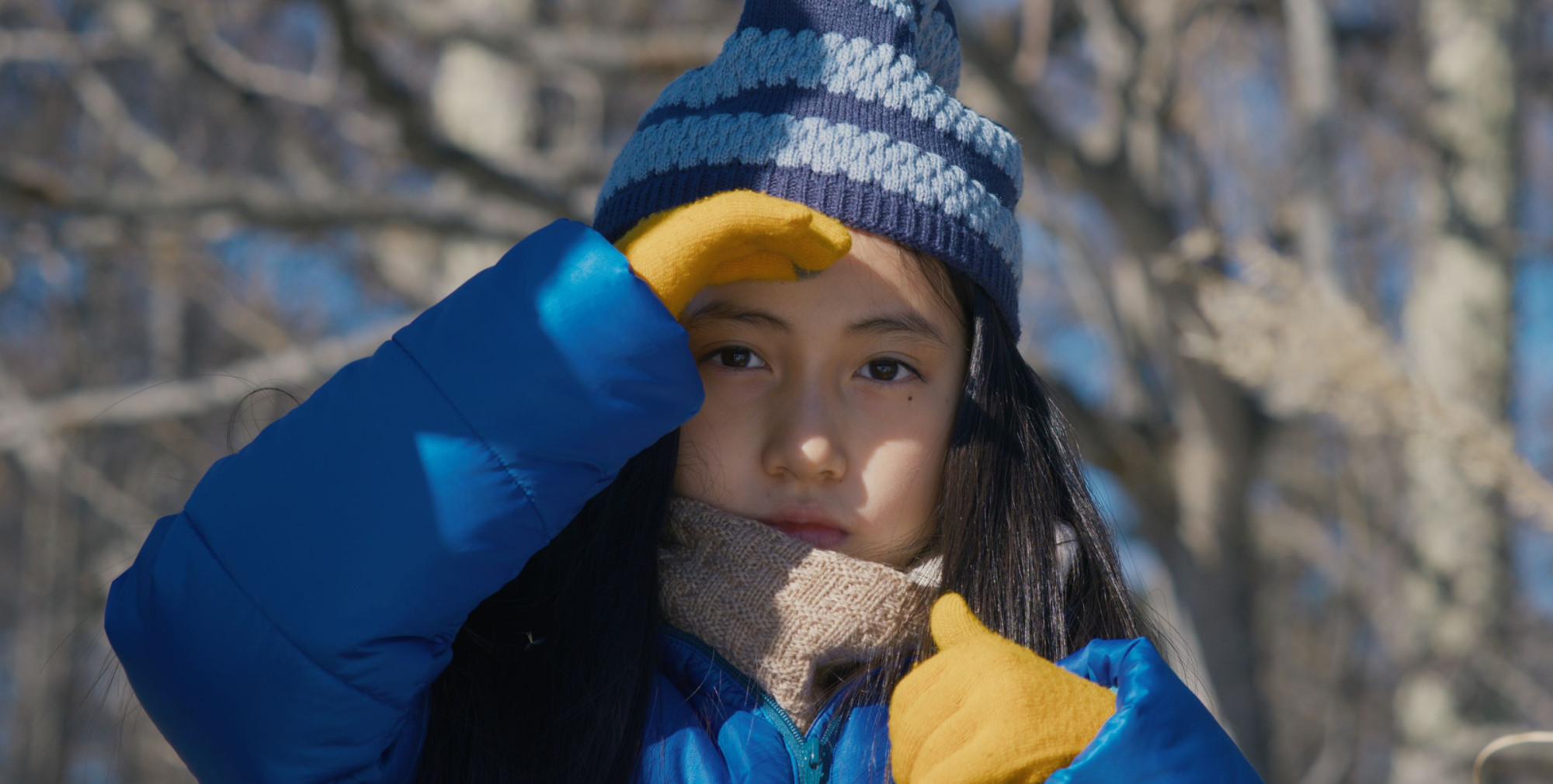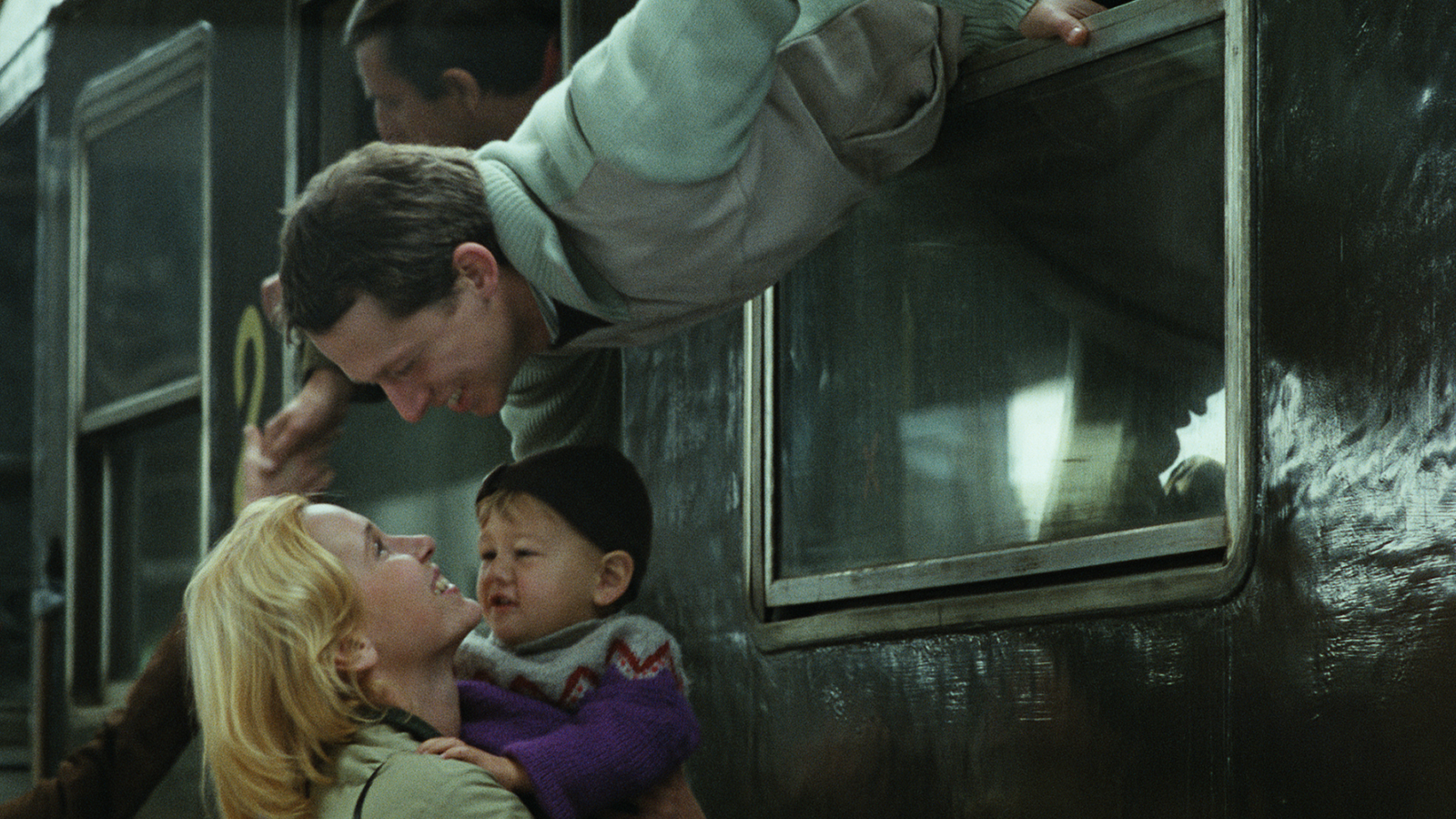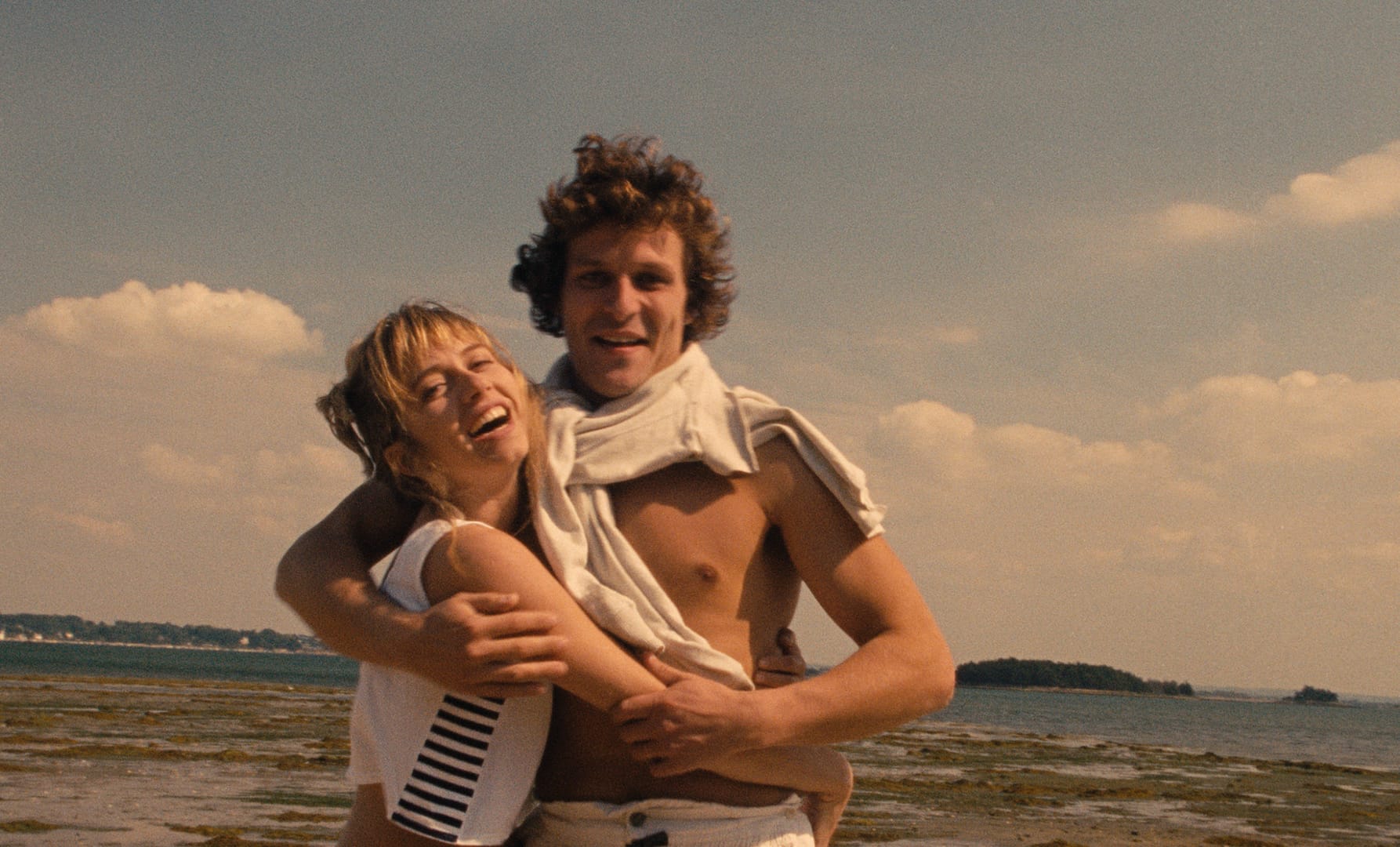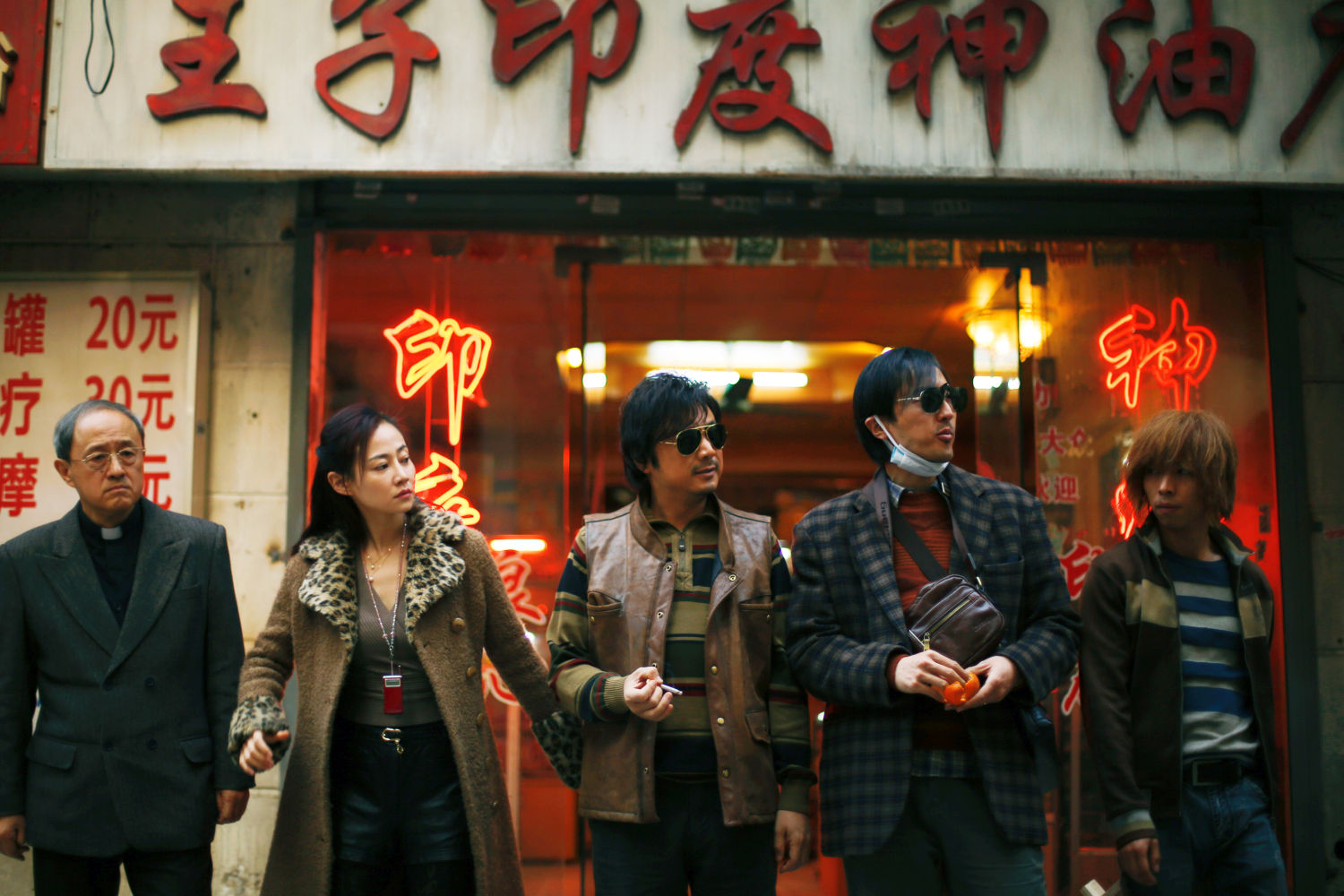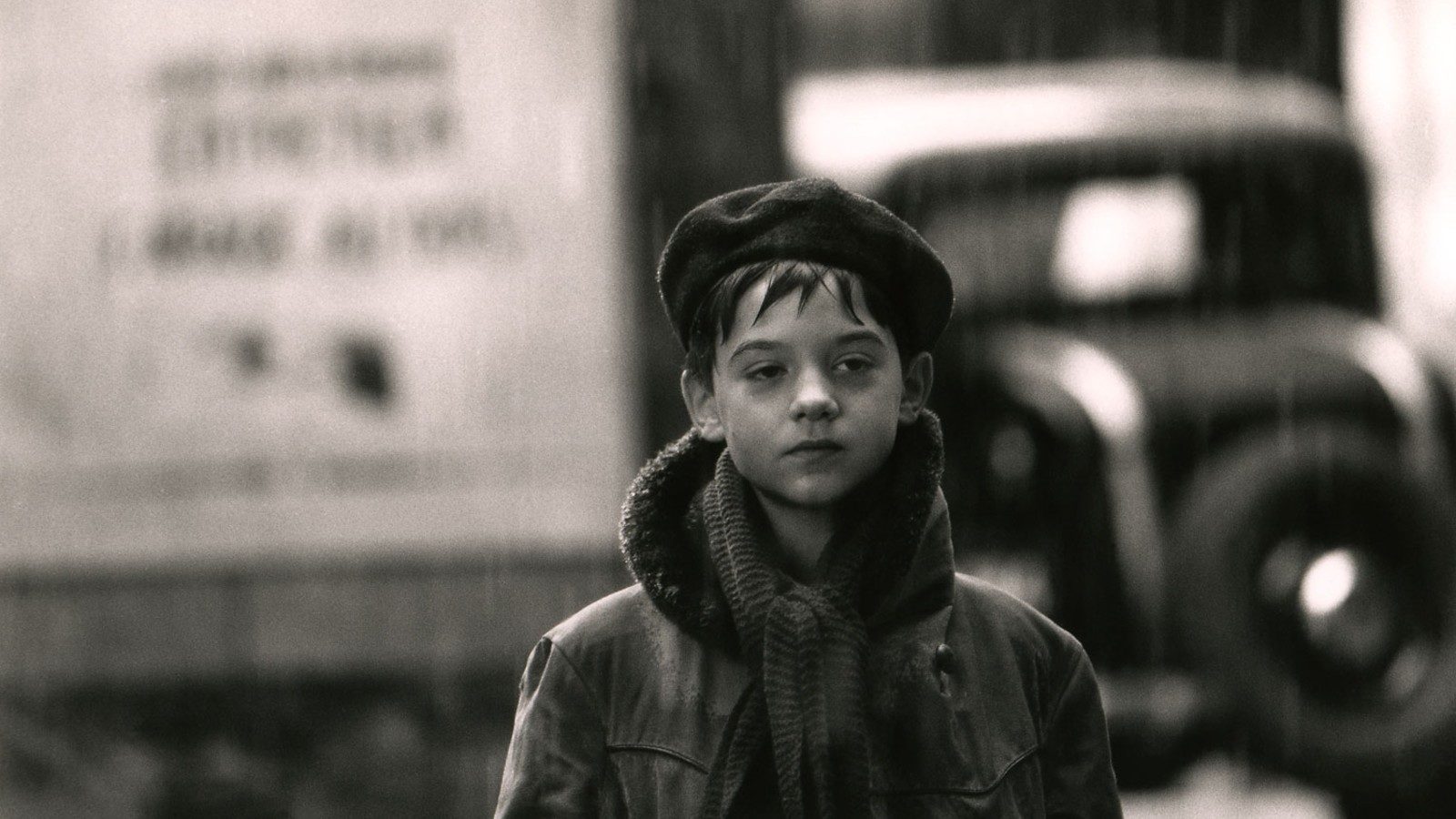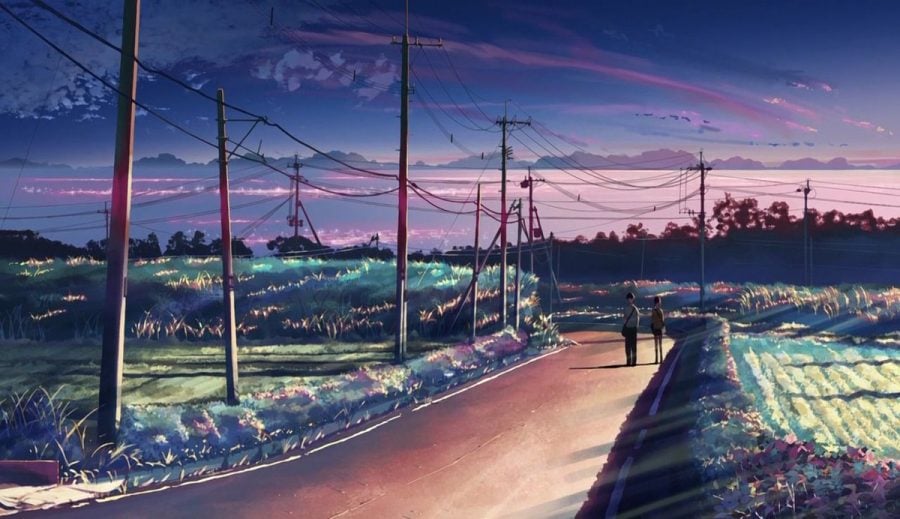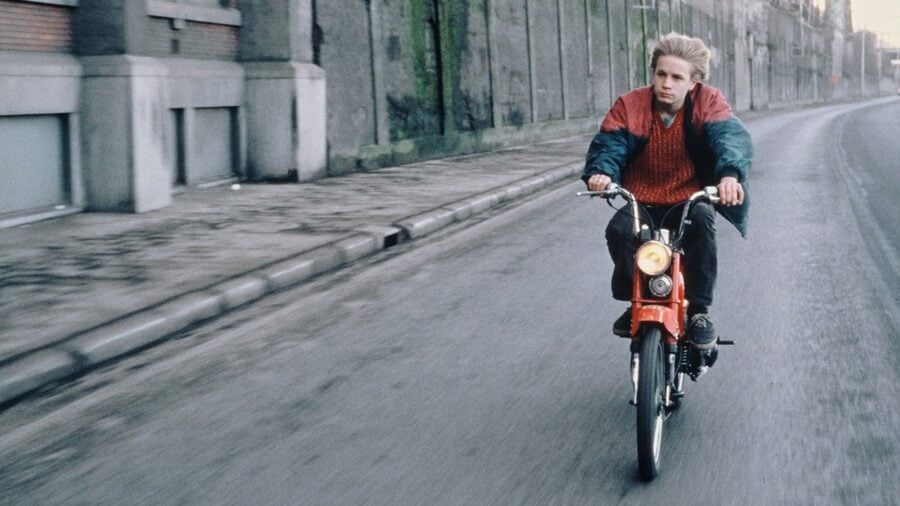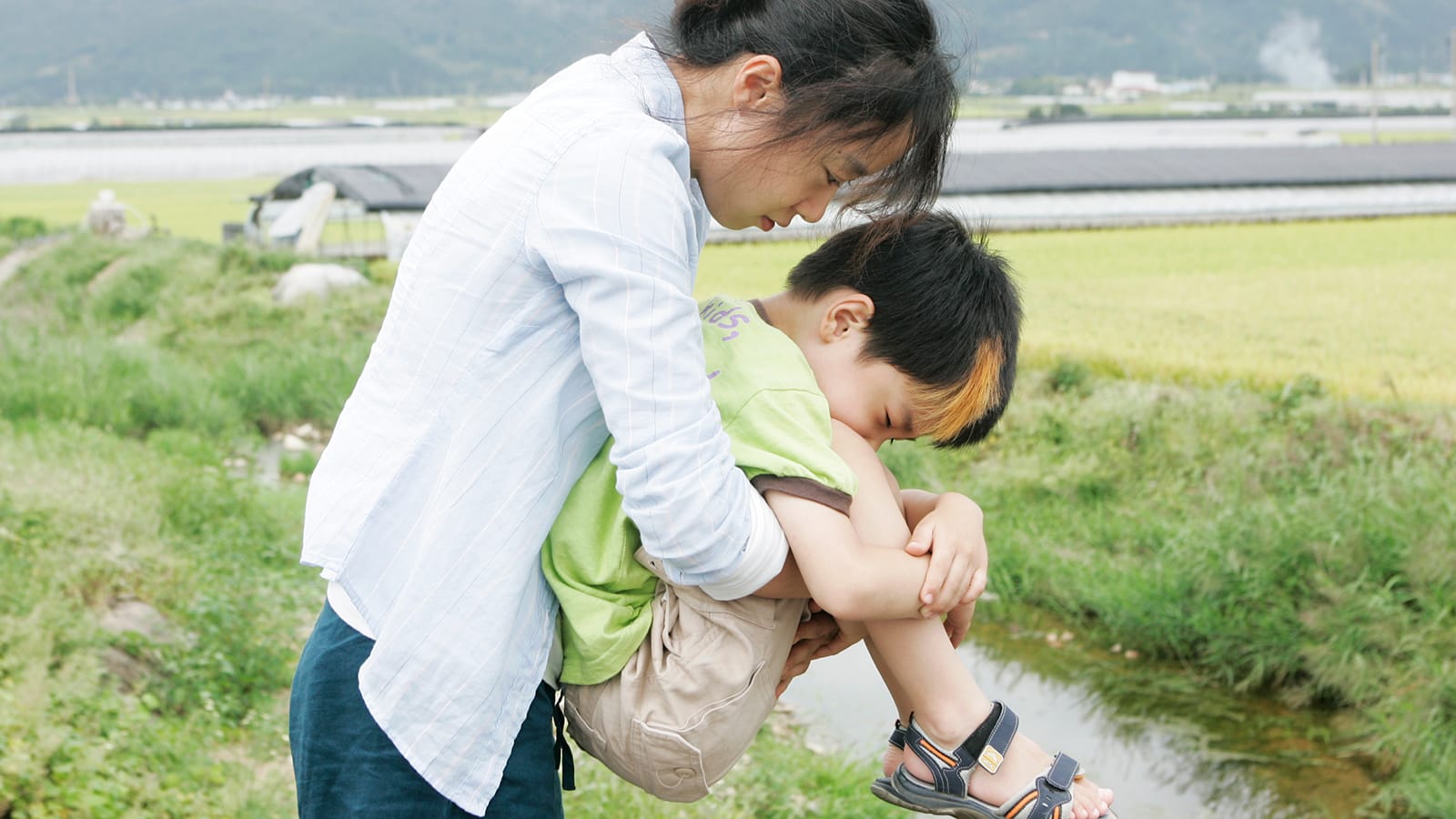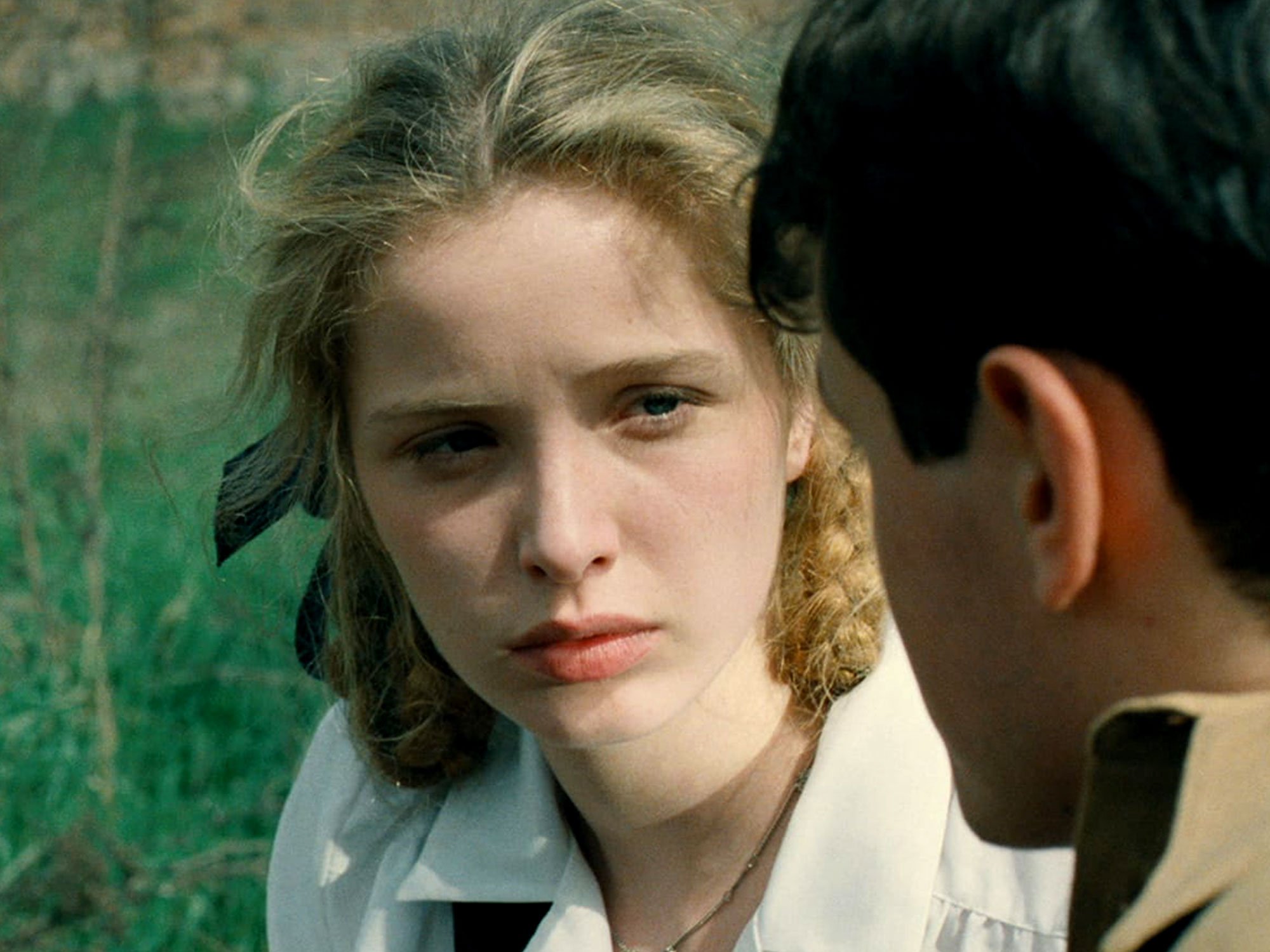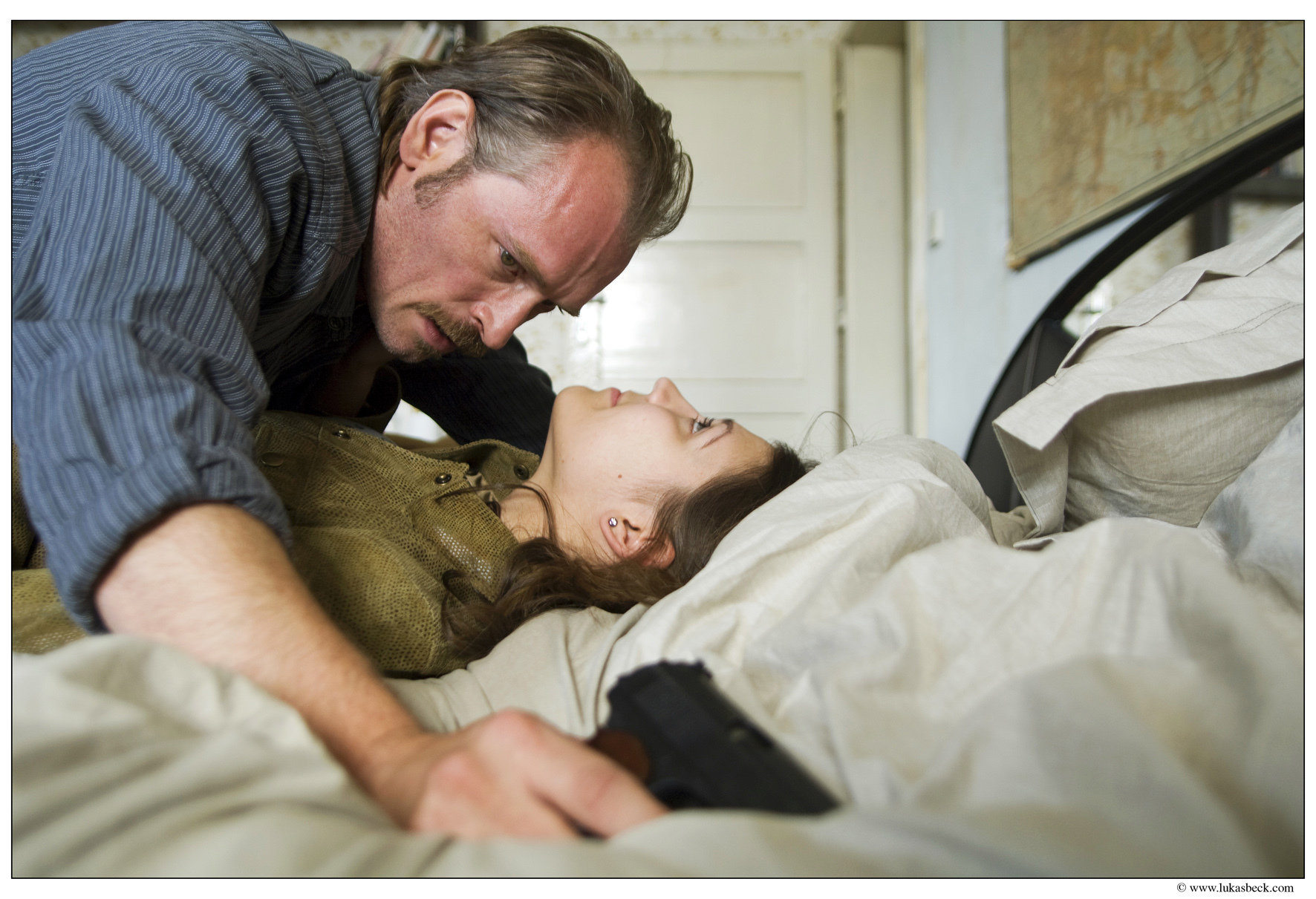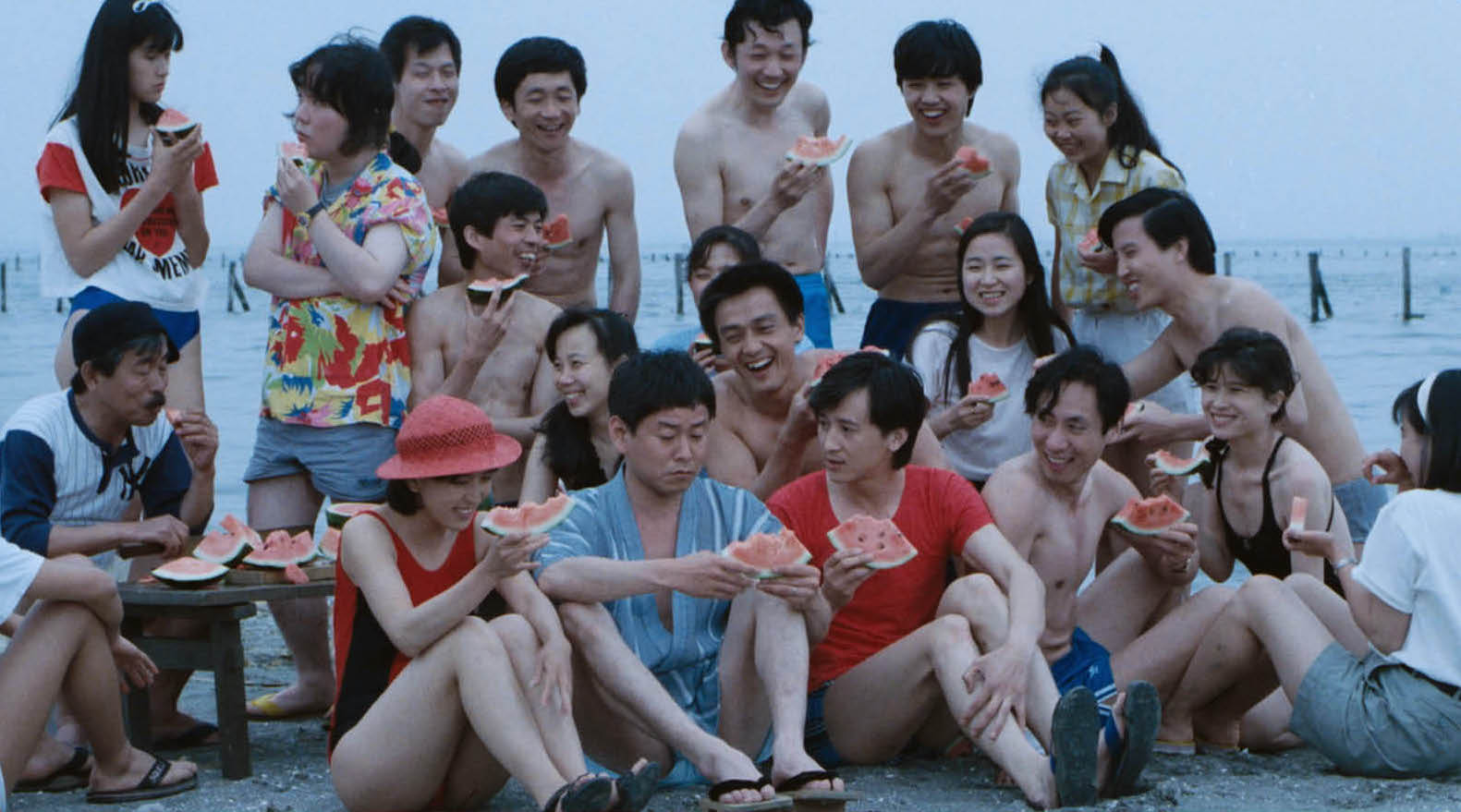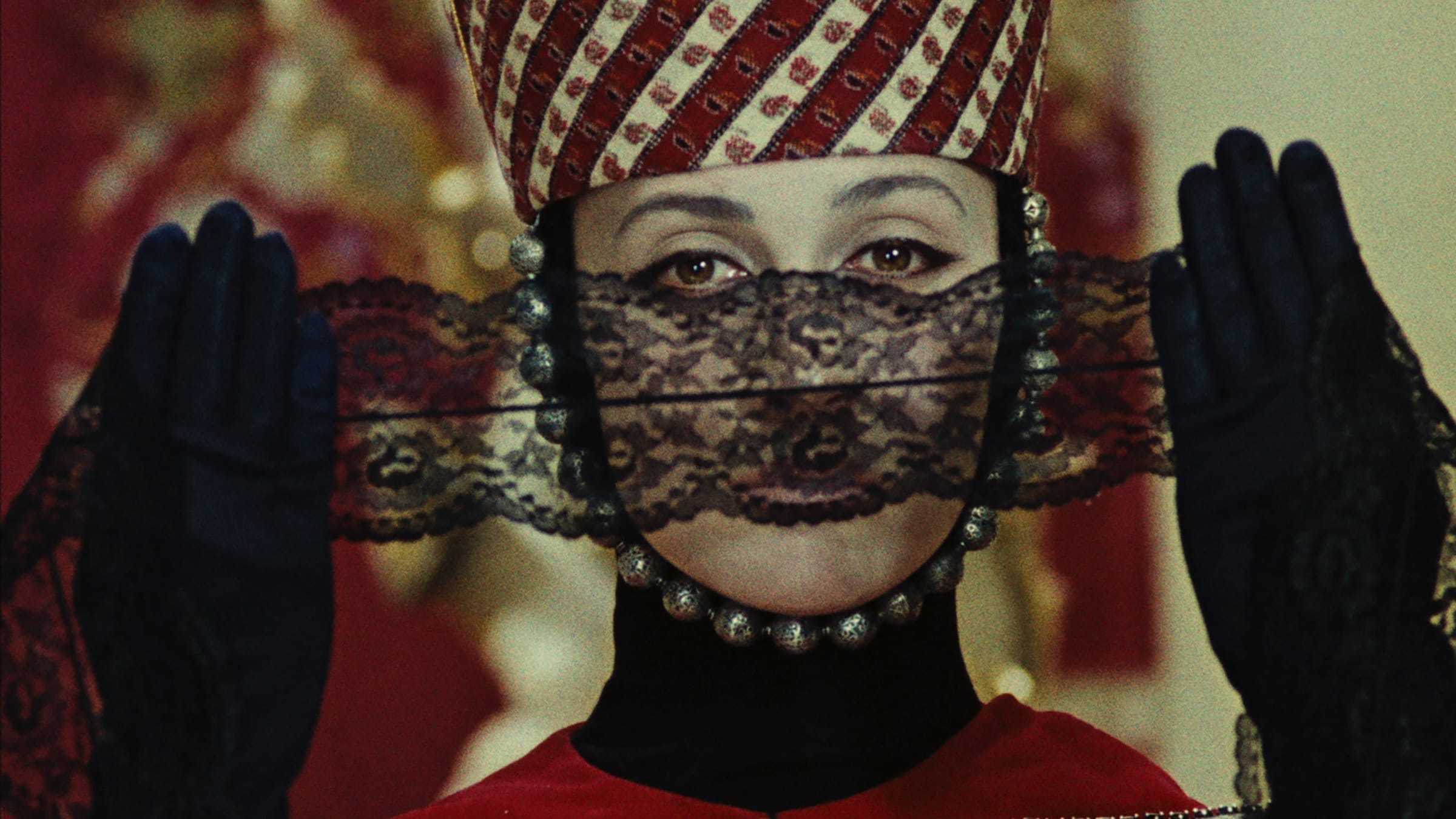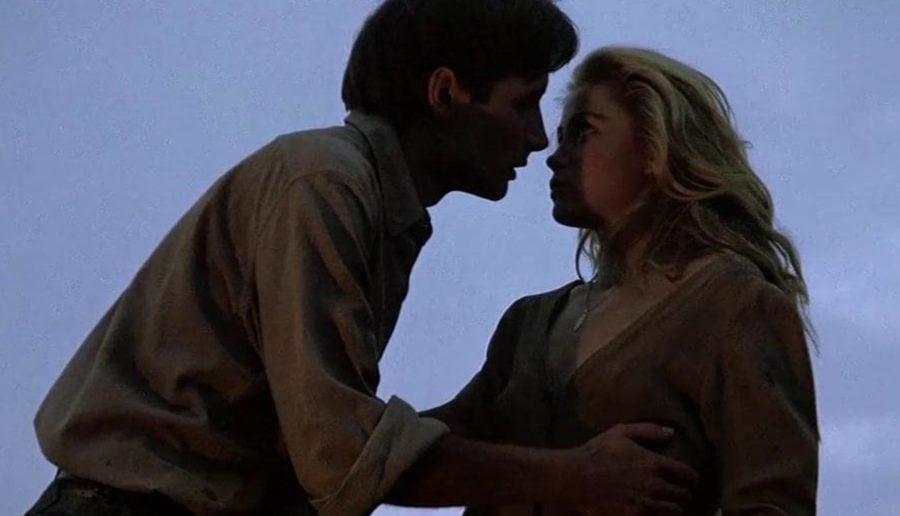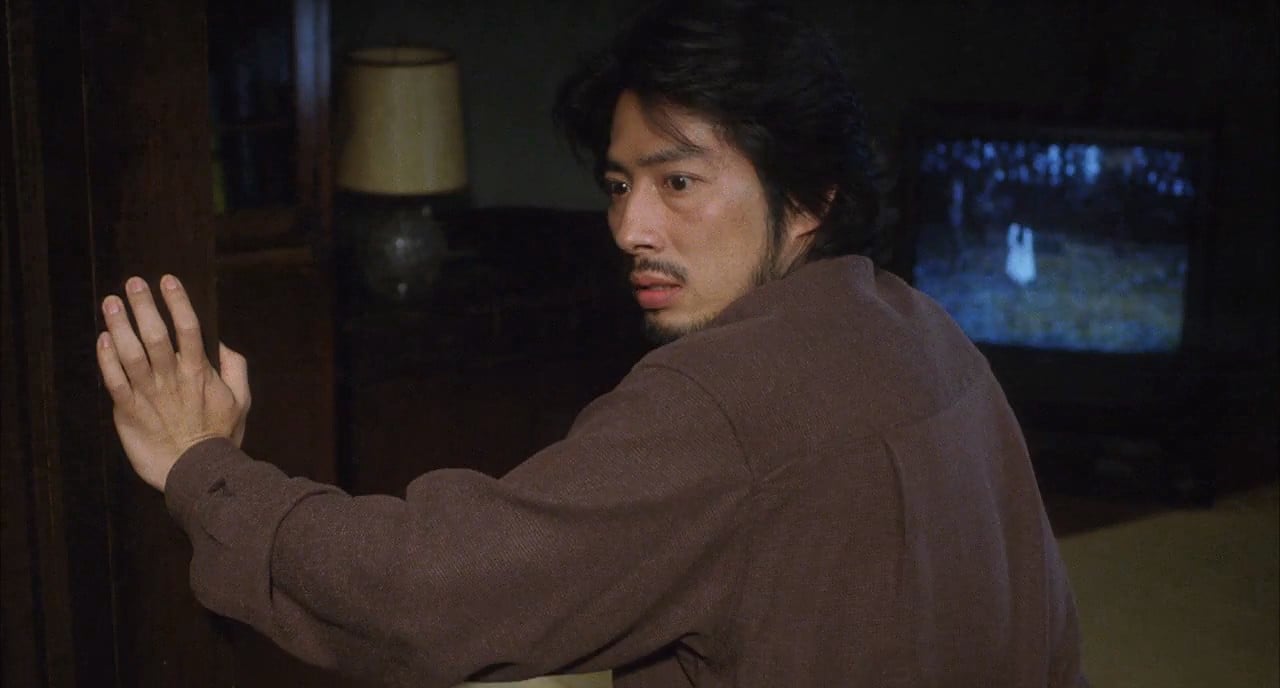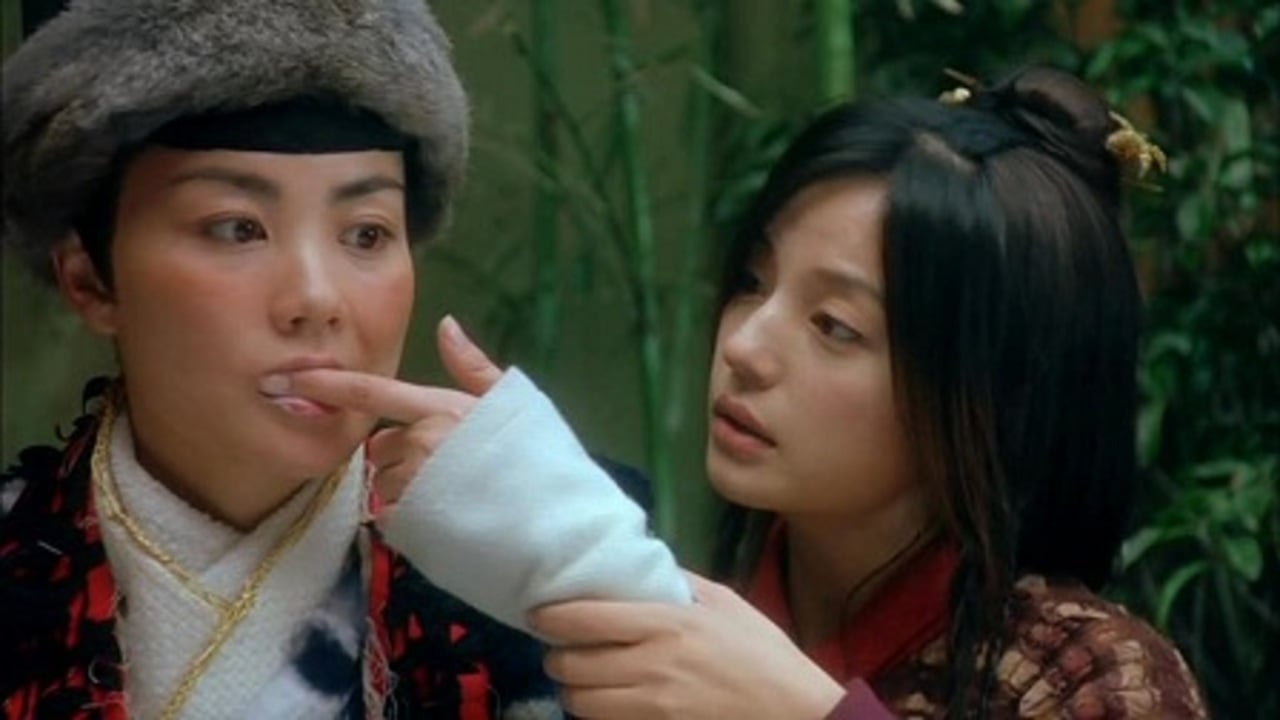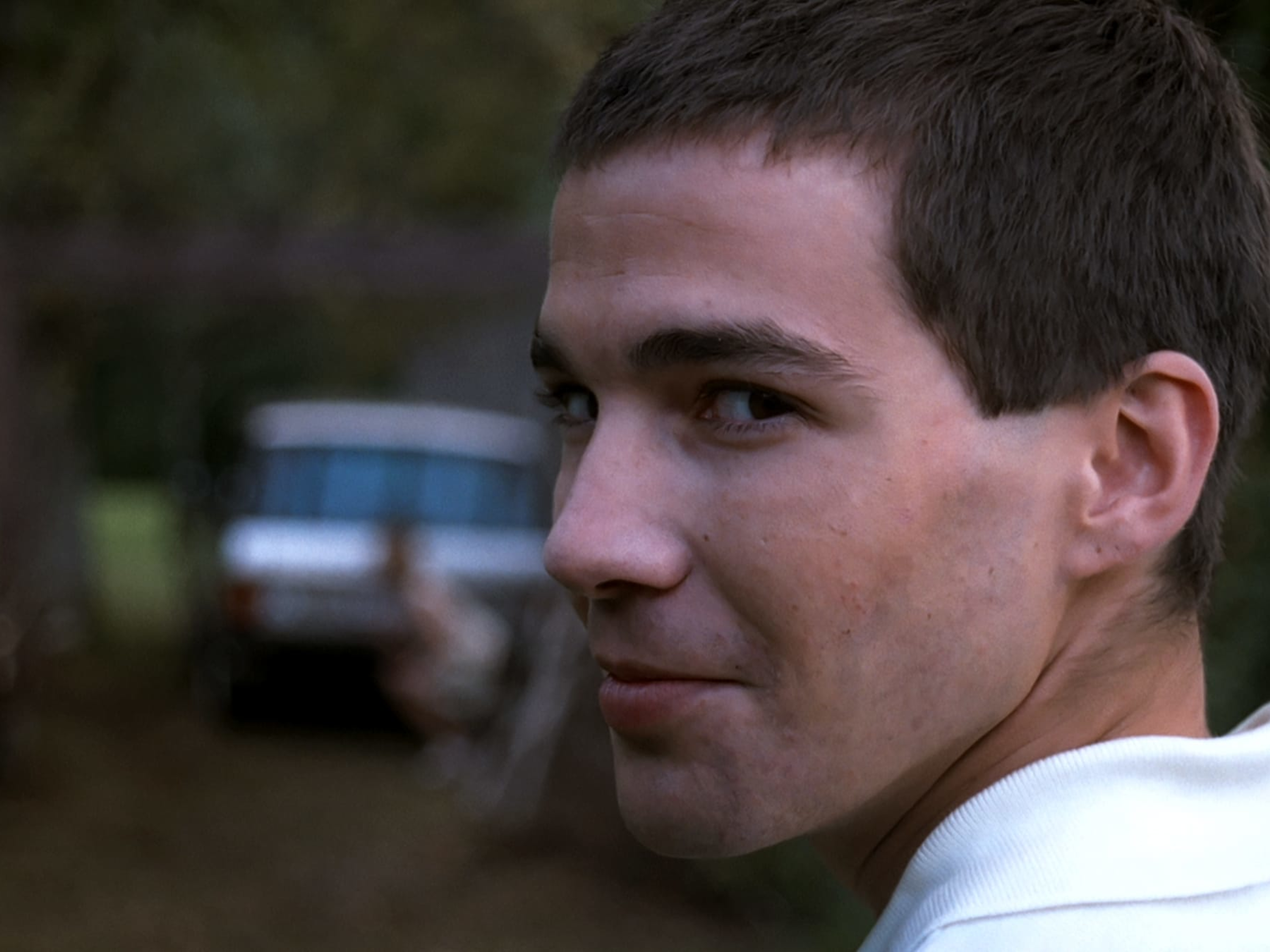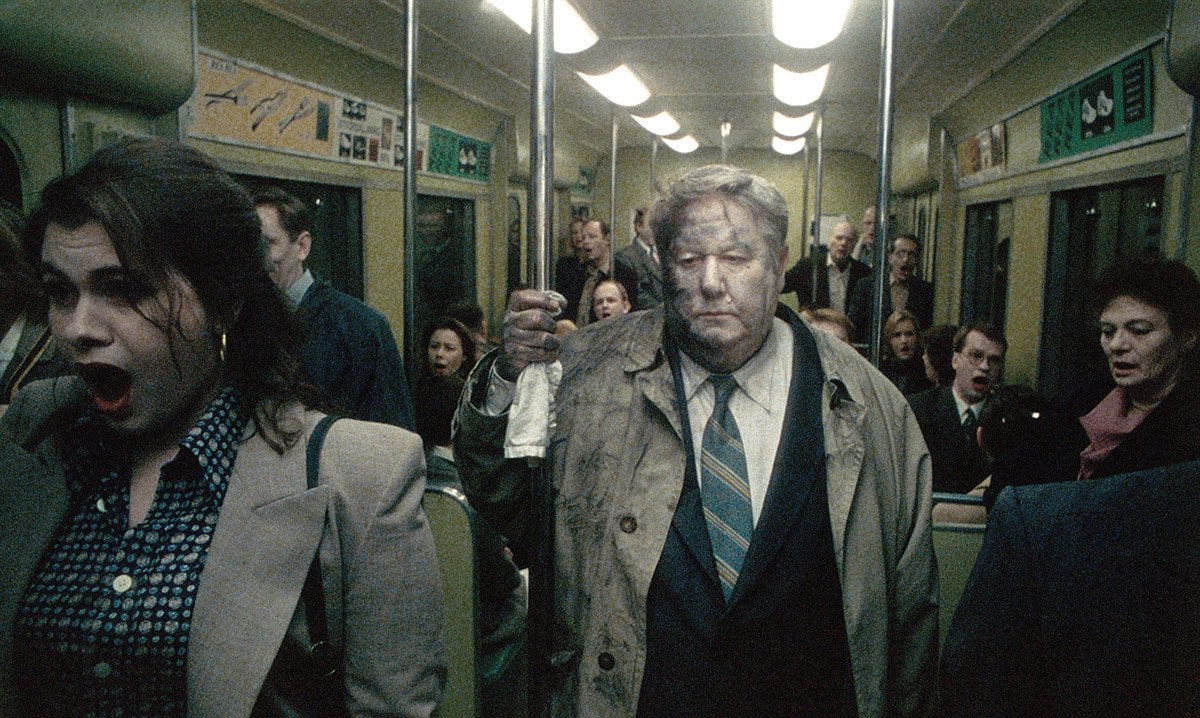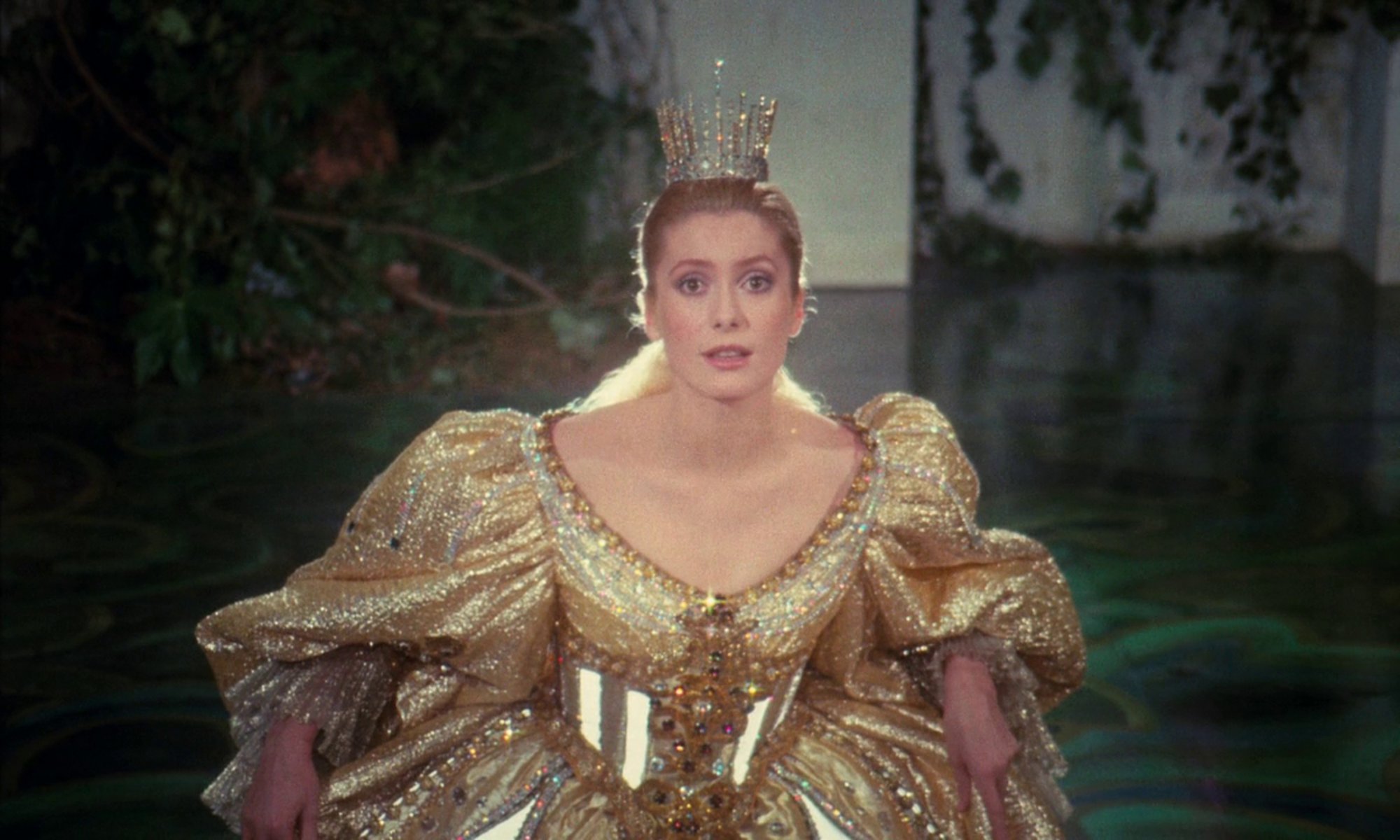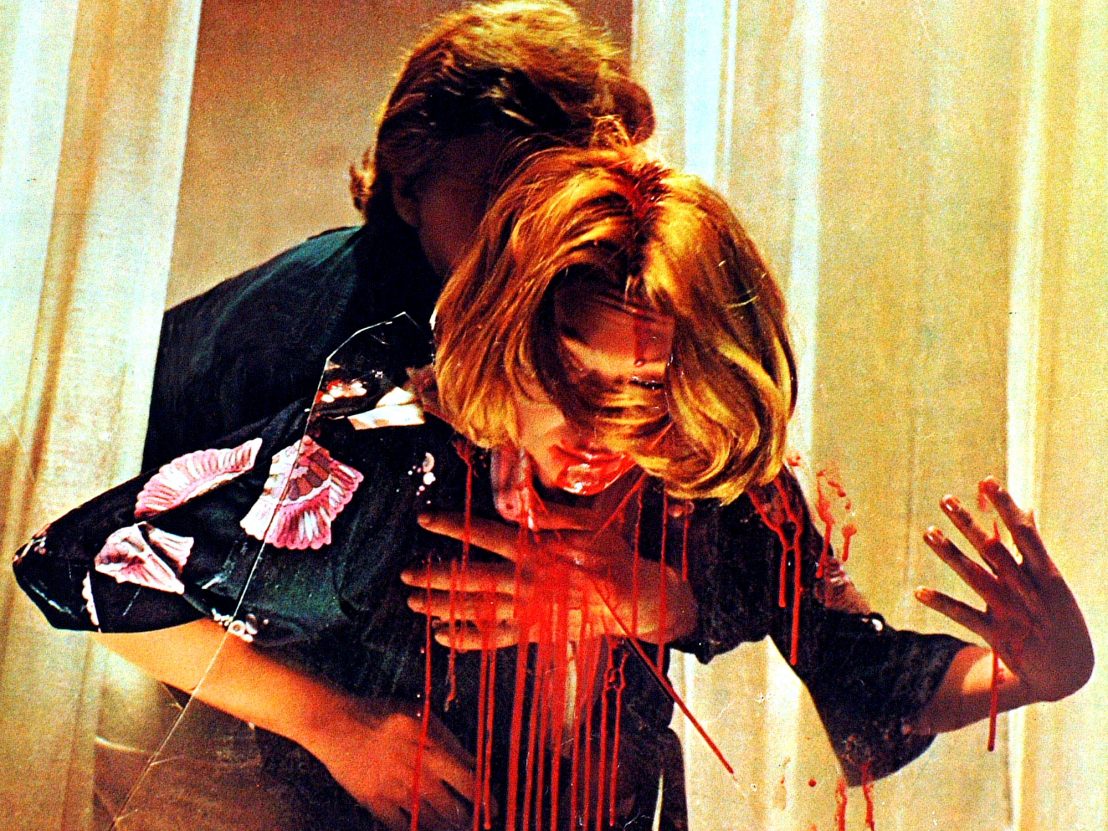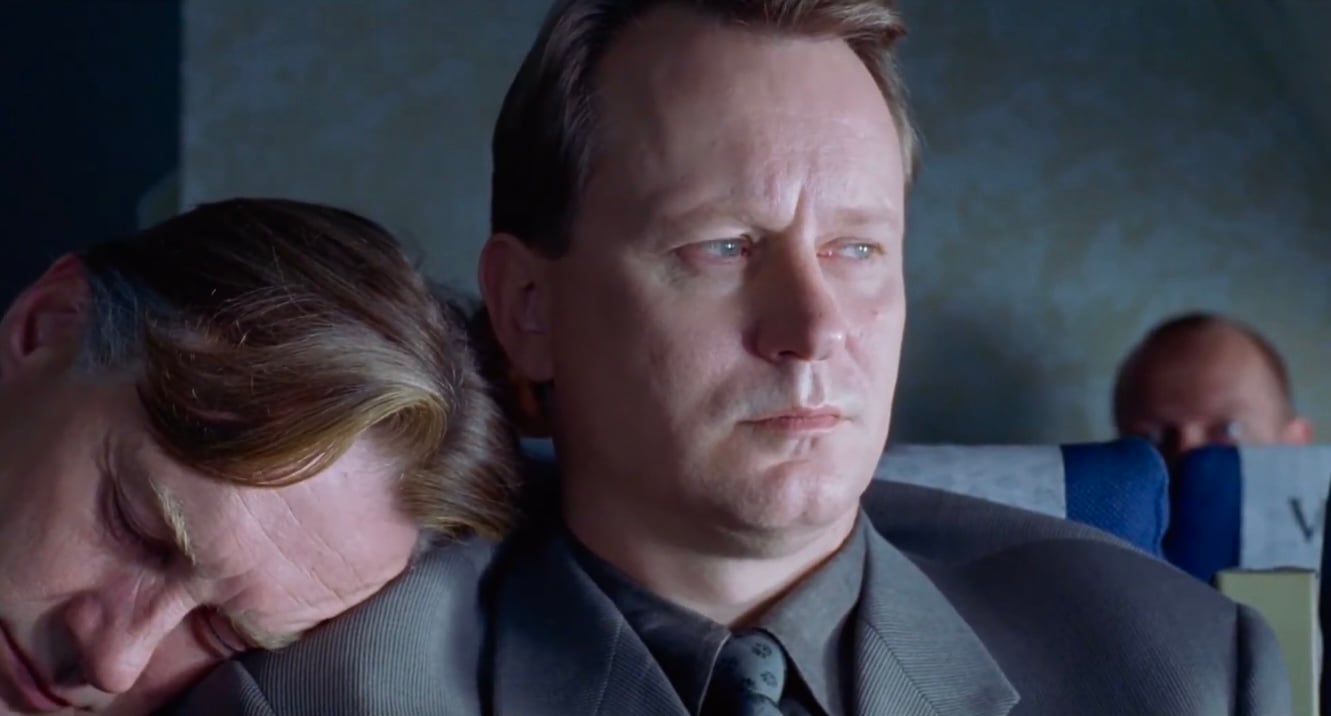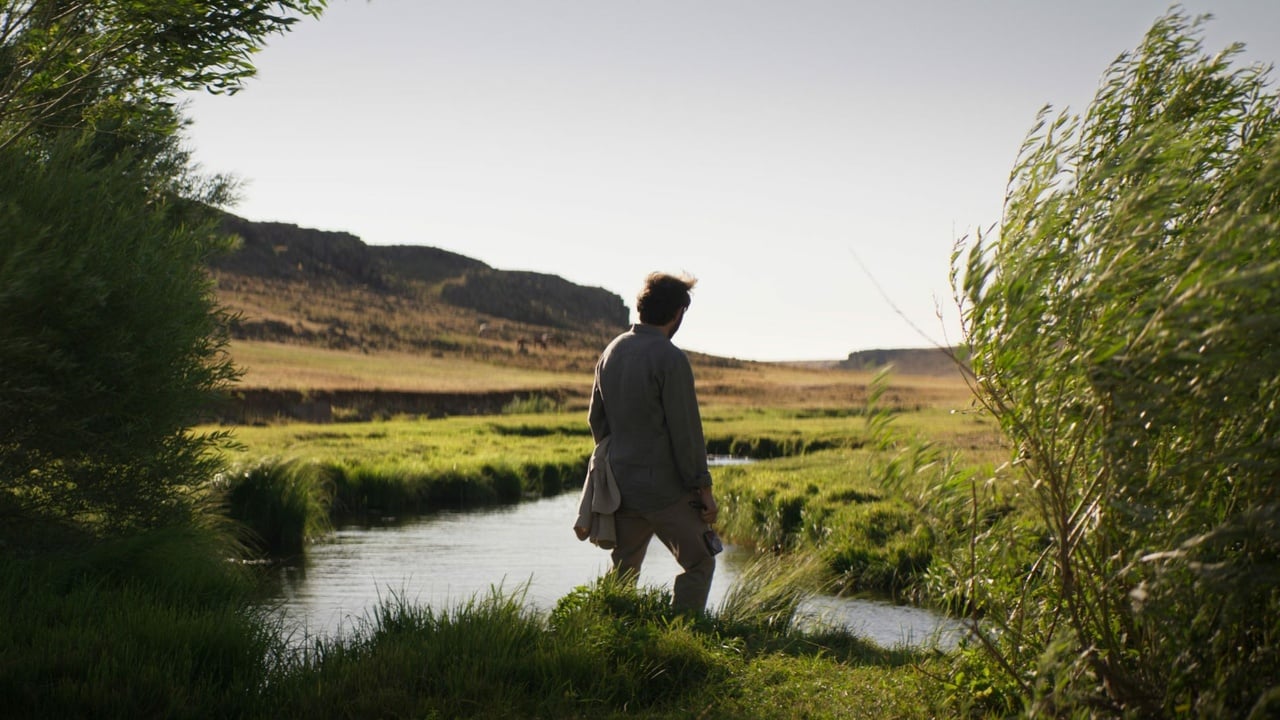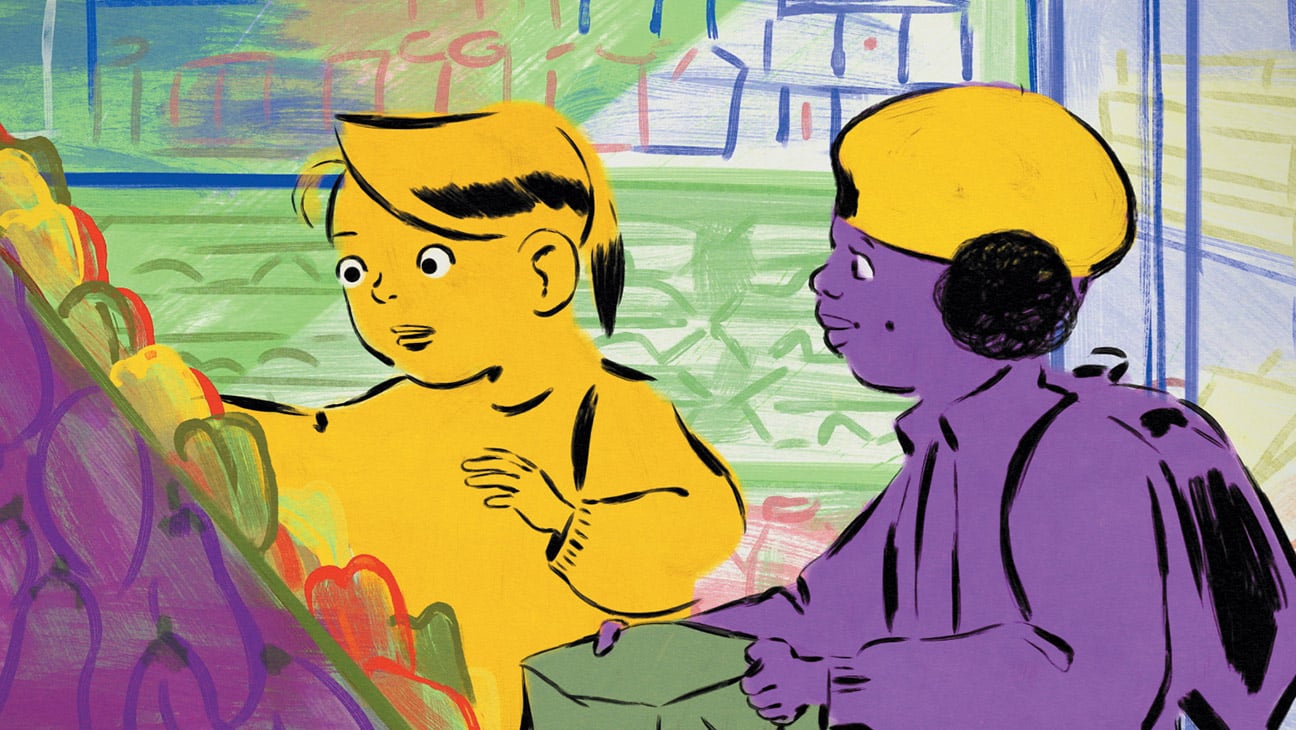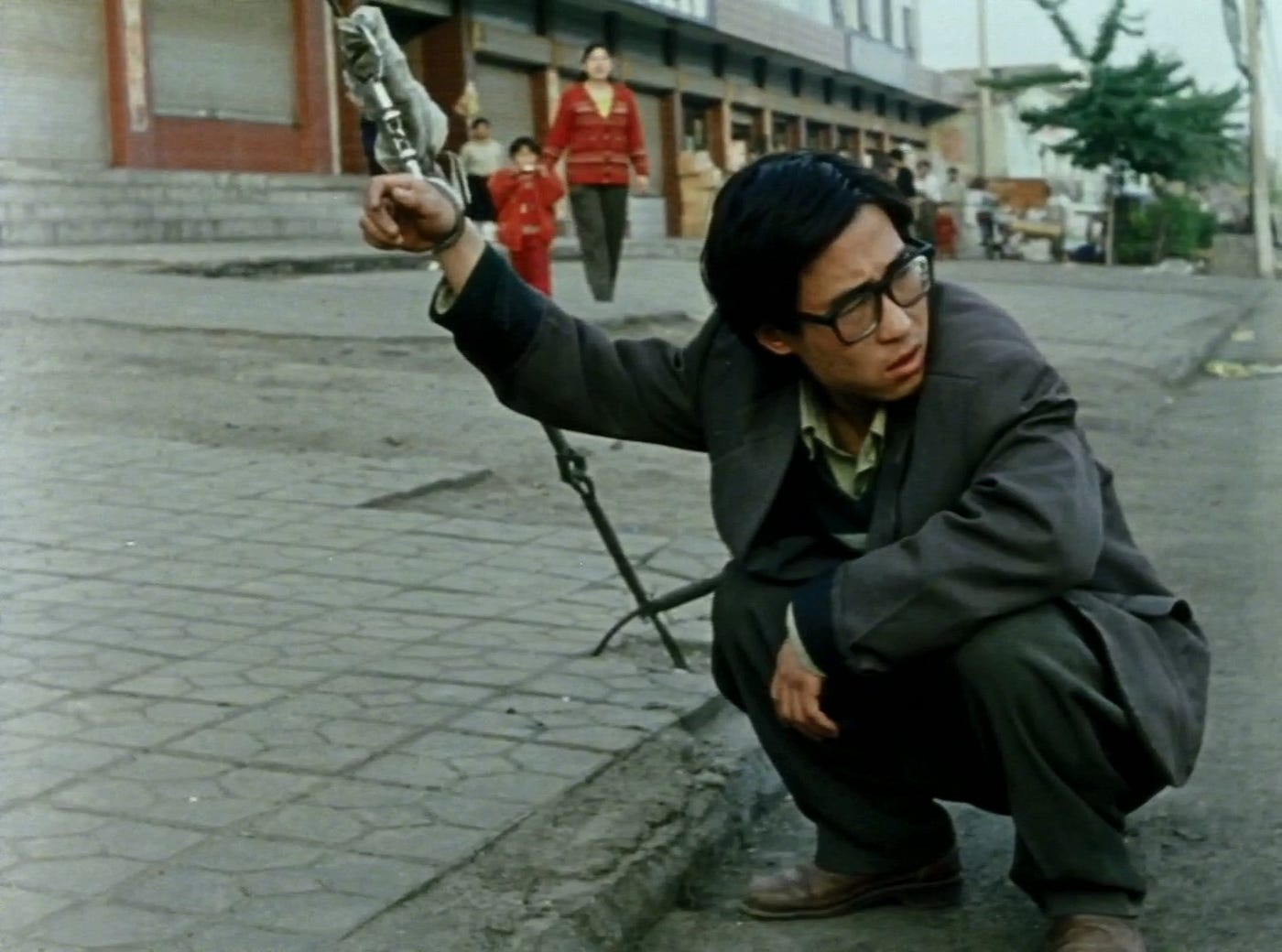75 Best Foreign Movies on Criterion Channel Right Now
With its dedication to restoring and distributing classics, there’s no doubt that the Criterion Channel has a great library for viewers to dive into. They’ve unearthed films once thought to be lost, they’ve figured out how to adapt the classic widescreen aspect ratio to regular screens, and they also added thoughtful, scholarly essays and commentary tracks for movie lovers. It won’t be a surprise that their library also includes hidden gems from all over the world, so for cinemas wanting a glimpse of something new, here’s some of the best foreign films available to stream on Criterion Channel.
The Great Beauty is a film of superlatives! Originally titled La Grande Bellezza, this movie by Italian star director Paolo Sorrentino is so replete with lush, opulent cinematography, it sometimes borders on sensory overload. Having won Best Foreign Language Film at the 86th Academy Awards, as well as the Golden Globe, and the BAFTA award in the same category, The Great Beauty is also a critics’ darling and an award-show sweeper – in addition to being hailed as Paolo Sorrentino’s greatest work to date.
Essentially a tragicomedy, it is both a study and a celebration of the hedonism and decadence of its main protagonist – the bon-vivant and modern-day Roman socialite Jep Gambardella (played by an electrifying Toni Servillo). Instead of honing the craft of writing, Gambardella at some point decides to become the self-proclaimed “king of high life” of Rome. After his 65th birthday, he experiences a shock that changes him for good, prompting him to look past the parties and the nightclubs and to discover the sublime beauty of his hometown, the eternal city. In this way, The Great Beauty is a meditation on art, regret, and pleasure – and Sorrentino’s love letter to Rome.
Genre
Drama
Director
Paolo Sorrentino
Language
Italian, Japanese, Mandarin, Spanish
Mood
Thought-provoking, Without plot
Called a masterpiece by many and featured on many best-of-the-21st-century lists, Director Wong Kar-wei has created a thing of singular beauty. Every frame is an artwork (painted, as it were, with help of cinematographer Christopher Doyle) in this meticulously and beautifully crafted film about the unrequited love of two people renting adjacent rooms in 1960s Hong Kong. These two people, played by Tony Leung and Maggie Cheung, struggle to stay true to their values rather than give in to their desires, while they both suspect their spouses of extramarital activities. The flawless acting, stunning visuals, and dream-like beauty of In the Mood for Love perfectly captures the melancholy of repressed emotions and unfulfilled love. The cello motif of Shigeru Umebayashi’s main theme will haunt you long after you finished watching.
Genre
Drama, Romance
Director
Wong Kar-wai
Language
Cantonese, French, Spanish
Mood
Dramatic, Lovely, Romantic
Cure is about a mad society, where both cure and sickness might be one and the same. Director Kiyoshi Kurosawa subverts the police procedural into an interrogation without definite answers, an abstract study on the evil that resides and is suppressed in every person’s heart. Unlike most horror films, Cure’s scares are left in plain sight, hypnotically mesmerizing as they are gruesome, with a sense of mundanity associated with other Japanese masters like Ozu or Kore-eda. “At the time it just seemed the right thing to do,” a man answers when asked why he killed his wife, and it is this contradictorily calm, nonchalant demeanor that creates a feeling of unease in the film’s horror aesthetic.
Genre
Crime, Drama, Horror, Mystery, Thriller
Director
Kiyoshi Kurosawa
Language
Japanese
Mood
Challenging, Dark, Gripping, Intense, Smart, Thought-provoking
Thirty years after its release, the first ever Chinese language Palme d’Or winner has finally been made more accessible through Criterion Channel through its uncut 4K restoration. Farewell My Concubine is one of those classical epics that is considered essential viewing, but even with its near 3 hour runtime, the film still holds up all these decades later with its startlingly heartrending love story and depiction of the tumultuous shifts of 20th century China. Director Chen Kaige masterfully balances both sides, tapping into the pain Dieyi (Leslie Chung) chooses as he clings to the classical opera, the very art form that allows him a sliver of his unrequited love to be realized, but that is also limited depending on whichever government is in charge at the moment. It’s possibly one of the most beautiful and most miserable films ever made.
Genre
Drama
Director
Chen Kaige
Language
Mandarin
Mood
Challenging, Character-driven, Depressing, Dramatic, Emotional, Intense, Slow, Thought-provoking, Well-acted
Koreeda is a master of the tender gaze. He deals so softly, elegantly, and emphatically with the characters in his films, it will make you feel like you’re watching life itself in all its complex, emotional splendor. Maybe this is particularly true for this movie because it has been inspired by Koreeda’s memories of his own childhood and the passing of his mother. Still Walking is a quietly toned movie spanning a period of 24 hours in the life of the Yokoyama family, as they gather to commemorate the passing of their eldest son. At the center of the story is the father, an emotionally distant man who commands respect both from his family and community. Opposite from him sits the other son, the black sheep, who seeks his father’s validation. Directed, written, and edited by Koreeda, this dynamic is one of many in this slice-of-life movie about how families deal with loss. And, however distant the culture or setting in Japan may seem to the outsider, you’re bound to recognize either yourself or your family among the tender scenes of this masterful drama.
Genre
Drama, Family
Director
Hirokazu Kore-eda, Hirokazu Koreeda
Language
Japanese
Mood
Character-driven, Discussion-sparking, Slice-of-Life, Sunday, Without plot
The apex of Abbas Kiarostami’s monumental filmography, Close-Up is a testament to the late directors’ ingenuity and humanism. Kiarostami documents the real-life trial of a man who impersonated fellow Iranian filmmaker Mohsen Makhmalbaf, and ingratiated himself to a family believing him to be the real deal. The courtroom drama and interviews are fascinating enough, but Kiarostami takes it one step further by having everyone involved reenact the events as they happened.
The result is an unparalleled piece of filmmaking that blurs the boundaries between documentary and narrative while posing vital questions about the exclusivity of cinema and the storytelling process. Despite its sophisticated constructions, Kiarostami’s direction is lucid and direct as it builds to a passionate and unforgettable conclusion.
Genre
Crime, Documentary, Drama
Director
Abbas Kiarostami
Language
Azerbaijani, Persian
The Iranian director Jafar Panahi has faced constant persecution from his country’s government for over a decade, for his career of sharply political films speaking truth to power. In fact, No Bears—which was shot in secret, in defiance of the government banning him from filmmaking for 20 years—had its initial festival run in 2022 while Panahi was in prison. Evidence of Panahi’s drive to keep making his movies, no matter what, are clear in this film’s limited resources and occasionally inconsistent video quality. But even those obstacles can’t get in the way of his vaulting ambition.
No Bears operates on several different layers that all express Panahi’s growing frustration with—but also his commitment to—making art that only ever seems to put himself and other people in harm’s way. At its base level, this is a suspenseful small-town thriller, as an exiled Jafar Panahi (playing himself) tries to evade suspicion from the villagers around him. At the same time, Jafar is struggling to direct a film remotely, which creates a strain on his production crew. On top of that, the characters in his film undergo their own drama, seeking asylum out of Turkey. All of this is edited together under a stirring screenplay written with heart, humor, and the hope that the institutions that try to scare us will never keep us in the dark forever.
Genre
Drama, Thriller
Director
Jafar Panahi
Language
Azerbaijani, Persian, Portuguese, Turkish
Mood
Gripping, Mind-blowing, Original, Suspenseful, Thought-provoking
While billed as a “ramen western”, Tampopo satirizes plenty of other American genres, including, but not limited to: 1) the inspirational sports film, with Tampopo’s diligent training, 2) the erotic, arthouse drama through its egg yolk kiss, 3) the witty, social comedy pointing out the absurd in dinnertime tables, and 4) the melodramatic mafia romance with its room-serviced hotel getaway. But the film doesn’t buckle under the weight of carrying all these genres– instead, the customer vignettes are all delicately plated to balance out the hearty journey of a store owner learning about ramen and the bemused, yet cohesive contemplation about food. Tampopo is one of a kind.
Genre
Comedy
Director
Jūzō Itami
Language
Japanese
Mood
Easy, Feel-Good, Funny, Heart-warming, Instructive, Original, Quirky, Slice-of-Life, Sweet, Thought-provoking, Touching, Uplifting, Warm, Weird
Poetry is a masterpiece from one of South Korea’s most cherished movie directors, Lee Chang-dong. The simple story follows the everyday life of a grandmother, Mija, who works as a caretaker for a living. To fill her inner emptiness, she decides to join a poetry club with other grandmothers in her neighborhood. Meanwhile, as Mija deals with her own financial and health problems, she struggles to connect with her teenage grandson — only to find out that he is keeping a dark secret. If you are familiar with Lee Chang-dong works, then you know that the movie will tug at your heartstrings. But if you aren’t, prepare to be moved.
Genre
Drama
Director
Chang-dong Lee, Lee Chang-dong
Language
Korean
Mood
Challenging, Dramatic, Long, Slice-of-Life
Though it’s without a plot, Faya Dayi nonetheless weaves a stunning, expansive narrative about khat and the people who farm it and chew its leaves for their hallucinogenic effect. The documentary seems to take place in the same hazy dreamlike stupor that khat-chewers chase: shot in luminous black and white, the film is set to a reflective rhythm that floats from folklore to contemporary stories of romantic heartbreak, migration, and oppression.
Largely featuring members of Ethiopia’s Oromo community — a marginalized ethnic group — including the farmers and workers involved in khat production, Faya Dayi is a portrait of economic hardship, emotional pain, and transcendent escape that hits straight in the chest for all the rawness and yearning it depicts. (As disembodied voice-overs put it, “people chew to get away” to the khat-induced “empty and lonely hideout where no one can ever visit you, your own dark and lonely world.”) Full of textures and images that evoke all of the senses, this is virtually a 5D movie, a hypnotic out-of-body experience that floats an astonishing expanse of ideas into your head — no talky explanations needed.
Genre
Documentary
Director
Female director, Jessica Beshir
Language
Amharic, Oromo
Mood
Original, Raw, Slice-of-Life, Thought-provoking, Without plot
If we were to list down the best of the best movie musicals ever made, most of the titles would probably come from the Golden Age of Hollywood. But we’d be remiss to forget that just a few years later, all the way across the pond, came The Umbrellas of Cherbourg, a French romantic musical from Jacques Demy. It’s certainly in the running for the most gorgeous musical ever made, with the bold, dreamy colors, incredible camera work, stylish costumes, and two beautiful leads front and center, but what makes Cherbourg great is the lush composition made by Michel Legrand. With the sweeping violins and the tragic lyrics of Devant le Garage, to the catchy, jazzy Scène du Garage that starts off the film, Les Parapluies de Cherbourg brings together sublime visuals and sound into one of the greatest musicals ever made.
Genre
Drama, Romance
Director
Jacques Demy
Language
French
Mood
Emotional, Lovely, Romantic, Tear-jerker, Touching, Warm
With its 69-minute runtime, ultra-minimalist approach to camera movement, and dialogue so sparse it could fit onto a single page, the first word that comes to mind when describing The Match Factory Girl is “lean.” The second word is “bleak”: for most of the film’s slight duration, we watch as the lonely titular character (Iris, played by Kati Outinen) passively endures a relentless barrage of cruelties, whether from her coldly detached parents, callous love interest, or simply fate itself.
And yet, these words — apt descriptors of the film as they are — only capture part of what makes The Match Factory Girl such a magnetic and unforgettable watch. When a late twist sees the film swerve into even darker territory, director Aki Kaurismäki’s twin approaches fuse into one that’s greater than the sum of its parts. Rendered in his characteristic deadpan style, the shocking event becomes sardonically funny — a gutsy move that only a real master of tone, as Kaurismäki is, could pull off.
Genre
Comedy, Drama
Director
Aki Kaurismäki, Aki Kaurismäki
Language
Finnish
Mood
Dark, Quirky
There’s a universe of hard-hitting emotion hiding in Jafar Panahi’s deceptively simple debut feature, which follows a seven-year-old girl’s attempts to buy a goldfish before Nowruz, the Persian New Year, dawns. From start to finish, her shopping trip only takes 80-something minutes, and all of the action is confined to a couple of Tehran’s streets — but, because we experience The White Balloon in real-time through determined young Raziah’s (Aida Mohammadkhani) perspective, her simple quest is transformed into a perilous and profoundly emotional odyssey for audiences. Every emotion — from fear to wonder — is magnified through Raziah’s eyes, so much so that an unfortunately timed gust of wind comes to feel like a punch in the gut, and the sight of a fluttering banknote a euphoric miracle. Co-written by master of the Iranian New Wave Abbas Kiarostami, The White Balloon wrings expansive humanism out of its tiny canvas.
Genre
Drama
Director
Jafar Panahi
Language
Persian
Mood
Emotional, Gripping, Heart-warming, Slice-of-Life, Sunday, Touching, Well-acted
With his final film, octogenarian master filmmaker Robert Bresson found the violent, chilling truth in that old cliché, “money is the root of all evil.” L’Argent extends the simplicity of its title (literally, “Money”) into the fabric of the film, using an extremely bare style to track the devastating domino effect that a childish ruse has on one man’s life. When a shopkeeper realizes two schoolboys swindled him out of 500 francs with a counterfeit note, he decides to pass the problem on by paying delivery man Yvon (Christian Patey) with the false note. But when Yvon tries to pay for his lunch with the money, the police are called and his life unravels.
This is just the start of L’Argent’s clinical exploration of the meanness and littleness of man’s greedy spirit. Yvon’s downfall is chronicled with matter-of-fact coldness: everything onscreen is minimal, from the precise cinematography and frugal editing to the non-professional actors’ expressionlessness. This detached style encourages us to absorb all the bitter emotion of the story, which feels — in such an economical format as this — like a moral tale as old as time, but no less cutting.
Genre
Crime, Drama
Director
Robert Bresson
Language
French, Latin
Mood
Intense, Raw, Slow, Thought-provoking
Based on the Austrian novel, The Piano Teacher is as brilliant and as disturbed as its protagonist. The film follows Erika Kohut (Isabelle Huppert), the repressed masochist in question, and the trainwreck of a relationship that she develops with her student Walter Klemmer (Benoît Magimel). Their dynamic is undeniably toxic. Austrian auteur Michael Haneke frames each scene with clinical detachment, but it is absolutely brutal how the two characters try to assert control over each other, engage in sadomasochism, and repeatedly violate each other’s boundaries. Huppert’s heartrending performance fully commits to the merciless treatment Erika receives. But more tragic is the way Erika’s unusual relationship could’ve freed her, could’ve helped her process her abuse, and instead, reinforces her repression. It’s scary to make yourself vulnerable by admitting your desires, only for them to be used against you.
Genre
Drama, Romance
Director
Michael Haneke
Language
French, German
Mood
Challenging, Dark, Depressing, Emotional, Intense, Raw, Tear-jerker
Abbas Kiarostami delivers a tale of towering simplicity. A young boy mistakenly takes his friend’s notebook home and, knowing the friend faces expulsion without it, goes on a journey to bring it back. He visits the neighboring town but without a clue where his friend lives must rely on the kindness of strangers and overcome the stubbornness of adults who get in his way.
This adventure is both a loose moral parable as well as a striking portrait of life in rural Iran. More than this, it’s a testament to the capacity of children’s films to communicate depth when the filmmaker respects a child’s intelligence. The earnest young actors at its heart add an emotional immediacy that underscores Kiarostami’s empathetic direction.
Genre
Drama, Family
Director
Abbas Kiarostami
Language
Persian
La Cérémonie is the kind of thriller you can watch repeatedly and glean new insight from each time. Right from its first scene, there’s something puzzling about the buttoned-up Sophie (Sandrine Bonnaire) that narrows your focus and pulls you in. What’s remarkable is that, even after the secret Sophie’s keeping that seems to explain her strangeness is revealed, our intrigue never dips. Director Claude Chabrol and his cast construct a gripping twin character study and biting social commentary around that initial hook, as Sophie finds a kindred spirit in the equally uncanny Jeanne (Isabelle Huppert), who opens her eyes to the slyly patronizing way Sophie’s employers treat her.
The film’s study of class relations is always subtle, never veering into over-pronounced territory. That much is clear from the fact that, although some of Sophie’s employer’s family are quite likable, you still understand the ways they’re inextricably embroiled in the film’s quiet indictment of the power dynamics that rule this lofty mansion. More nuance comes by way of the strikingly nonchalant ways evil is depicted in La Cérémonie — just another example of the movie turning something expected (violence is foreshadowed early on) into something that remains viscerally shocking, no matter how many times you watch it.
Genre
Drama, Thriller
Director
Claude Chabrol
Language
French
Mood
Challenging, Character-driven, Dark, Dramatic, Gripping, Intense, Suspenseful, Thrilling, Well-acted
An early gem from Finnish maestro Aki Kaurismäki, Drifting Clouds is a deceptively simple story. The aftermath of job losses for wife Ilona (Kati Outinen) and husband Lauri (Kari Väänänen) holds a series of misfortunes, all of them tests to their marital bond. But this is only the beginning: as with Kaurismäki’s endearing use of flat irony and detached performances by regular actors of his, things can only get worse before they get better. Humanism has always shined through the director’s films, and this first part of a “Finland” trilogy makes no exception to the rule: the fact that labor and closeness are the two main themes (and are equally important for one’s survival) already elevates the absurdist comedy to something way more caring, engaged, and ultimately, tender.
Genre
Comedy, Drama
Director
Aki Kaurismäki, Aki Kaurismäki
Language
Finnish, Swedish
Mood
Absurdist, Easy, Funny, Original
Vivid, seductive, and highly romantic, Rouge starts as an enchanting tale of a ghost courtesan that haunts a modern-day couple to look for her lost lover. It’s easy to be swayed by the ghostly lovers – the courtesan Fleur (Anita Mui) and wealthy pharmacy chain heir Chan Chen-Pang (Leslie Cheung) start off the film courting each other (and the audience) through lush visuals, dramatic declarations, and Cantonese song. They agree to a suicide pact and promise to find each other in the next life. However, as Fleur haunts newspaper journalists Yuen and Chor, it’s clear how different Hong Kong has become. From its culture to its attitudes towards romance, Rouge suggests that while modern day Hong Kong may be more cold and standardized, the past as we know it is only a gorgeous dream. And that dream hides a tragic, sordid reality.
Genre
Drama, Fantasy, Mystery, Romance
Director
Stanley Kwan
Language
Cantonese
Mood
Dramatic, Emotional, Romantic, Thought-provoking, Well-acted
The sunniest installment of Éric Rohmer’s Tales of the Four Seasons series is a sly, slow burn of a character study. Everything looks sensuously beautiful in the honey-toned French sunshine, except for the ugly egotism of Gaspard (Melvil Poupaud), the full extent of which is gradually revealed over the film’s runtime to amusing — if maddening — effect.
A brooding twenty-something, Gaspard has the traumatic task of having to decide between three beautiful and brilliant young women while vacationing alone on the French coast one summer. He dithers and delays his choice, each woman appealing to a different insecurity of his — but, as frustrating and plainly calculating as he is, you can’t help but be charmed by Gaspard. That’s partly because of Poupaud’s natural charisma, but also because Rohmer grants Gaspard as many searingly honest moments as he does deceitful ones. These come through Rohmer’s hallmark naturalistic walking and talking scenes (a big influence on the films of Richard Linklater), coastal rambles that produce conversations of startling, timeless candor. That inimitable blend of breeziness and frankness is never better matched in the director’s films than by the summer setting of this one, the sharp truths going down a lot smoother in the gorgeous sunlight.
Genre
Comedy, Drama, Romance
Director
Éric Rohmer
Language
French
Mood
Character-driven, Discussion-sparking, Easy, Lighthearted, Smart, Sunday, Warm, Well-acted
Sisters Martine and Filippa, daughters of a founder of a religious sect, live a simple and quiet life in a remote coastal village in Denmark. Throughout the course of their lives, they reject possible romances and fame as part of their commitment to deny earthly attachments. This is upended by the sudden arrival of a French immigrant named Babette, who served as their house help to escape the civil war raging in her country.
Babette’s Feast is an inquiry into simplicity and kindness, and whether these would be sufficient to achieve a life of contentment. The religious undertones perfectly fit with the film’s parable-like structure, where bodily and spiritual appetites are satisfied through a sumptuous feast of love, forgiveness, and gratitude.
Genre
Comedy, Drama
Director
Gabriel Axel
Language
Danish, French, Hungarian, Swedish
Mood
Dramatic, Heart-warming, Lovely, Slice-of-Life, Slow, Touching, Well-acted
Quaint and quirky, Le Havre is a beautiful and heartwarming story about the power of compassion and the importance of community. It tells the story of a shoeshiner who tries to save an immigrant child in the French port city of Le Havre. The charming characters are easy to root for as this community of everyday people bands together to help this young boy reunite with his mother. Even as the film rejects the unempathetic responses to the refugee crisis, it utilizes gentle humor and a light cadence to invoke empathy for others that should exist.
Genre
Comedy, Drama
Director
Aki Kaurismäki
Language
French
Mood
Discussion-sparking, Feel-Good, Funny, Heart-warming, Inspiring, Quirky, Warm
On the one hand, Godland is a film about nature’s unforgiving beauty. Like the photographs the priest Lucas (Elliott Crosset Hove) takes, these quietly superb scenes speak for themselves. The Earth moves in mysterious and harsh ways, and we are but mere specks, organic matter to be folded in and absorbed, in the grand scheme of things. It would’ve worked with just this message alone, but Godland also treads on political ground. Through Lucas, who is Danish, and his travel guide Ragnar (Ingvar Sigurdsson), who is Icelandic, we sense a palpable tension that electrifies the film with a colonial strain. There are layers to their deep aversion (and dependence) on one another, and director Hlynur Pálmason does well to pair this with imagery that is just complex, profound, and packed with meaning.
Genre
Drama
Director
Hlynur Palmason
Language
Danish, Icelandic, Spanish
Mood
Challenging, Dark, Intense, Slow, Well-acted
Rosetta begins fiercely, with a shaky handheld camera chasing the eponymous teenager (Émilie Dequenne) as she storms across a factory floor and bursts into a room to confront the person she believes has just lost her her job. The film seldom relents from this tone of desperate fury, as we watch Rosetta — whose mother is a barely functioning alcoholic — fight to find the job that she needs to keep the two alive.
As tough as their situation is, though, Rosetta’s fierce sense of dignity refuses to allow her to accept any charity. A stranger to kindness and vulnerability, her abject desperation leads her to mistake these qualities for opportunities to exploit, leading her to make a gutting decision. But for all her apparent unlikeability, the movie (an early film from empathy endurance testers the Dardenne brothers) slots in slivers of startling vulnerability amongst the grimness so that we never lose sight of Rosetta’s ultimate blamelessness. Its profound emotional effect is corroborated by two things: that it won the Palme d’Or at Cannes, and that it helped usher in a law protecting the rights of teenage employees in its setting of Belgium.
Genre
Drama
Director
Jean-Pierre Dardenne, Luc Dardenne
Language
French
Mood
Character-driven, Dark, Emotional, Gripping, Intense, Raw, Well-acted
Without context, Minbo, or the Gentle Art of Japanese Extortion seemed like a goofy satire, especially when the silly trumpet score pops up, and unfortunate hotel employees Suzuki and Wakasugi flounder around trying to solve the hotel’s yakuza problem on their own. And when Nobuko Miyamoto shows up as the brilliant lawyer, it’s so satisfying to see her turn the tables on the yakuza purely through words, strategy, and knowledge of law. It’s hilarious, but Minbo doesn’t just poke fun– it demystifies the gangster as a cool and untouchable figure, portraying them instead as loudmouthed bullies that we can handle. It also shows us how much can be done, only if we, as a group, perhaps as a whole nation, can muster the courage to fight.
Genre
Comedy, Crime
Director
Jūzō Itami
Language
Japanese
Mood
Character-driven, Easy, Funny, Original, Quirky, Smart, Warm
There’s something so delightful about watching Good Morning, the second of Yasujirō Ozu’s films in color. It’s easy to see why– the conflict is relatable, Ozu’s shots are immaculately framed in warm colors, and of course, the pouting children hoping to get a television of their own are just pinch-worthy adorable. But through the neighborhood conversations, the different generational concerns of each Hayashi, and a surprising amount of fart jokes, Good Morning subtly ponders on social niceties, the consideration we learn to give to others in silence, as well as the freely given affection that becomes harder to share as adults. Good Morning may not be Ozu’s most famous feature, but it’s nonetheless one of his most delightful to watch.
Genre
Comedy, Drama, Family
Director
Yasujirō Ozu
Language
Japanese
Mood
Easy, Lighthearted, Lovely, Slice-of-Life, Sweet
A lot of things steal your attention in All About My Mother, Spanish director Pedro Almodovar’s ode to women. There are the colorful characters, which include a transgender sex worker, a pregnant nun, and a red-haired theater diva. There are the vibrant primary colors, the jokes that catch you off-guard, and the powerful dramatic performances. It could’ve easily been a mess, but Almodóvar—in a way that only he can—makes everything coexist beautifully. The dramedy is just as much about mothers as it is about homosexuality, found families, grief, and love. Although it’s in Spanish, it conveys impactful, universal themes. It’s no surprise that it swept awards around the world, including the Oscars, Goya, and the Golden Globes.
Genre
Comedy, Drama
Director
Pedro Almodóvar
Language
Catalan, Spanish
Mood
Discussion-sparking, Dramatic, Emotional, Well-acted
We’ve heard of films within a film, but it’s crazy how many layers Through the Olive Trees operates in. Writer-director Abbas Kiarostami completes his metanarrative journey in the Koker trilogy through a slice-of-life comedy about a couple in the periphery of the previous installment And Life Goes On. As the young man Hossein repeats his plea for marriage to Tahereh, casted as his wife, the insistence can be slightly grating, but in doing so, the everyday dealings of the Iranian village hint at what’s underneath– the earthquake from four years ago that still shapes their lives, the socioeconomic and culture barriers, and the mirrored struggle of creating the artistic vision of the film within the film.
Genre
Drama
Director
Abbas Kiarostami
Language
Persian
Mood
Challenging, Discussion-sparking, Lighthearted, Slice-of-Life, Smart, Thought-provoking, True-story-based
Insiang is not an easy film to watch. It’s hard to look at, not because the sprawling slums of Manila itself are ugly– the scenes are excellently blocked, shot, and edited, actually– but because of the way poverty has further degraded the status of women in the area, with the lack of resources keeping them vulnerable to violence. It’s unrelenting. From the casual jokes made in the background, to the physical harm actually wielded against the title character, director Lino Brocka systematically outlines the way poverty has cut off Insiang’s options, being forced to rely on a resentful mother and lustful men. It makes for an unflattering, claustrophobic depiction of the capital, which is why it was temporarily banned from screening, but Insiang was a necessary, ugly portrait of what the then-administration allowed to flourish.
Genre
Drama
Director
Lino Brocka
Language
Tagalog
Mood
Challenging, Depressing, Intense, Suspenseful, Thought-provoking
At the risk of being cliché, I’m going to state that only the French could have made a movie about racial issues and the troubles of youngsters in the suburbs and still make it elegant. I’ve tried looking for other adjectives, but I couldn’t find one that better describes those long takes shot in a moody black and white. But despite the elegance of the footage, the power of the narrative and the acting makes the violence and hate realistic as hell, dragging you into the story and empathizing with the characters until you want to raise your arm and fight for your rights. Aside from this unusual combination of fine art and explicit violence, the most shocking thing about La Haine is how much the issues it addresses still make sense right now, even though the movie was released 20 years ago.
Genre
Drama
Director
Mathieu Kassovitz
Language
French
Mood
Intense, Mind-blowing, Original, Thought-provoking, Thrilling, Well-acted
Krzysztof Kieślowski’s trilogy reflects both the colors and the values of the French republic: liberté, égalité, fraternité. In Trois couleurs : Blanc (Three Colors: White), Kieślowski explores not only the theme of equality, but also the ramifications of defining and “achieving” equality as a European ideal.
After failing to consummate their marriage, Dominique (the ever-bewitching Julie Delpy) divorces Karol (Zbigniew Zamachowski), leaving him broke and humiliated. Karol plots to exact revenge on his ex-wife, becoming richer and cruller in the process.
Although this is often regarded as the weakest of the trilogy, White is worth a watch not just for completionists. Kieślowski interrogates what it means to be equal in sex and socioeconomic class—and if when we strive to move upward in society, whether we are really debasing our basic humanity and humility.
Genre
Comedy, Drama, Mystery
Director
Krzysztof Kieślowski
Language
French, Hungarian, Polish
Mood
Discussion-sparking, Smart
Set in one of Morocco’s oldest medinas, Blue Caftan is a tender portrayal of pure love and the different forms it takes. It follows traditional tailor Halim (Saleh Bakri) and his wife Mina (Lubna Azabal) who, despite their imperfect marriage, prove their affection in small but moving ways. He peels tangerines for her and washes her hair, she preps his meals and defends his craft from demanding customers. When a third person, Youssef (Ayoub Missioui), enters the picture, even more manifestations of passion (and the lack and longing and excess of it) emerge.
It’s a dramatic film, but never overly so. Like the silky fabric Halim handles with expert care, it’s rich but soft, detailed but delicate. In the face of poverty, sickness, and discrimination, the film mines moments of joy, friendship, and pleasure, subverting the expectation that tragic circumstances must mean tragic outcomes.
Blue Caftan, even in its saddest moments—and there are plenty—is a film full of love, made even more memorable by the deft performances and palpable chemistry of its three leads.
Genre
Drama, Romance
Director
Female director, Maryam Touzani
Language
Arabic, French
Mood
Dramatic, Romantic, Touching
While the mixed reception of its near-faithful American remake Vanilla Sky might make some viewers pause, there’s an intuitive brilliance in the Spanish original Open Your Eyes that isn’t easy to translate. Sure, the apparent differences help– it’s shorter and less complicated, and Cesar’s face turns more grotesque than David’s does. But what’s startling about Open Your Eyes is the way writer-director Alejandro Amenábar guides the camera through its various shifts, creating a more subtle and gradual realization that something is wrong, and thus, a more terrifying dream turned nightmare. Amenábar has later deemed the film as his worst, saying it was written when he didn’t know much about life, but, in our opinion, Abre Los Ojos still holds up as a groundbreaking existential sci-fi simulation, one that still puzzles and captivates years after.
Genre
Drama, Science Fiction, Thriller
Director
Alejandro Amenábar
Language
Spanish
Mood
Challenging, Character-driven, Discussion-sparking, Dramatic, Intense, Mind-blowing, Original, Raw, Suspenseful, Thought-provoking, Thrilling, Weird
Visiting a relative can feel strange, because especially when the loved one you share is gone, the visit will inevitably bring up feelings of grief, nostalgia, and being stuck because of it. But no visit would be as strange as the 1977 cult horror classic House. It’s a classic not because it’s particularly scary– in fact, most of the time, the film is much more bizarre than terrifying– but because this grief manifests in the eccentric estate through unusually unrealistic, but undeniably stylish psychedelic visions that stem from the kind of nightmares one would get as a kid as well as the real-life devastation Nobuhiko Obayashi faced as a Hiroshima survivor. It’s because of these absurd images that House escapes explanation, yet still became Obayashi’s definitive work. Hausu is simply a film that you have to visit for yourself.
Genre
Comedy, Fantasy, Horror
Director
Nobuhiko Obayashi
Language
Japanese
Mood
Challenging, Emotional, Grown-up Comedy, Intense, Thought-provoking, Weird
Best known for Italian neorealist classic Bicycle Thieves, Vittorio De Sica followed it up with a surprisingly hopeful fantasy comedy in Miracle in Milan. It’s very charming. It’s much more cheerful than his previous work, with fairytale-like happening and wishes coming true by angels. It’s also pretty funny to see the landlords and police fall flat in the face of magic. But underneath the town’s endearing optimism is a sadness that understands the magic’s improbability, a melancholy that playfully laughs at life’s sorrows with compassion reminiscent of Charlie Chaplin. Miracle in Milan might be happier than Bicycle Thieves, sure, but it’s no less powerful in depicting the common man.
Genre
Comedy, Drama, Fantasy
Director
Vittorio De Sica
Language
Italian
Mood
Dramatic, Easy, Emotional, Funny, Lighthearted, Sweet
When the film publication Sight and Sound dubbed it “the greatest film of all time,” movie fans were quick to give their opinion. Those opposed complained about its simplicity, while those favoring the film praised the same trait. It’s true the film is simple—the camera is static and far away, and all it does is follow the titular Jeanne as she goes through the strict routines of her life. But nothing about it is plain or easy. You could mine a thousand things from a single scene alone, to say nothing about the woman at the center of it all. As Jeanne juggles her duties as a homekeeper, mother, and breadwinner, she eventually unravels, and the film rewards us with one of the most memorable climaxes of all time. There’s complexity in the ordinary, Akerman reminds us in her mundane epic, and there’s always something political motivating our choices, no matter how normal they seem.
Genre
Drama
Director
Chantal Akerman, Female director
Language
French
Often considered Claire Denis’ best film, Beau Travail is an epic exploration of both masculinity and colonialism. Inspired by Melville’s Billy Budd, she transplants the story to Djibouti where the French Foreign Legion run seemingly aimless drills in an arid desert landscape while largely alienated from the local community.
Denis inverts the male gaze and imbues charged eroticism to the bodies in motion as the men train and wrestle. Accompanied by the music of Britten’s Billy Budd opera, these movements transform into a breathtaking modern dance. Underneath her jaw-dropping direction is a cutting allegory on repression, desire, and violence, working on both the individual and geopolitical level. This incredible tale is capped off by one of the best end credit sequences of all time.
Genre
Drama
Director
Claire Denis, Female director
Language
French, Italian, Russian, Turkish
Mood
Original, Thought-provoking
Even before Agnès Varda pivoted to documentary filmmaking, she was a pioneer of French cinema. Her film Sans toit ni loi (Vagabond) is one of her most harrowing dramas.
Varda’s sensibilities as a burgeoning documentarian are apparent as the film opens on the corpse of a woman lying dead in a snow-covered ditch. Through flashbacks, we trace the titular vagabond’s steps to uncover how she ended up alone and dead. The camera follows its subject from a safe distance, as if tracking a wild animal. Alongside the woman, we hitchhike across the French countryside, encountering hostile men, treacherous winter weather, and occasional glimpses of hope, connection, and familiarity. Vagabond succeeds at portraying a complicated woman—Varda understood that women, above all else, are people, with dark interiors, difficult choices, and uncertain impulses.
Genre
Drama
Director
Agnès Varda, Female director
Language
Arabic, French
Mood
Challenging, Character-driven, Depressing, Intense, Suspenseful
Les Glaneurs et la Glaneuse (The Gleaners and I) is one of the late Agnès Varda’s great documentaries. The film follows “gleaners”—scavengers and collectors of discarded garbage or abandoned items—from the French countryside into the city. The first of Varda’s subjects recalls, “Gleaning, that’s the old way,” marking a clear distinction: old versus new, rural versus urban, wasted versus repurposed.
Fans of Varda will recognize the signature tenderness with which she approaches both her subjects and their objects. Those new to her work will be sure to find something familiar in this documentary: a film largely about loss, but which approaches its ideas of modernization and time with humor and lightness. Among the rubble, there is joy yet to be found—and in this documentary, there is a great comfort, too, to be gleaned.
Genre
Documentary
Director
Agnès Varda, Agnès Varda, Female director
Language
French
Mood
Lighthearted, Lovely, Original, Sweet
Mind Game is a mind-bending and exhilarating animated film that takes the viewer on a journey through the depths of the human psyche. The story follows a young man who, after a near-death experience, finds himself on a self-discovery journey through surreal and constantly shifting worlds. The film’s unconventional and experimental animation style, combined with its complex and philosophical themes, create a truly immersive and unforgettable experience. Admittedly, the story’s progression and wild tangents may not be worth it for some viewers. But Yuasa’s signature film (now a cult classic) is a bold and visionary work of art that pushes the boundaries of animation and storytelling.
Genre
Animation, Comedy, Drama, Fantasy, Romance
Director
Masaaki Yuasa
Language
Japanese
Mood
Mind-blowing, Quirky, Weird, Without plot
After finishing his contract with Shochiku, Yasujirō Ozu shifted gears with Floating Weeds, an adaptation of one of his previous black-and-white silent films. There are a few differences. It has sound and color, it’s set after World War II, and Ozu works with a new team, including actual kabuki actor Nakamura Ganjirō II. With these changes, Ozu sharpens his parallel romances for a generational conflict split by the war. The classic melodrama had taken on a new meaning. As Komajuro meets his son, and his kabuki theatre fails to sell, Ozu observes a world that has changed for the better, but has left some unable to do the same. Floating Weeds still holds the story’s original themes, but it thoughtfully reimagines the family of its time through Ozu’s appreciation for the everyday.
Genre
Drama
Director
Yasujirō Ozu
Language
Japanese
Mood
Character-driven, Discussion-sparking, Easy, Thought-provoking, Well-acted
Werckmeister Harmonies is perplexing, to say the least. No one would expect that a circus would somehow disrupt a village in the middle of nowhere, all because a prince in its act is missing, and the whale, of all things, isn’t enough to make up for it. It’s a bizarre premise based on the novel The Melancholy of Resistance by László Krasznahorkai. However, co-directors Béla Tarr and Ágnes Hranitzky transform this strange story into a mesmerizing drama. The weird plot points are captured through black-and-white long takes, with each shot lingering in dread with what’s to come to town. Werckmeister Harmonies will be different things to different viewers, but there’s no denying the curious allure the shots have in capturing this uncanny allegory.
Genre
Drama
Director
Béla Tarr
Language
Hungarian, Slovak
Mood
Challenging, Discussion-sparking, Intense, Slow, Suspenseful, Thought-provoking
While it would be easy to make comparisons to The Good Place and other shows and films dealing with the afterlife, Hirokazu Kore-eda’s film is devoted to a single thing: commemorating the ordinary moments that make our life precious. Through little more than workplace banter and documentary-style interviews (with an ensemble delivering uncannily naturalistic performances), After Life reminds us how beautiful the mundane can be and how important it is for us to be present for each other in the everyday. And as the fim’s characters prepare to create reenactments of each person’s most precious memory, Kore-eda also defines filmmaking itself as an act of comfort and empathy. No existential crises here; an overwhelming sense of peace floods After Life, making it all the more memorable.
Genre
Drama, Fantasy
Director
Hirokazu Kore-eda
Language
Japanese
Mood
Lovely, Original, Slice-of-Life, Slow, Sunday, Sweet, Well-acted, Without plot
Audition is not for the faint of heart. It’s shockingly violent and deeply unsettling, filled with sights and sounds that will haunt you for days on end. But there is grace to its terror; it’s profound and artistic in ways that elevate it from generic horror fare.
On a deeper level, Audition is about the destructive power of abuse, trauma, and loneliness, about how a society that neglects to recognize this eventually suffers from it. The revenge plot isn’t merely individual, as well, but a representation of the female subconscious: tired of objectification, eager for redress. And everything about the way the film is made, from the shaky camera and titled frames to the dramatic shadows and eerie lighting, reflects that imbalance.
Audition may be chilling and gruesome, but it’s also smart and important, a psychosexual thriller that captures female anger well before it became the rage.
Genre
Drama, Horror
Director
Takashi Miike
Language
Japanese
Slow and almost silent, Edward Yang’s second feature film pins us down in a fast-moving city. In 1980s Taipei, Chin and Lung are childhood sweethearts who try to build a life together, but differences between their wants threaten to pull them apart. Chin bravely adapts to the changes she faces—moving house, shifting jobs, etc.—while Lung misses his promising baseball career and prioritizes familial debt. Through their relationship, the film captures the anxieties of a generation pulled between new Western consumerism and old Asian familial obligations. Watching the two lovers feels like being lost in a cold urban city, unable to move and not knowing where to go.
Genre
Drama
Director
Edward Yang
Language
Mandarin
Mood
Depressing, Slice-of-Life, Thought-provoking, Without plot
Once banned by Chinese censors, Suzhou River depicts love and obsession amidst the gritty, urban underbelly of Shanghai. As the film is portrayed through an anonymous videographer, seen only by his hands, it’s easy to fall in love as he does, with the mesmerizing Meimei (Zhou Xun), performing as a mermaid in a dive bar. However, he can’t seem to trust her, as she flits in and out of his life, with no clear notice. Likewise, the tragic romance told by motorcycle courier Mardar can’t be trusted, given that the river’s inhabitants warped it into folklore. Faces can’t even be trusted, especially with the double casting of actress Zhou Xun as Meimei and as innocent rich daughter Moudan. Because of these contrasts and its ambiguity, Suzhou River sweeps us into an alluring, mysterious tale, but reminds us not to get caught by the current.
Genre
Drama, Romance
Director
Lou Ye
Language
Mandarin
Mood
Emotional, Intense, Original, Thought-provoking
Based on the true story of the last French woman executed by guillotine, Story of Women depicts wartime survival under the Vichy regime. While men were sent to fight in the war, women in France stayed home, in a country occupied by the Nazis, with their government collaborating with the Axis powers they were supposedly at war with. Marie-Louise Giraud is one such woman. Like her country, she is pushed to do crimes forbidden by the state, first for kindness, but eventually for comfort, but only she gets the death penalty for 27 abortions, when only a few Vichy officials have been tried for crimes against humanity, which includes the deportation of seventy thousand Jews to concentration camps. The contrast is made much more poignant with Isabelle Huppert and Claude Chabrol’s creative partnership.
Genre
Drama
Director
Claude Chabrol
Language
French, German
Mood
Challenging, Character-driven, Discussion-sparking, Slice-of-Life, Thought-provoking, True-story-based, Well-acted
After an initially disappointing breakthrough attempt to Hollywood, Jackie Chan pivoted back to Hong Kong, unexpectedly creating an iconic film franchise and maybe perhaps one of the best martial arts movies ever made. Police Story seems to be a simple story at first, but it was through this film that Chan’s spectacular stunts evolved for a more modern setting, incorporating slapstick and action choreography into a definable style, while also questioning the ways Hong Kong police conducted themselves at the time. Police Story is Jackie Chan at his best, pushing an entirely new standard for action films all over the world.
Genre
Action, Crime, Thriller
Director
Chi-Hwa Chen, Jackie Chan
Language
Cantonese
Mood
A-list actors, Action-packed, Dramatic, Funny, Thrilling, Warm, Well-acted
Since we live in a society, interacting with authority is inescapable. Terrestrial Verses depict fairly mundane day-to-day interactions– getting a birth certificate, settling a traffic violation, or attending a job interview– but through nine vignettes framed with a static camera, aimed at a person trying to negotiate with someone more powerful just outside the frame, these mundane interactions become satirically absurd. For those unfamiliar with the ideology behind the regime, these interactions are just so annoying. But for those in the know, the doublespeak in the dialogue reflects how finicky and arbitrary the rules set by the authoritarian regime are, and celebrates the wit and ingenuity of the ordinary people that have to navigate them. Terrestrial Verses seems utterly mundane at first, but it proves to be smart, incisive, and deeply insightful.
Genre
Comedy, Drama
Director
Ali Asgari, Alireza Khatami
Language
Persian
Mood
Challenging, Discussion-sparking, Funny, Grown-up Comedy, Raw, Slice-of-Life, Thought-provoking
All We Imagine as Light is a political film that has many smart and moving things to say about the loneliness of migrating from the country to the city, the double standards women face on the daily, and the ever-widening gap between the rich and poor. But thanks to director Payal Kapadia’s deft hands, these weighty themes don’t hit you like a brick in the face. Intertwined in the rich inner lives of the two Malayali nurses and the Marathi cook who lead the film, they come off as subtle and poetic, like everything else about the film. There’s a quiet power at work here, and it will entrance you till the end.
Genre
Drama
Director
Female director, Payal Kapadia
Language
Hindi, Malayalam, Marathi
Mood
Character-driven, Dramatic, Lovely, Slow, Touching
Evil Does Not Exist begins a simple enough parable about the dangers of disrupting the delicate balance of nature, particularly through capitalistic greed. It’s easy to follow and root for the right characters, while the majestic views of rural Japan and the curious ways the film is edited (all abrupt musical cuts and shaky cameras) add to the movie’s charm. But fans of director Ryusuke Hamaguchi (Drive My Car, Wheel of Fortune and Fantasy) know better than to trust a seemingly straightforward path, which is of course not what you get in Evil Does Not Exist. The film takes a turn for the supernatural, maybe too late in its run, but it’s beguiling and thought-provoking nonetheless. It’s worth watching for many reasons, but the jarring realization that you might not know what this film—and indeed life—is really about is the true highlight.
Genre
Drama
Director
Ryusuke Hamaguchi
Language
Japanese
Mood
Dramatic, Smart, Thought-provoking
The basic idea of experimental drama Blind Chance is the butterfly effect. It’s as if writer-director Krzysztof Kieślowski just wanted to tell this concept through the simple act of catching a train, albeit in film form, by starting with the train, and following with three vastly different outcomes of what Witek came to be. Because of this approach, there’s already an interesting metaphysical meditation of the way chance rules life as much as our choices, but on top of this, Kieślowski also contemplates how chance pushes us to make different political stances, choices, and advocacies, given the main difference between Witek’s different timelines. The film doesn’t really advocate for one or the other, but the outcome of the third timeline suggests that even with chance in play, it’s much better to make that choice rather than having that choice made for you. It’s because of this idea that the Polish authorities sought to ban the film, but Przypadek ultimately proved to be an interesting choice Kieślowski made in spite of censorship.
Genre
Drama
Director
Krzysztof Kieślowski
Language
Polish
Mood
Challenging, Discussion-sparking, Raw, Slice-of-Life, Slow, Smart, Thought-provoking
In most cases (and in so many romance films), the heart clinging to a past love can be silly, at best, and self-sabotaging, at worst. Nostalgia filters the past through rose-tinted lenses, skewing our perspective of what’s true and what’s imagined. In another filmmaker’s hands, A Tale of Winter could very well be this cliché, but writer-director Éric Rohmer gives every reason to believe that Félicie’s love is true. Their separation is caused not by a breakup, but by a simple wrong address. She hasn’t closed herself off to finding someone else, but the feeling, hers and the scenes themselves, don’t quite match to the summer romance montage. When she does talk about The One to her prospective suitors, she’s sane and sober, regardless of whether or not she’s right. And because of excellent writing and Rohmer’s approach, we can’t say her choice is wrong.
Genre
Drama, Romance
Director
Éric Rohmer
Language
French
Mood
Character-driven, Discussion-sparking, Lighthearted, Lovely, Romantic, Slice-of-Life, Thought-provoking
Where The Umbrellas of Cherbourg lamented the tragedy of one missed connection, Jacques Demy follows it up with a much more upbeat love story in The Young Girls of Rochefort. It’s more hopeful. Even before you watch the end, it’s clear that there’s not one, but two chances at a happy ending, since there are two couples. But on top of that, it’s the girls’ conviction in love that makes everything brighter. Despite the logistics of their act, or the coincidences that had to align, or even the serial killer mentioned, The Young Girls of Rochefort remains bright-eyed and bushy-tailed, celebrating the bubbly optimism that musicals would have us believe in.
Genre
Comedy, Drama, Romance
Director
Jacques Demy
Language
French
Mood
Easy, Lighthearted, Lovely, Romantic
Robin Hood might be a centuries old folk hero, but his reincarnations seem to pop up in real life, including the true story behind Dying to Survive. Alternatively translated as I’m Not A Medicine God, the modern day Chinese iteration is initially less concerned over the common good and more concerned with money. It makes for a much more humorous take, as the ordinary peddler bribes, smuggles, and asserts his desire for profit, but it also sets up the real desperation created by a medical drug industry that hopes to incentivize research and protect consumers, but inadvertently blocks the very people that needs said drugs. Dying to Survive might focus more on the smuggler than critiquing this conundrum, but nonetheless it understands the real recurring tragedy that modern life can’t seem to completely solve.
Genre
Comedy, Drama
Director
Wen Muye
Language
Mandarin
Mood
Discussion-sparking, Funny, Grown-up Comedy, Thought-provoking, True-story-based
For most prominent people, the biopics made about them are usually made by others that know of them, but not personally. Because of this, Jacquot de Nantes is a special one. Filmmaker Agnès Varda recreates the childhood of her fellow filmmaker Jacques Demy through a mix of memories only they could have accessed as a married couple. She recreates most of his happy childhood in black-and-white film, inter stitching them with scenes from Demy’s own movies as well as rare bursts of color from the stories that made him. She also adds the few clips Demy took for film before illness kept him from directing. The footage is already unparalleled compared to most biopic makers’, but with Varda’s signature style, Jacquot de Nantes is a moving ode to Demy, the movies that made him, and the love that they shared.
Genre
Drama
Director
Agnès Varda, Female director
Language
French, German
Mood
Discussion-sparking, Emotional, Lovely, Thought-provoking
5 Centimeters per Second is a quiet, beautiful anime about the life of a boy called Takaki, told in three acts over the span of seventeen years. The movie explores the experience and thrill of having a first love, as well as being someone else’s. In depicting how delicate it is to hold special feelings towards another, director Makoto Shinkai also perfectly captures how cruel the passing of time can be for someone in love. While the early stage of the movie maintains a dreamy mood, as the stories develop we become thrust back into reality, where it is not quite possible to own that which we want the most. All things considered, 5 Centimeters per Second is a story about cherishing others, accepting reality, and letting people go.
Genre
Animation, Drama, Family, Romance
Director
Makoto Shinkai
Language
Japanese
The Promise has all the trappings of a sleazy crime drama, but there’s a sense of innocence buried underneath all the dirt that helps set it apart. Even as Igor helps his father do the shadiest things to exploit the illegal immigrants under their care, you can see the boy slowly wake up to the realization that life can’t just be a series of transactions, rewards, and punishments. As writers and directors, the Dardenne brothers present Igor’s coming of age with frankness and without pretension—even when a hint of the mystical begins to compel him to tell the truth. It might not seem all that complex at first, but the details that make up this world are fully immersive from start to finish.
Genre
Drama
Director
Jean-Pierre Dardenne, Luc Dardenne
Language
French, Romanian
Mood
Dark, Gripping, Raw, Slice-of-Life
For better or worse, death strikes us all, fast and unexpectedly. It’s tough enough if the death is caused by ill health or accidents, but when premeditated by another person– it can be easy to lose faith in a higher power. Secret Sunshine depicts a grieving mother trying to start a new life in the countryside, though certain events make it tough to fit in. There’s a well-meaning, long-term bachelor who’s interested in her, though she’s not ready to reciprocate, and there’s townsfolk that would like to invite her to their church, though she’s reluctant to join. There’s curious, gossipy neighbors ready to comment on her every action. Secret Sunshine reveals a darker layer to the countryside towns we retreat to to cope, but it also examines the ways we grieve, cope, and deal with forgiveness, in a community that would prioritize itself at the expense of what’s morally right.
Genre
Drama
Director
Chang-dong Lee, Lee Chang-dong
Language
Korean
Mood
Challenging, Character-driven, Dark, Depressing, Discussion-sparking, Emotional, Intense, Raw, Slow, Tear-jerker, Thought-provoking, Well-acted
In war, sometimes, what stands between life and death is convenient papers, passable acting, and a buttload of luck. That was true of real-life World War II survivor Solomon Perel, whose story is depicted in Europa Europa. Somewhat like a Jewish Forrest Gump, all Perel wants to do is survive, but through his pretenses, he inadvertently witnesses the ideologies that tore the European continent apart, revealing the hypocrisy and arbitrariness of the ideas that needlessly pushed them into war. The film also acknowledges the toll it took on him, the way he finds friendship and love from the people who would have killed him if not for his lies. Europa Europa is a striking survival tale that proves how absurd real life can be.
Genre
Drama, History, War
Director
Agnieszka Holland, Female director
Language
French, German, Hebrew, Polish, Russian
Mood
Character-driven, Dark, Gripping, Slice-of-Life, Thought-provoking, True-story-based
Given the name, Revanche seemed to be a revenge thriller, and to a certain degree, that’s correct, but the way writer-director Götz Spielmann frames the plot makes it feel much more like a naturalistic character study of the way love and violence walks hand-in-hand, leading to a tragedy that shifts its thrill each time ex-con Alex is forced to make a change. It’s a surprising portrait. It’s one that is tense with permeating silence and no added score, with the camera still and lingering by the door. It’s slow, unfolding within the mundane. And it’s existential, with the way these characters actively try to change their fate, but only lead into even more difficult issues. Revanche is a refreshing take of the titular theme.
Genre
Crime, Drama, Romance
Director
Götz Spielmann
Language
German
Mood
Challenging, Character-driven, Depressing, Discussion-sparking, Intense, Raw, Slow, Thought-provoking, Well-acted
Kindness is universally considered as a virtue, but so too is it considered a weakness– Reciprocation isn’t necessarily guaranteed and some people take advantage of the kindness given to them. But there are few instances when humanity does give back to those who have been generous to others, and one such instance is in Beijing Watermelon. It’s one of Nobuhiko Obayashi’s lesser known films, being released just a few months after the Tiananmen Square massacre, and having a more naturalistic, slice-of-life approach compared to Obayashi’s other films. Nevertheless, the film’s fairly simple message plays out in an earnest and genuine way, depicting the ways ordinary kindness can form communities despite cultural differences, loss, and diplomatic tensions between nations.
Genre
Drama
Director
Nobuhiko Obayashi
Language
Japanese, Mandarin
Mood
Character-driven, Discussion-sparking, Emotional, Heart-warming, Lovely, Raw, Slice-of-Life, Slow, Sweet, Thought-provoking, True-story-based, Uplifting, Warm
Why should anyone watch a decades-old biopic about a centuries-old Armenian troubadour that relies not on dialogue, not on a straightforward narrative, but on scenes that are cryptic as hell? The Color of Pomegranates won’t be for most viewers, but even without the historical context, cinephiles will appreciate the artistic vision Sergei Parajanov crafted alongside the words from Sayat-Nova himself, the series of meticulously assembled tableaux that aren’t easy to forget. Every image is intentional. As each image flashes on screen, recreating what must have been the poet’s daily life, Parajanov also immortalizes Armenian culture– the textile crafts, the folklore, the language, and the iconography– at a time when Armenia was under the rule of the Soviet Union. Soviet censors blocked its distribution, pushed it to the underground, and re-cut the film, but Sayat Nova, as well as the culture he came from, still remains an iconic masterpiece that meditated on suppression and art as a living memory.
Genre
Drama, History
Director
Sergei Parajanov
Language
Armenian, Azerbaijani, Georgian
Mood
Challenging, Discussion-sparking, Thought-provoking, True-story-based
Manon des Sources (Manon of the Springs), directed by Claude Berri, follows a young woman named Manon living reclusively in the rural countryside. This film is the sequel to Jean de Florette, during which a young Manon watched her father fall victim to the greedy manipulation of two men. Now, a decade later, Manon is older and more cunning—and when she sees the opportunity to gently avenger her father, she exacts tragic revenge.
Perhaps the greatest strength of Manon of the Springs lies in its actors. Emmanuelle Béart is captivating as Manon, quiet and observant, while Yves Montand and Daniel Auteuil are fittingly terrible as César Soubeyran and Ugolin. Manon and the springs she must protect are worthy heroes of this epic saga.
Genre
Drama
Director
Claude Berri
Language
French
Mood
Easy, Lighthearted, Well-acted
Despite being remade, parodied, and absorbed into pop culture over the years, the original Ring defiantly marches to the beat of its own drum. Focused entirely on building a slow-burn mystery instead of dispensing scares, the film provides ample space for a number of interpretations: on the spread of technology, the erasure of traditional beliefs, or even motherhood. It’s all relentlessly quiet and extremely creepy, the tension building with the same energy as ghost stories told around a campfire. And while famous for its eerie images and the rules surrounding its cursed videotape, Ringu also serves as a reminder that great horror should compel the audience to keep on watching, even if they already know exactly what awaits them if they do.
Genre
Drama, Horror, Thriller
Director
Hideo Nakata
Language
Japanese
Mood
Dark, Gripping, Slow, Suspenseful
While produced by Wong Kar Wai, Chinese Odyssey 2002 isn’t a moody, melancholy drama that we’re used to. Instead, the Ming Dynasty-set adventure directed by Jeffrey Lau comically spoofs plenty of the beloved genres that captivated Chinese audiences– wuxia epics, musical dramas, and historical romances. The ludicrous crossdressing plot is played in such an over-the-top way, with Lau visually delivering his jabs, with a narrator providing droll commentary on the events, and with intercuts of faux interviews and excerpts from everyone, even including the disgruntled innkeeper spying on the crossdressing princess and the confused restaurant owner. It’s actually quite impressive how the ridiculous plot leads to such a wholesome, moving conclusion.
Genre
Action, Comedy, Romance
Director
Jeff Lau Chun-Wai, Jeffrey Lau, Jeffrey Lau Chun-Wai
Language
Cantonese
Mood
Dramatic, Easy, Funny, Grown-up Comedy, Lighthearted, Quirky, Sweet, Weird
See, usually, when American violence in media is critiqued, it’s usually through analytic studies or overly exaggerated lectures stirring moral panic. Instead of doing this, however, auteur Michael Haneke decided to surpass the crime genre, playing with the form and emotions in Funny Games. It’s terrifying, not because it immediately delves into the violence, but because it starts off with an ordinary, innocuous visit, that gradually escalates into an unpredictable home invasion where two teenagers inflict needless violence in such a scary yet spectacular way, even involving the viewer into their shenanigans. Ironically, this led to Haneke creating a shot-for-shot American remake of this same story, but Funny Games’ break in form made Haneke a director to remember, as he started to film outside his native Austria after the standout thriller.
Genre
Drama, Horror, Thriller
Director
Michael Haneke
Language
French, German
Mood
Challenging, Character-driven, Dark, Depressing, Discussion-sparking, Dramatic, Gripping, Intense, Suspenseful, Thought-provoking, Thrilling
We’ve seen anthology films with three, four, sometimes even five parts, but Songs from the Second Floor comprises forty six separate vignettes, quickly shifting in and out without any connecting thread inbetween, except for the dull gray color palette. Yet, even as the film abruptly transitions between vignettes, from tanning beds, construction sites, cars, trains, or buildings, writer-director Roy Andersson crafts meticulously framed breakdowns of modern day living, some of which works based on individual experiences, but all coming together as several miniature portraits of how absurd and depressing our lives have become. Songs from the Second Floor is a bold way to return after a twenty five year hiatus.
Genre
Comedy, Drama
Director
Roy Andersson
Language
Russian, Swedish
Mood
Challenging, Depressing, Discussion-sparking, Original, Raw, Slice-of-Life, Thought-provoking, Weird
Like people, places have things that change and things that remain the same. Most of us keep our thoughts about our hometowns to wistful conversations and the recesses of our memory, but Brazilian director Kleber Mendonça Filho instead captures Recife in Pictures of Ghosts. It’s a meandering tour, shifting from topic to topic, place to place with not that much structure, but through the journey, Kleber shares so much of himself (his home, his film sets, the theaters he formed his taste in), and Brazilian society, combining archived clips, personal memories, and even a ghostly mystery into one interesting map of Recife.
Genre
Documentary
Director
Kleber Mendonça Filho
Language
Portuguese
Mood
Discussion-sparking, Raw, Slice-of-Life, Sunday, Thought-provoking, Warm
Given the subject matter of Charles Perrault’s Donkeyskin, it’s not surprising that Disney didn’t adapt this one. It’s not just that it’s too similar to Cinderella, with a donkey instead of a goose that lays gold, it’s also most probably because of the strange incestuous wedding proposal presented at the start. Yikes. But filmmaker Jacques Demy proves that no tale can be truly unadaptable, and the best way to adapt such a weird fairytale is by going even weirder, albeit in the most grandiose and colorful way possible. So yes, this means helicopters, plastic, and unusual sets and costumes that could only exist in the modern era, but with Demy’s colorful style, his muse in musicals Catherine Deneuve, Michel Legrand’s fantastic music, and the surreal understanding how beauty has been the true cash cow (or rather cash donkey) of both the monarchy and film, Donkey Skin is a fanciful, fantastic fairytale film for the adults to enjoy.
Genre
Comedy, Fantasy, Music, Romance
Director
Jacques Demy
Language
French
Mood
Easy, Lovely, No-brainer, Quirky, Weird
Of course, there are plenty of great films from the Italian Master of the Thrill, but one of the best from Dario Argento is Deep Red (1975), released just before his Three Mothers trilogy. The film follows a musician and a journalist, linked together by the body they found of a psychic medium, and the ensuing rush to investigate the murder before they become the next victims. Released at the peak of the giallo genre, Deep Red heightens the tension and terror through Argento’s trademark kaleidoscopic shots, eerie score, and excellent performances. While the lizard scene was genuine, Profondo Rosso nonetheless is considered to be one of the director’s best.
Genre
Drama, Horror, Mystery, Thriller
Director
Dario Argento
Language
German, Italian
Mood
Dramatic, Intense, Suspenseful, Thrilling
In a few seconds, a mistake can change your life forever. Insomnia is centered on a Swedish detective trying to solve a murder while trying desperately to cover a mistake made from the difficult mix of the fog and human exhaustion, but in doing so, his guilt, shame, and suspicion that no one would believe him due to past mistakes, weigh down on him, twisting the police procedural upon itself. Stellan Skarsgård holds an incredibly restrained performance throughout the entire film, and it’s well-framed by writer-director Erik Skjoldbjærg, whose use of cold white light in this debut feature eventually became the staple of on-screen Scandinavian noir.
Genre
Crime, Mystery, Thriller
Director
Erik Skjoldbjærg
Language
Norwegian, Swedish
Mood
Challenging, Character-driven, Discussion-sparking, Raw, Slow, Suspenseful, Thought-provoking, Well-acted
Given the controversial subject matter, there’s something remarkably placid about the way About Dry Grasses proceeds. Amidst the snowy white steppes of Eastern Anatolia, writer-director Nuri Bilge Ceylan slowly lets the plot unfold through multiple conversations, where an accusation of inappropriate contact leads to a he-said, she-said investigation, all centered around a misanthropic protagonist Samet. By focusing the entire film on Samet, Ceylan takes the time to understand this difficult, exhausting character in a detached manner, with the camera oftentimes taking in the whole lived-in, rundown places where Samet lives and works in. It’s an interesting perspective, depicting the ways everyone’s fumbling around, trying to create boxes to understand one’s place in the world, but it’s not an easy one to explore. About Dry Grasses dares to do so, anyway.
Genre
Drama
Director
Nuri Bilge Ceylan
Language
Turkish
Mood
Challenging, Character-driven, Depressing, Discussion-sparking, Raw, Slow, Thought-provoking
While the market for animation is mostly dominated by American 3D and Japanese anime, once in a while, a film outside the two industries comes up with an entirely new style of its own, with the design inspired by their respective countries. European animation has garnered some interest with Loving Vincent, but Chicken with Linda! takes it further, taking a more vibrant than impressionistic approach to its art. Somewhat like a neon-colored Fauvist Madeline, the film proceeds with a series of hijinks that wouldn’t be out of place in a children’s storybook, but it charmingly captures the mother-daughter relationship healed through the power of homemade food. It’s sweet and chaotic, much like childhood and the art movement that inspired the film, and it’s undeniably human. Chicken with Linda! is an unexpected delight for both kids and adults.
Genre
Animation, Comedy, Family
Director
Chiara Malta, Female director, Sébastien Laudenbach
Language
French
Mood
Character-driven, Discussion-sparking, Easy, Feel-Good, Funny, Heart-warming, Lighthearted, Lovely, Original, Quirky, Sweet, Touching, Warm
Pickpocket captures the experience of being left behind. As the camera follows Xiao Wu, the film captures how the sweeping changes enacted by China have improved the lives of many of his former friends. It’s supposed to be good. Sadly, that’s not for everyone. For people like Wu, a criminal, these reforms alienate them. It makes other people’s perceptions tougher on them, whether they won’t or just simply couldn’t change along with their town. It’s the unglamorous side of modernization that many hate seeing in their own cities, but director Jia Zhangke depicts this side by side with the last vestiges of what Xiao Wu has known, capturing the melancholy of the generations left behind.
Genre
Drama
Director
Jia Zhangke
Language
Mandarin
Mood
Raw, Slow, Thought-provoking



